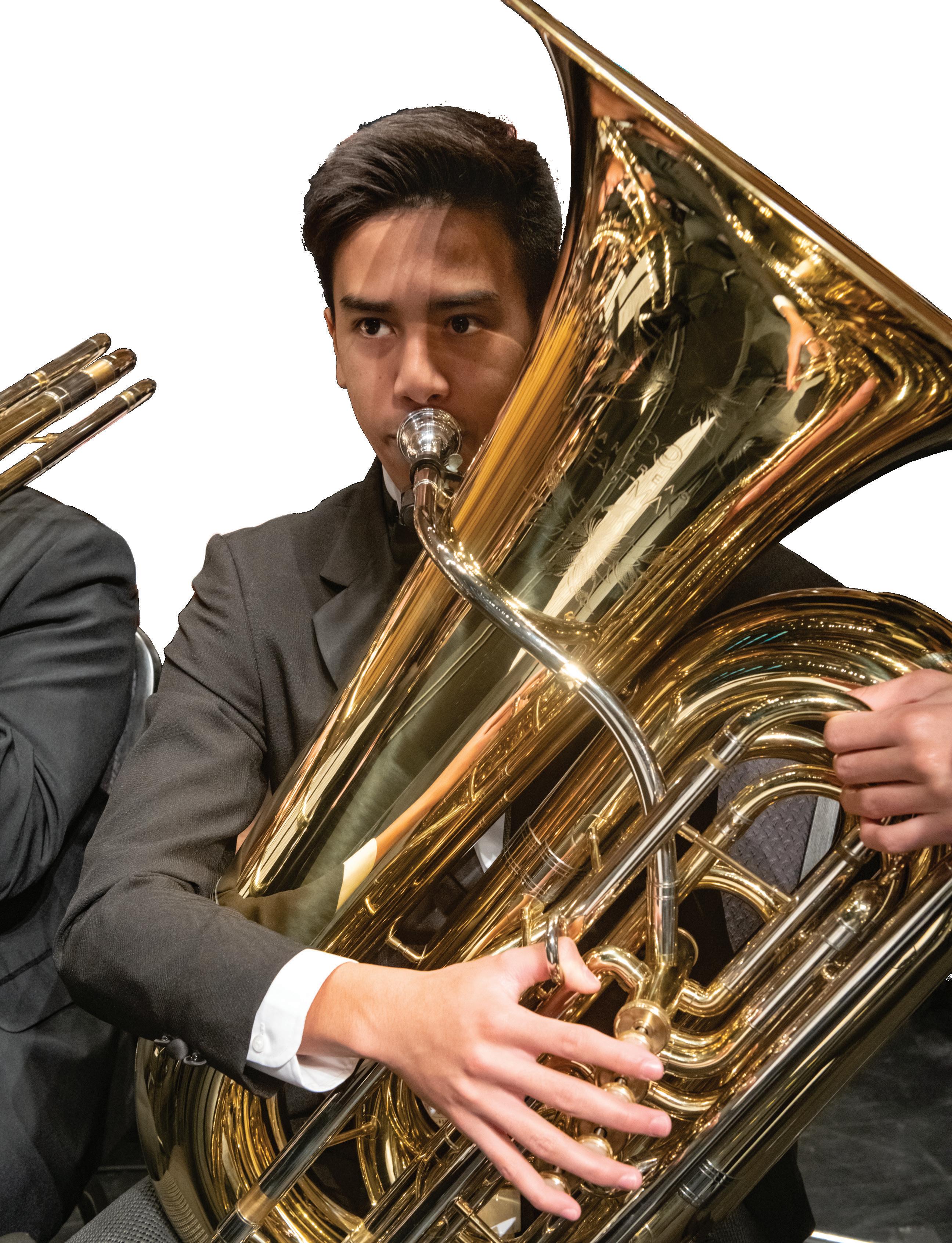
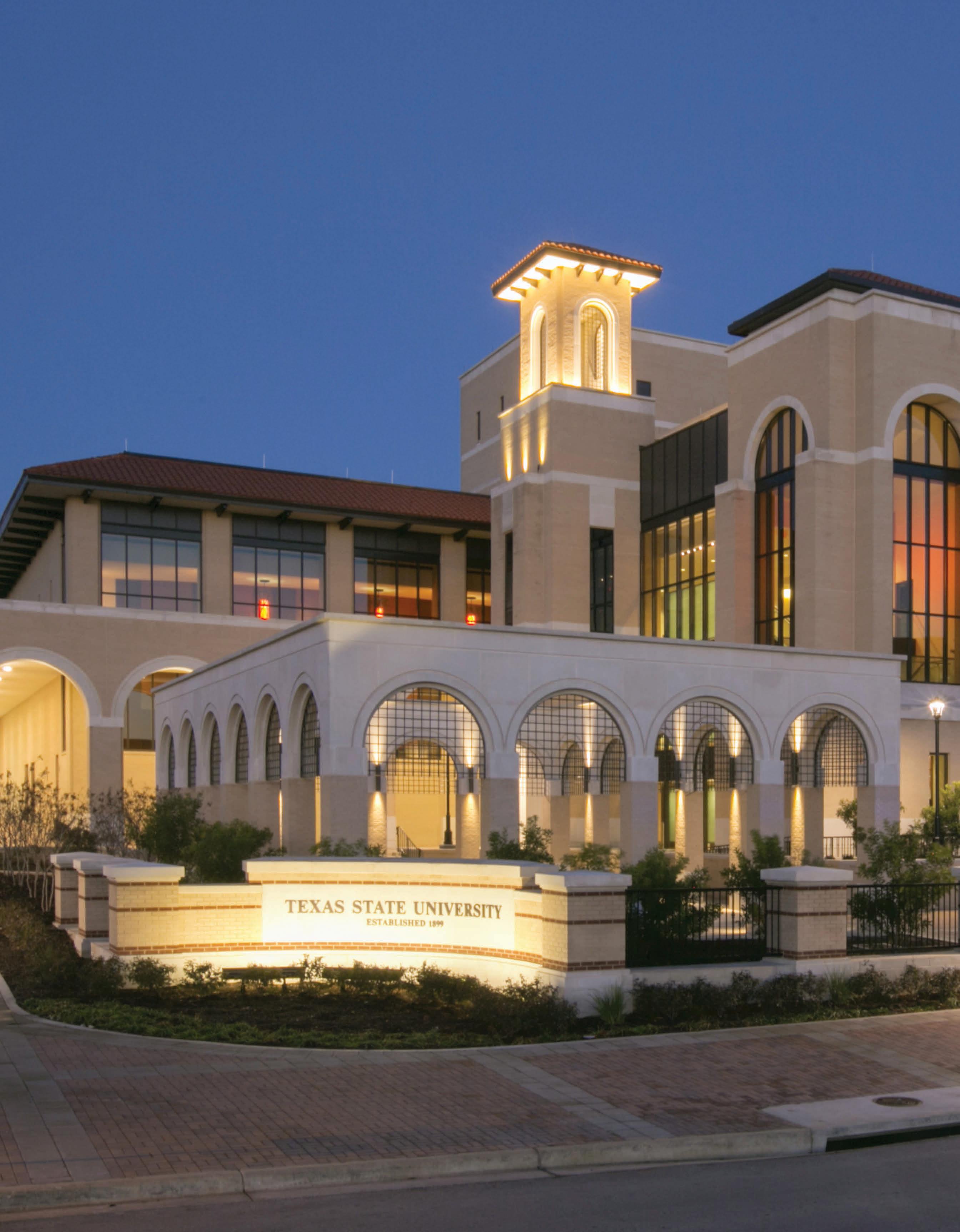
2023 AUDITIONS Texas State University, to the extent not in conflict with federal or state law, prohibits discrimination or harassment on the basis of race, color, national origin, age, sex, religion, disability, veterans’ status, sexual orientation, gender identity or expression. Texas State University is a tobacco-free campus. music.txstate.edu December 3, 2022 January 28, 2023 February 25, 2023 March 25, 2023 Scholarships/assistantships available. music.txstate.edu

1Southwestern Musician | November 2022 CONTENTSVOLUME 91 ■ ISSUE 4 NOVEMBER 2022 ON THE COVER: Zavier Vega-Yu, 2022 All-State Symphonic Band member and now a senior at Hebron HS (Lewisville ISD), performs with the combined All-State ensemble during the 2022 TMEA Second General Session. Photo by Karen Cross. 48 Perform at the Texas State Capitol . . . . . . . . . . . . . 12 by robert floyd Young music students become advocates for music education when they perform at the capitol during a legislative session. It Works for Me: Technology in Rehearsal . . . . . . . 14 by angela ramsey Spending even just 10 minutes of class time with technology, you can realize a more productive and efficient rehearsal. Why Teaching Matters . . . . . . . . . . . . . . . . . . . . . . . 25 by wayne oquin With lessons that run deeper than repertoire or musicality, what music educators do significantly affects every student’s future. Developing Confident Players & Leaders . . . . . . 33 by mirelle acuña Learn some effective strategies for helping all students develop confidence and leadership skills. Prescriptive Feedback: A GPS for the Developing Choir . . . . . . . . . . . . . . . . . . . . . . . . 40 by sandy p . hinkley Music students will experience a more successful journey in their musical development when you offer them prescriptive feedback. Upper Elementary Music: Strategies for Student Engagement . . . . . . . . . . . . . . . . . . . . . 48 by andrea l garcia With effective strategies in place, you can provide upper elementary students a fun, safe, and meaningful learning environment. 2023 TMEA Clinic/Convention Basics ...........................2 Register Your Support with the Texas Arts Education Campaign.... 11 President Michael Stringer . . . . . . . . . . . . . . . . . . . . . . . 4 Executive Director Robert Floyd .................. 8 Band Vice-President Shane Goforth ............. 17 Orchestra Vice-President Ann G. Smith.......... 28 Vocal Vice-President Jesse Cannon II ............ 36 Elementary Vice-President Katherine Johns ..... 44 College Vice-President Matthew McInturf ....... 50 FEATURES UPDATES COLUMNS
Editor-in-Chief: Robert Floyd rfloyd@tmea.org | 512-452-0710, ext. 101
Managing Editor: Karen Cross kcross @tmea.org | 512-452-0710, ext. 107
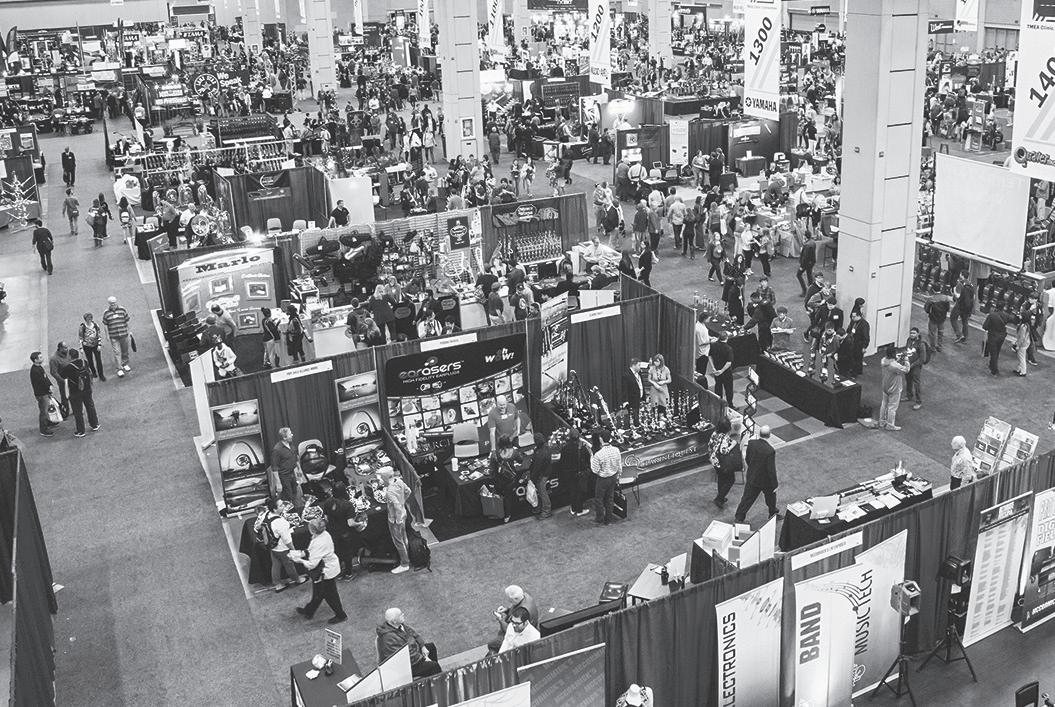
TMEA Executive Board
President: Michael Stringer, Mesquite ISD mstringer@mesquiteisd.org | 972-882-7300
3511 Lake Champlain Drive, Arlington, 76016
President-Elect: Dana Pradervand-Sedatole, University of Houston pradervandd@yahoo.com | 713-743-3627
3606 Glenwood Springs Drive, Kingwood, 77345
Past-President: John Carroll, Monahans HS johnwoodromecarroll@gmail.com | 432-553-2780
809 South Betty Avenue, Monahans, 79756
Band Vice-President: Shane Goforth, North Shore Senior HS sgoforth@galenaparkisd.com | 713-516-7158
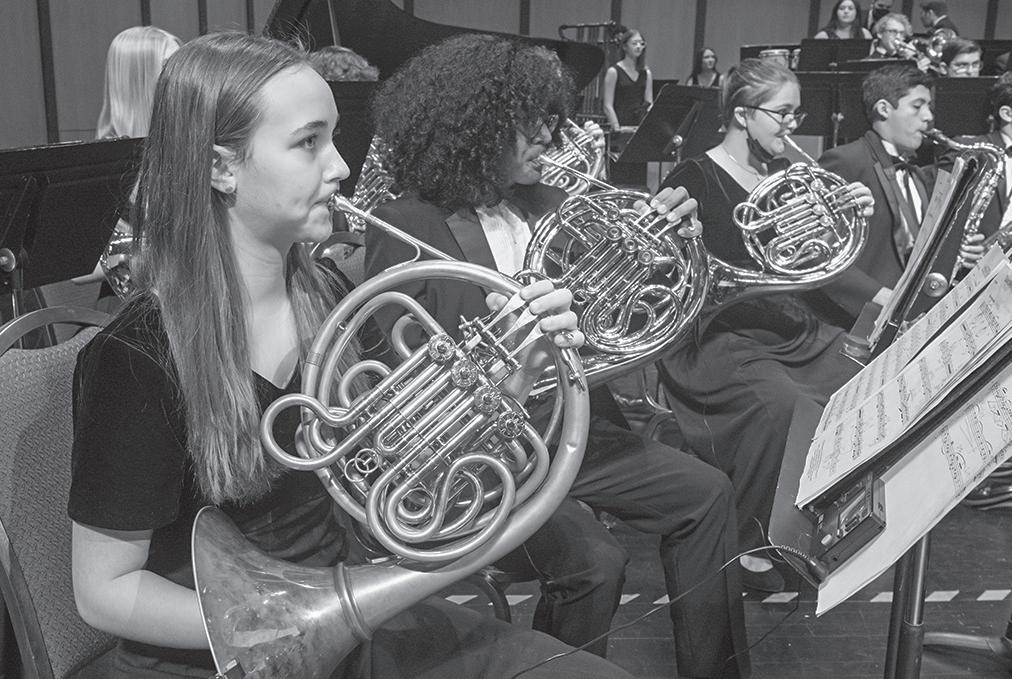
14122 Wadebridge Way, Houston, 77015
Orchestra Vice-President: Ann G. Smith, Plano East Senior HS ann.smith@pisd.edu | 469-752-9237
3000 Los Rios Boulevard, Plano, 75074
Vocal Vice-President: Jesse Cannon II, Fort Worth ISD vocalvp@tmea.org | 817-814-2635
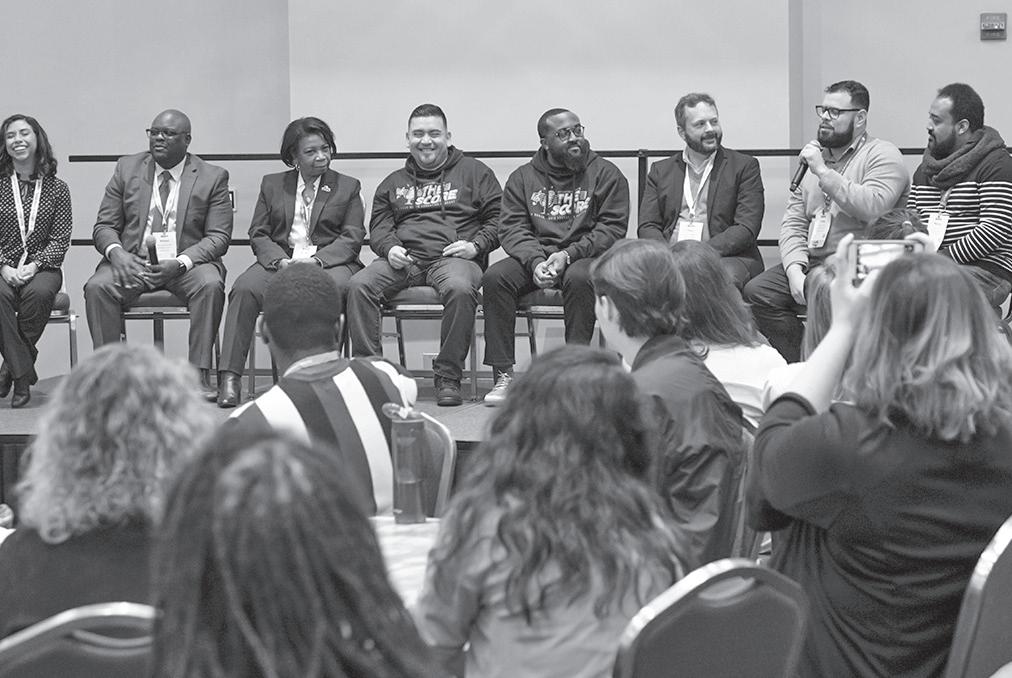
1407 I.M. Terrell Circle South, Suite 2203-Room 02, Fort Worth, 76102
Elementary Vice-President: Katherine Johns, Floresville South Elementary kjohns@fisd.us | 830-393-5325
116 Oaklawn Drive, Floresville, 78114
College Vice-President: Matthew McInturf, Sam Houston State University mcinturf@shsu.edu | 832-515-8724
17 Hornsilver Place, The Woodlands, 77381
TMEA Staff Executive Director: Robert Floyd | rfloyd@tmea.org Deputy Director: Frank Coachman | fcoachman@tmea.org Administrative Director: Kay Vanlandingham | kvanlandingham@tmea.org Advertising/Exhibits Manager: Zachary Gersch | zgersch@tmea.org Membership Manager: Susan Daugherty | susand@tmea.org Communications Manager: Karen Cross | kcross @tmea.org Financial Manager: Cristin Gaffney | cgaffney@tmea.org Information Technologist: Andrew Denman-Tidline | adenman@tmea.org Administrative Assistant: Rita Ellinger | rellinger@tmea.org TMEA Office Mailing Address: P.O. Box 140465, Austin, 78714-0465 Physical Address: 7900 Centre Park Drive, Austin, 78754 Website: www.tmea.org | Phone: 512-452-0710 Office Hours: Monday–Friday, 8:30 a . m . –4:30 p. m . Southwestern Musician (ISSN 0162-380X) (USPS 508-340) is published monthly except March, June, and July by Texas Music
Educators Association, 7900 Centre Park Drive, Austin, TX 78754.
Subscription rates: One Year – $20; Single copies $3.00. Periodical postage paid at Austin, TX, and additional mailing offices. POSTMASTER: Send address changes
to Southwestern Musician, P.O.
Box 140465, Austin, TX 78714-0465. Southwestern Musician was founded in 1915 by A.L. Harper. Renamed in 1934 and published by
Dr. Clyde Jay Garrett. Published 1941–47 by Dr. Stella Owsley.
Incorporated in 1948 as National by Harlan-Bell Publishers, Inc. Published 1947–54 by Dr. H. Grady Harlan. Purchased in 1954 by D.O. Wiley. Texas Music Educator was founded in 1936 by Richard J. Dunn and given to the Texas Music Educators Association, whose official publication it has been since 1938. In 1954, the two magazines were merged using the name Southwestern Musician com bined with the Texas Music Educator under the editorship of D.O. Wiley, who continued to serve as editor until his retirement in 1963. At that time ownership of both magazines was assumed by TMEA. In August 2004 the TMEA Executive Board changed the name of the publication to Southwestern Musician. OFFICIAL PUBLICATION OF TEXAS MUSIC EDUCATORS ASSOCIATION • February 8–11, 2023 • San Antonio, Henry B. González Convention Center • $70 early registration fee for active TMEA members • 290+ clinics, 100+ performances, 1,200+ exhibit booths • Full-day preconference of music technology clinics • Active TMEA members earn CPE credit www.tmea.org/convention 2023 TMEA CLINIC/ CONVENTION BASICS Make hands-on comparisons before you buy. Budget dollars stretch further in our exhibit hall. 480+ EXHIBITORS Get innovative programming ideas, conducting concepts, and inspiration. 100+ PERFORMANCES Learn proven methods and strategies you can use in your very next class. 290+ CLINICS 2 Southwestern Musician November 2022
SCHOLARSHIP AUDITIONS

SCHOOL OF MUSIC DEPARTMENT HEADS
Douglas R. Boyer Director, School of Music and Director of Choral Activities dboyer@tlu.edu 830-372-6869 or 800-771-8521

Eric Daub Director of Piano Studies edaub@tlu.edu
Liliana Guerrero Director of Vocal Studies lguerrero@tlu.edu
Richard Herrera Interim Director of Bands riherrera@tlu.edu
Eliza Jeffords Director of Strings ejeffords@tlu.edu
FACULTY
Adam Bedell Instructor, Percussion Carol Brittin Chambers Composer in Residence & Composition
William Hayter Asst. Professor, Clarinet & Music Education
Sean Holmes Asst. Professor, Horn & Music History
Hilary Janysek Asst. Professor, Flute & Music History
Michael Keplinger Instructor, Guitar
Elizabeth Lee Asst. Professor, Cello Ingram Lee, IV Instructor, Trombone & Euphonium Deborah Mayes Choral Accompanist
Scott McDonald Instructor, Saxophone, Jazz Band & Music Education
Carla McElhaney
Asst. Professor, General Music David Milburn Instructor, Double Bass Angela Moretti Instructor, Bassoon
Nicole Narboni Asst. Professor, Piano Daniel Orban Instructor, Trumpet Sung-Eun Park
Asst. Professor, Collaborative Pianist
Keith Robinson Instructor, Tuba & Music Education
Jill Rodriguez Instructor, General Music Eric Siu Asst. Professor, Violin Yu-Hsin Teng Asst. Professor, Collaborative Pianist
Shareen Vader Instructor, Piano & Music Education
Mika Valenzuela Instructor, Oboe Yvonne Vasquez Instructor, Mariachi
TEXAS LUTHERAN UNIVERSITY SCHOOL OF MUSIC
BACHELOR OF MUSIC IN ALL-LEVEL MUSIC EDUCATION BACHELOR OF MUSIC IN PERFORMANCE BACHELOR OF ARTS IN MUSIC Scholarships are available for both music and non-music majors. These awards are intended to provide recognition for scholarship and talent in the study of music. SCHOLARSHIP AUDITION DATES: Saturday, November 12, 2022 | 1-3 p.m. Saturday, January 21, 2023 | 1-3 p.m. Friday, February 17, 2023 | 1-3 p.m. Saturday, March 25, 2023 | 1-3 p.m. Saturday, April 15, 2023 | 1 - 3 p.m. Individual audition dates may be requested if necessary.
www.tlu.edu/music For specific qualifications for each award, visit www.tlu.edu/music-scholarships.
TMEA President
MICHAEL STRINGER
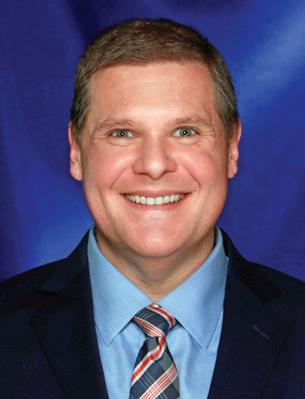
A Season of Thankfulness
As we enter November, the realization that Thanksgiving break is just weeks away is on my mind. Eating all the great fall foods, pumpkin spice everything, foot ball, and some much-needed rest are tops on the list of why I always look forward to this time of year. Another reason I look forward to Thanksgiving is the opportunity to stop and offer gratitude for so many things. In my classes, I took a few moments each November to ask students to express their thankfulness as well. I always enjoyed taking this time out of a meticulous rehearsal on our winter concert music to have a moment where we got to know each other better by learning what each of us is thankful for. These moments were invaluable to my teaching, and through them I learned how to become an even better educator and person for my students.
Thankful for Each Other
Over the years, thankfulness for each other was the most inspiring topic discussed by my students. There is nothing like hearing a student speak about how the ensemble has given them a home or how their peers helped them study or gave them tips for a particularly difficult course. It has always made me realize that it’s impossible to adequately express my thankfulness for my colleagues, co-workers, and friends. Still, I must admit that I don’t convey this gratitude enough. In my rush through daily demands, it’s easy to neglect to pick up the phone or walk over to someone and tell them how thankful I am for them and the specific reasons why I appreciate them so much. Even as adults, it is so impor tant to feel appreciated and know how you have improved someone’s life for the better. We all know how our experiences in the past few years
.org
November—Renew your membership and register for the convention.
November—Make your TMEA convention hotel reservation.
November 1 —TMEA scholarship online application deadline.
January 19 —TMEA convention early registration deadline.
February 8–11 —TMEA Clinic/Convention in San Antonio.
Watching amazing educators instill discipline, teamwork, cooperation, and fun into their classroom inspires me to do a better job every day, and it is definitely something to be thankful for this year.
MARK YOUR CALENDAR check www.tmea
for updates 4 Southwestern Musician November 2022

Scan the code to register for an audition. Scan the code to learn more about the School of Music. Express yourself. Inspire others.
have been well beyond any difficult situ ation we could have previously imagined. With that in mind, make it a priority to pick up the phone, walk over to someone, or even send a simple email just to let them know they have made your life better, and give them a specific example of how they have impacted you. You never know when your simple statement might be the reason another person feels valued and loved. I am taking a pledge during November to show my appreciation to someone differ ent every day, and I hope you will join me. Just think of all the people we could impact in just one month by spreading gratitude every day!
Thankful for Music
A popular second subject of my stu dents’ gratitude was music. It was so moving to hear stories of how a piece we had played made a significant impact on them. They shared how particular selec tions made them feel or how listening to a recording gave them peace, excitement, or joy. Hearing these accounts inspired me to keep finding literature that would speak to each student. While not every piece impacted every student, I always tried to find diverse music that would resonate with each student in different ways.
Lately, I have found myself shuffling an online classical station in my office while I work. When a piece that I taught starts to play, my mind always wanders back to the classroom where each student is still etched in my memory; I remember fondly the rewarding times we had learning great
literature. This has given me a newfound thankfulness for what we teach every day. Music is such a gift to society, and we are so fortunate to get to pass it on to the next generation. Take some time during this month to find those pieces that speak to you and just listen and be thankful for the gift of music. I also encourage you to spend this month finding new literature that speaks to another group of students you may not have reached yet. Music truly is a gift to the world and is something we must never take for granted. Remember to always be thankful for this wonderful art that we have been entrusted with, and be thankful that our efforts will ensure that the next generation will be able to spread it to future generations.
Be Thankful for Education
Our profession has taken many hits lately. Teaching through a pandemic has proven to be one of the most difficult tasks in our world. That said, I have been so inspired this year in watching so many students excel. While at a football game earlier this year, I overheard a band direc tor exclaim to his students, “I am proud of you!” While the words were simple, it was the look of pride on the students’ faces that made me smile from ear to ear. The students knew they weren’t just words because they were delivered with care and compassion; each felt special and accom plished in that moment.
Education is something truly special. In music education, we spend a tremen dous amount of time teaching many dif
ferent values. In the role we play shaping the next generation, we help them learn how to function as compassionate human beings. Lately, I have found myself being even more thankful that we chose this wonderful profession. Through the tough times, we continue to find ways to inspire and teach our students how to learn and discern. Watching amazing educators instill discipline, teamwork, cooperation, and fun into their classroom inspires me to do a better job every day, and it is definitely something to be thankful for this year. I encourage you to take a few moments and inventory your educational wins, remem bering to be thankful for this amazing profession we have chosen.
I hope you all can enjoy a few days off this month and can find something to be thankful for this year. I challenge you to take a few minutes away from rehearsal to share that thankfulness with your students and ask them to share with you. You never know the impact that a student’s words may have on your life, or that your words may have on them. Happy Thanksgiving!
2023 Convention Update
We are always thankful when we arrive in San Antonio for the annual TMEA Clinic/Convention. In this issue, you can read about some of the wonderful ensem bles that will be presenting concerts at our convention. These students and teachers are already working hard to present the most wonderful and inspiring perfor mances possible. I hope you will find some time to hear these amazing young musi cians and show them your gratitude.
If you haven’t registered for the convention, there is still time. Go to www.tmea.org/register to register for the convention (if you haven’t renewed your membership yet, you will do that in the same online session). You can also read more about the wonderful clinics that will be presented at www.tmea.org/2023clinics. I can’t wait to see you in San Antonio in just a few months!
Finally, if you haven’t yet, be sure to secure a housing reservation for the event. Like in previous years, TMEA’s dis counted hotel rooms sold out very quickly. Understand that if a member cancels their hotel reservation in our block, that room will become available, so you can keep checking back regularly.
0 Thank you for all you do to help your students develop a lifelong love of music. 6 Southwestern Musician November 2022
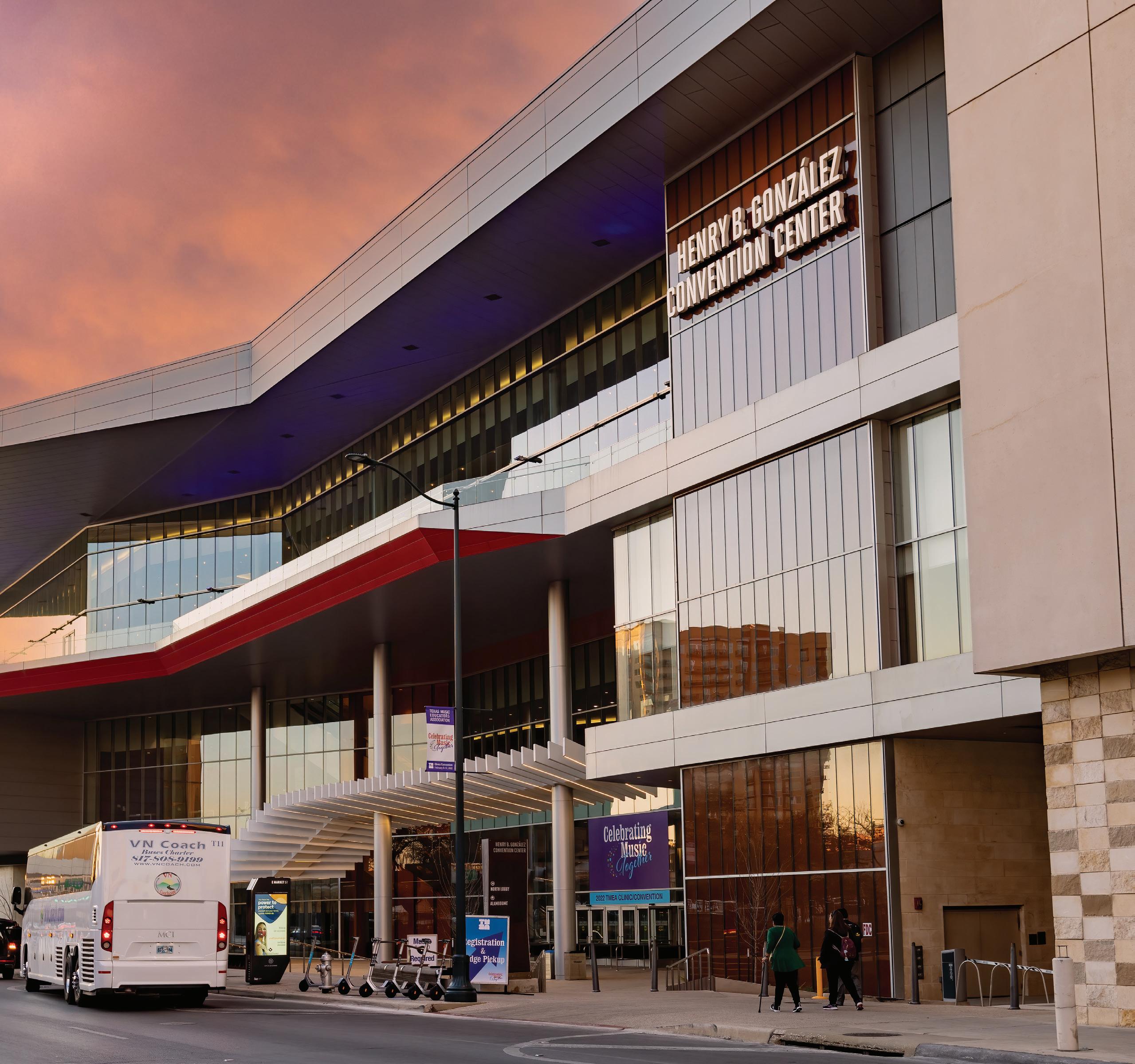
TMEA 2023 You won’t find this at any other convention: 290 Clinics 100 Performances 1,200 Exhibit Booths 10,000+ Music Educators Clinic/Convention February 8–11 • San Antonio Register Today! www.tmea.org/register 7Southwestern Musician | November 2022
TMEA Executive Director
ROBERT FLOYD

The Journey Back
Telling our story and singing our song must continue to be a priority as we traverse the “we’re back” journey.
A s an avid college football fan, I will always remember after the University of Texas upset Georgia in the 2019 Sugar Bowl, the exuberant Longhorn quarterback in a postgame interview exclaiming on national televi sion, “We’re Back!” The UT football program has gone downhill by Texas standards in the years since their 2005 national championship—going through three coaching changes, less than stellar win–loss records, and not win ning a Big 12 Championship since 2009. After that 2019 proclamation, the next year Texas went 5–4 in Big 12 Conference play and ended last season with a 5–7 losing record and no bowl game invitation.
So, while the Longhorns still may not be back, there are numerous indicators that they are on their way. And while I am not willing to say music education in Texas is 100% back, there are many signs that we, too, are moving significantly in the right direction.
Membership and Program Growth
One of the most positive indicators of this trend is our growth in active membership. Compared with the same dates in the 2021–2022 school year, TMEA Active memberships have increased by over 500. All other membership categories have grown as well.
Last year, the number of Texas Future Music Educators (TFME) chap ters increased to 40, up from 17 the year before, and there were 953 student members in 2021–2022, with 637 students attending this past February’s convention. Early indications are those numbers will grow significantly this school year. In these times when the teacher shortage is so severe, starting chapters should be a priority for all members. At its June meeting, the Executive Board approved a pilot middle school TFME chapter. We will keep you posted on the outcome of that project.
More importantly, while based on anecdotal information, enrollment in secondary music classes statewide for 2022–2023 is up as well. The
November—Renew your membership and register for the convention.
November—Make your TMEA convention hotel reservation.
November 1 —TMEA scholarship online application deadline.
January 19 —TMEA convention early registration deadline.
February 8–11 —TMEA Clinic/Convention in San Antonio.
MARK YOUR CALENDAR check www.tmea .org for updates 8 Southwestern Musician November 2022
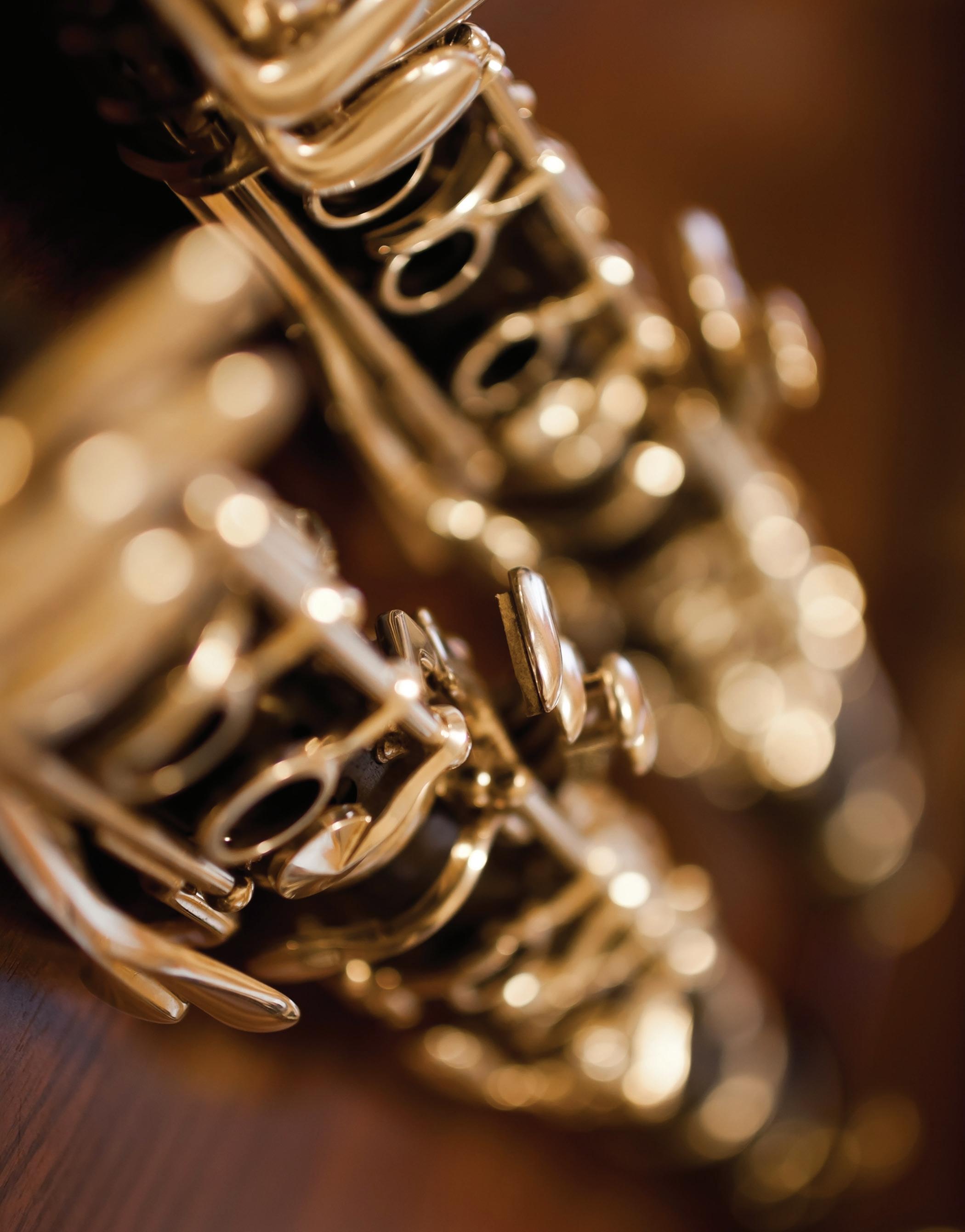
BAYLOR UNIVERSITY SCHOOL OF MUSIC AUDITION DATES FRIDAY December 2, 2022 (VOICE, LOW BRASS) FRIDAY January 13, 2023 (VOICE, EUPHONIUM/TUBA, PERCUSSION) SATURDAY January 14, 2023 (VOICE, HIGH BRASS) FRIDAY & SATURDAY January 27 & 28, 2023 (WOODWINDS, ALL BRASS, STRINGS, VOICE, PERCUSSION, KEYBOARD) FRIDAY February 3, 2023 (WOODWINDS, STRINGS, VOICE, PERCUSSION) SATURDAY February 18, 2023 (LIVE AND VIRTUAL, STRINGS) SATURDAY February 18, 2023 (KEYBOARD) For more information, visit baylor.edu/music or email Callan Monroe at Callan_Monroe@baylor.edu FACEBOOK baylormusic twitter @baylor_music INSTAGRAM @baylormusic APPLY 1. Complete the Baylor University application at baylor.edu/gobaylor 2. Complete the School of Music application at app.getacceptd.com/baylormusic 3. Audition Please scan for more information about our audition process. Subscribe to our newsletter at baylor.edu/music/subscribe Where heart, mind and soul coalesce. Auditions are required of all entering and transferring music majors. Please scan to access video archives of our performances.
exact statistics for the 2021–2022 year will be released by the Texas Education Agency in late October, but again, all indications are that numbers have increased, espe cially at middle school levels.
The fine arts director of a large school district recently told me they were expe riencing the impact the pandemic had on the 2020–2021 recruiting years, with high school enrollments being down in some programs, as expected. However, their middle school recruiting numbers were at record-high levels.
Convention Participation
Convention registration is ahead of last year, currently by 548 Active members and 201 in other membership categories. Most encouraging, the number of compa nies that have already joined as sustain ing members and reserved exhibit space is 294, compared with the 212 that had booth space reserved as of the same week last year. In addition, we passed the 1,000booth mark in sales after being open only three weeks, up 267 booths from that point in 2021.
Our sustaining members continue to believe in us and recognize that to be successful in all things business related to music education, one must be success ful in Texas. In addition, 295 clinics have been scheduled, and there will be over 36 invited and honor student performing ensembles, 18 All-State ensembles, and 50 music showcases.
Marketing to Your Administrators
We are aware that some districts are not as supportive as others regarding your convention attendance. To help with this, the TMEA Executive Board approved our placement of advertising in superinten dent, secondary and elementary principal, and school board publications speaking to the value of sending their music teach ers to our February convention. We hope these full-page full-color ads in their November–December publications will help when you request support for your attendance.
We Have Support
Several months ago, the Charles Butt Foundation released their Texas Education Poll providing insight into the perceptions and trends in Texans’ attitudes toward public education. Released annually, the poll asks 1,000 Texans, including public
school parents, to share what matters most to them in our state’s schools.
In questions about what Texans value beyond the basics, 92% valued criticalthinking and problem-solving skills, 91% valued preparation to succeed in the workforce, 91% valued interpersonal and decision-making skills, 85% valued prepa ration to succeed in college, and 75% val ued opportunities for their children to participate in extracurriculars, including music and the arts. Do those priorities sound familiar? A music classroom meets all those needs, and we must continually remind administrators and parents of that message.
In the recent Raise Your Hand Texas Voices study, 16,000 respondents stated that their top three priorities for public schools on which they should be evaluated beyond STAAR are school safety, teacher quality, and availability of fine arts and other enrichment subjects. The support from the public is there, but we must con tinue to nurture and educate them as to the value of the music experience.
Extracurricular and Co-curricular Update
In 2017, during the 86th legislative ses sion, we were so close to having a coherent study of fine arts becoming a part of the accountability system with the passage of HB 22. Unfortunately, at the eleventh hour in conference committee, that language was pulled from the bill due to concern that by reporting only enrollment or credit earned data, a significant impact on posi tive student outcomes could not be docu mented. The bill then called for a four-year study to evaluate the impact of participa tion in extracurricular and co-curricular activity on student learning, elementary through high school.
The bill also called for a report to be delivered to the legislature December 1, 2022. Despite the disruption caused by the pandemic, the ECC project was able to col lect a notable sample of usable data, provid ing strong evidence that ECC participation is associated with some positive student out comes and is a feasible addition to the state performance system. Based on the infor mation available, recommendations for the next step of the project will be included in the December legislative report. The hope ful outcome, minimally, would be a bill filed and voted into law to create a pilot program for continued study of ECC participation
becoming a part of the accountability sys tem. Such participation would include music and other arts subjects, since many fine arts courses contain both extracurricular and co-curricular components.
In Closing
So, to what can we attribute this suc cessful journey to a time when we can confidently proclaim we are back—from increased secondary enrollment to a surge in membership and convention registration expected to surpass even 2020’s amazing centennial celebration? Without question, the answer is you staying the course with your passion and commitment to our mis sion, your program, and most importantly, to your students. Faith is confidence in what we hope for and assurance about what we do not see. You have demonstrated such faith, and many of you are reaping the rewards, persevering through the last 31 months as your programs have sustained and are now starting to flourish. Telling our story and singing our song must continue to be a priority as we traverse the “we’re back” journey. I encourage you to read President Stringer’s column speaking to all things for which we must be grateful during this Thanksgiving season. You are at the top of my list, and I personally thank you! 0
Support Fine Arts Education!
Texas Arts Education Campaign (TAEC) was created by TMEA, in collaboration with Texas Music Administrators Conference, to encour age public and state policymakers to protect and elevate the role of all fine arts programs in Texas schools.
Your role is critical in this advocacy. Please sign on as a supporter and fol low TAEC on social media, respond ing to calls for action as shown on the adjacent page. Encourage all booster club members to register as well.
As the legislative session begins January 10 and our legislative agenda takes shape, TAEC supporters will be called on to contact their House or Senate member regarding specific issues and bills. There is no more effective lobby than for a legislator to hear from a constituent, sharing their opinion on pending legislation.
Make your voice heard as we all strive to protect music and arts educa tion opportunities for Texas students!
10 Southwestern Musician November 2022
www.txartsed.org/join-us facebook.com/txartsed twitter.com/txartsed instagram.com/txartsed r egister Your support t odaY1 s tay Connected, share Content!2 TEXAS ARTS EDUCATION CAMPAIGN call to action! PRESERVING FINE ARTS IN TEXAS SCHOOLS TEXAS ARTS EDUCATION CAMPAIGN register Your support Connect with taec share our Content 11Southwestern Musician | November 2022
Perform at the Texas State Capitol During the 88th Legislative Session
 by Robert Floyd
by Robert Floyd
During each legislative session, when I walk through the capitol, the best part of my day is hearing beautiful music echoing from the rotunda—it’s simply impos sible to walk past without stopping to listen. Some performers are community or professional musicians, yet very frequently it’s one of our wonderful Texas school music ensembles. While it makes my day, more importantly, I leave encouraged knowing that our state’s legislators, staff members, lobbyists, jour nalists, and everyday citizens are also reminded about the value of music education for these and all schoolchildren.
Advocate Through Performance at the Capitol
Please consider scheduling your music group—whether you teach elementary, middle, or high school—to perform at our state’s capitol during our state’s 88th legislative session (January 10–May 29). Take this most effective advocacy straight to those who have been elected to represent you!
While performing at the capitol might sound like an involved effort, I believe you would be likely to showcase your students there if you knew how to apply. This is an amazing opportunity for your students to visit their state capitol and to play a crucial role in music education advocacy—help them understand that even as young students, they can be influential (see the quick guide on this page for some suggestions and the process).
Performances in the capitol are managed by and under the jurisdiction of the Texas Preservation Board. While their policies are quite structured, they are realistic and manageable. One criti cal component of the application is that you must have one of the following individuals sponsor your appearance: the governor, the lieutenant governor, the speaker, a state senator, or a state repre sentative. Your local representative or senator would be the logical and most realistic choice. Most will be more than willing to spon sor your ensemble.
Performing and visiting the capitol, one of our state’s treasures, can be a most memorable experience. A performance can be inte grated into a meaningful civics lesson as well. Most performing groups also take a guided tour, have lunch on the beautiful capitol lawn, visit with their legislators (who usually want to take advan tage of a photo op), and in most cases get introduced from the gallery of the Senate or House chambers.
Texas music programs are successful because we believe stu dents experience music through quality performance, so it goes
without saying that any presentation at the capitol should reflect the result of rigorous teaching and learning in the classroom. The beauty of this venue is that such a performance could come from any type of ensemble at any grade level. There are no prerequisites for applying other than quality. I hope you will give every consid eration to exploring this wonderful performance and advocacy option.
The 88th legislative session begins January 10 and concludes May 29. Understand though that during the first couple of months of the session, legislators are often at their home districts on Fridays and Mondays, so the most effective time to schedule a visit to perform would be midweek during January and February or any weekday in March, April, or May.
Performance Quick Guide
Review the following suggestions and information about performing at the capitol:
• Noon–1 p m is the only time allowed in the first floor Capitol Rotunda (reserving early is important). Chamber groups may also perform in the capitol extension outdoor rotunda, which is reserved separately.
• The 88th legislative session is January 10–May 29.
• Best days to request are midweek during January and February or any weekday in March through May.
• Go to www.tspb.texas.gov to review the events calendar for available rotunda performance dates and contact information.
• Review the online calendar to find available dates.
• Contact your state senator or representative to request they complete the state sponsor form. To find out who represents you, go to fyi.capitol.texas.gov.
• To request a performance, call the State Preservation Board directly at 512-463-5495.
0
12 Southwestern Musician November 2022
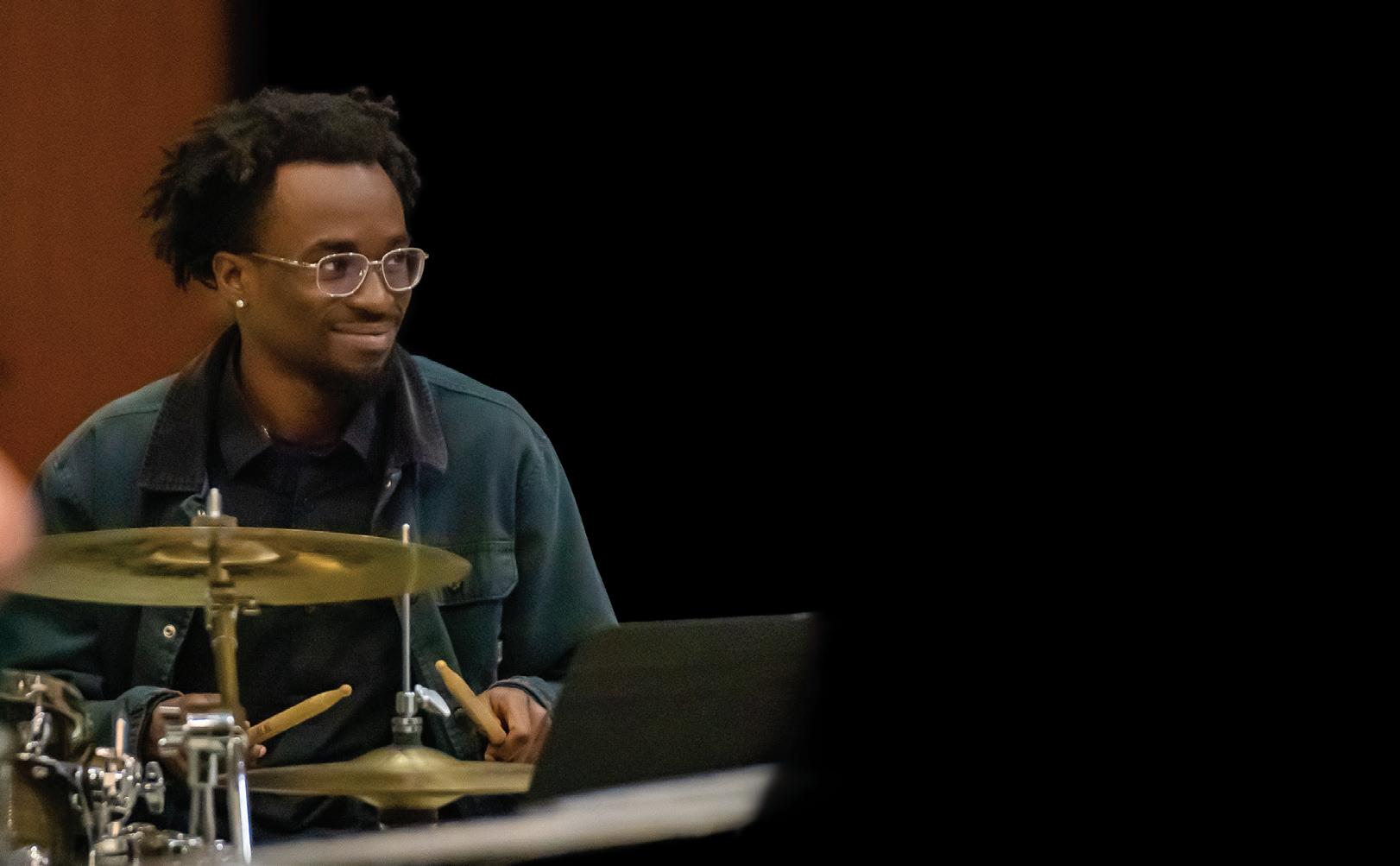
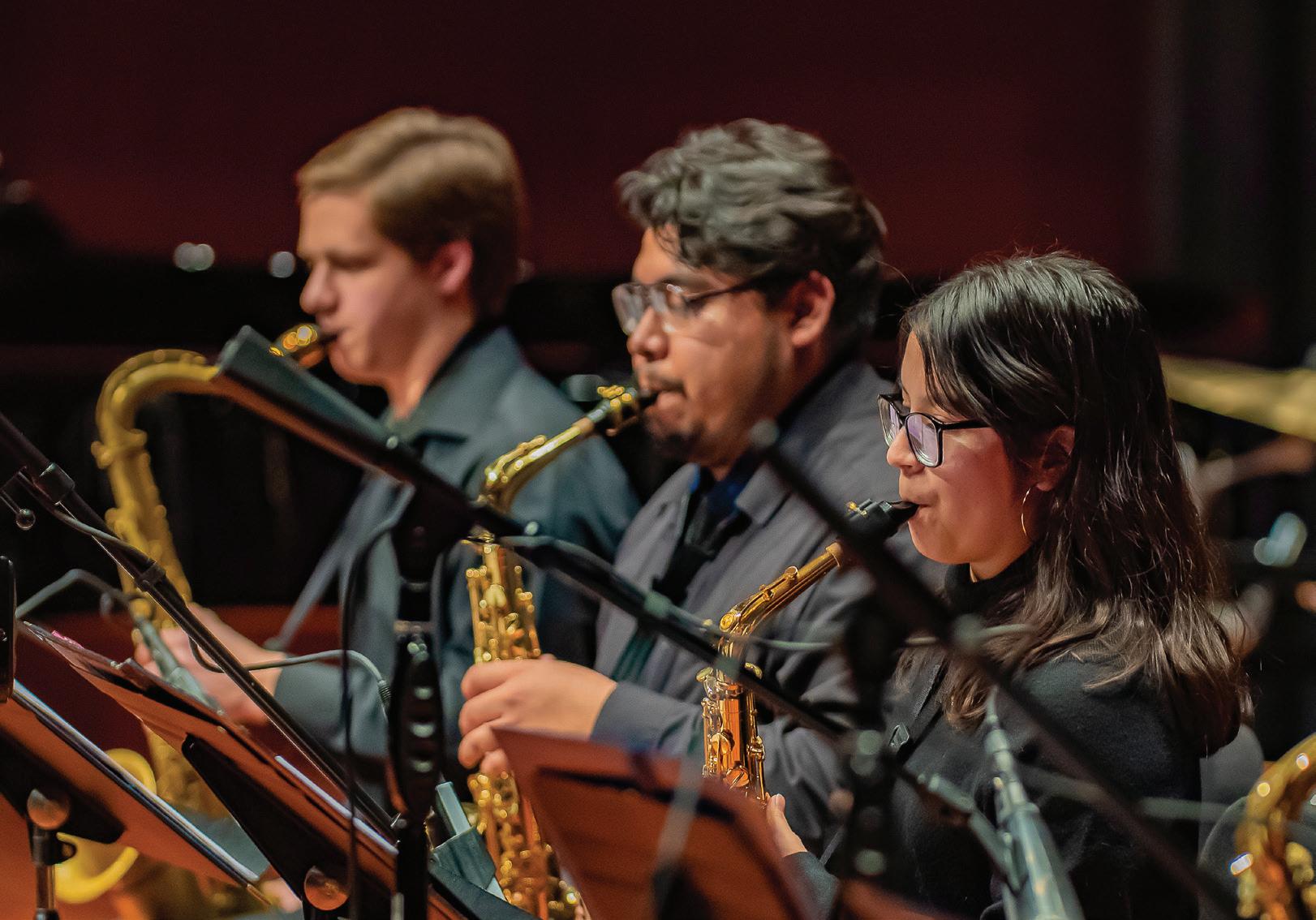

2023 Admission & Scholarship Audition Dates: November and January audition dates are available upon request. Auditions are required of all entering and transferring music majors and minors. February 18 February 25 (Instrumental Majors only) March 4 (Vocal Majors only) March 11 April 1 (Instrumental Non-music Majors only) A Member of the Texas A&M University System DEPARTMENT OF MUSIC An All-Steinway School with Spirio Designation OFFERING BACHELOR’S AND MASTER’S DEGREES IN MUSIC EMPHASIZING MUSIC EDUCATION OR PERFORMANCE PERFORMANCE PASSION PRIDE @TAMUCMusic • @TAMUCBands • @TAMUCChoirs tamuc.edu/music • 903-886-5303
It Works for Me
We’re all pressed for time to teach repertoire, build music literacy skills, and prepare students for a successful concert. Adding a focus on technology to the mix can seem like just one more thing to accomplish in an already packed schedule. Still, I have found it’s doable and effective, even with a short time investment.
Our middle school rehearsals are more productive and effec tive when I use technology, even for 10 minutes or less, to engage students and collect data. I have found that using technology with my students for this short amount of time has helped me work more efficiently.
Why Technology? Our students are digital natives and comfortable with technology. At our school, students are trained to open their Chromebooks and begin a digital activity before the bell rings in all their classes. In 2020, my school district imple mented a learning management system (LMS) that allows teachers to quickly create assignments, post announcements, communicate with students, take grades, and push out digital resources to stu dents at the click of a button. Combining the use of teacher created content for assessment and web-accessible games for practice, I can easily gather useful data to help guide my lessons and differ entiate instruction based on the needs of each student.
Just Ten Minutes? I typically schedule technology assign ments in the first 10 minutes of class. This allows students to begin engaging with the day’s musical content immediately (even before the bell rings) and it gives them a focused activity to complete while I take care of attendance, speak with specific students, etc. Other times, I give these assignments during the middle of class, allow ing students to offer active feedback during a lesson, or at the end to assess their understanding following whole group instruction. With intentional lesson planning and strong classroom expecta tions and routines, you can use a tech tool to break up sustained focus while remaining on topic.
Teambuilding: Technology is great for teambuilding, espe cially in large classes where some students may feel like they don’t have a voice or are nervous to speak up. I utilize the discussion feature in Schoology quite often to respond to random icebreaker questions such as “What is your favorite holiday tradition?” or “Which fast food chain has the best fries?” Students love hitting the Like button on their classmates’ comments and occasionally get very enthusiastic about silly subjects.
by angela ramsey
Listening Reflection: Using technology to reflect on vari ous aspects of a performance (whether your own or of another group) influences students to listen more critically. Sometimes I give students a few sentence stems to guide their ears (or eyes) to reflect on a particular objective, and then I have them com plete a short essay question. I also like to use common rubrics in a Nearpod Draw It activity. This allows students to circle or highlight specific words in the rubric that they hear in the perfor mance. Preparing students for the subtle nuances of adjudication allows them to step into the role of judge. This is an excellent way for ensembles to reflect on their progress working up to competi tion or following a performance.
Practice Theory Skills: As a middle school choir director, I teach quite a bit of music theory. Given their varied skill levels, I provide students several levels of activities to meet their academic needs. Thankfully, I rarely need to create these practice/extension games from scratch. Sites like Blooket, Quizizz, Gimkit, and Boom Learning have many wonderful teacher-made resources available. My students especially love Blooket and Gimkit because we can cover the same objectives through an extensive range of fun and exciting games. These activities fit well into the first five minutes of class, following my introduction of the theory skill. To allow students to continue the practice beyond the bell, I create a folder in my LMS with solo versions of these games.
Grading: Gone are the days of taking home worksheets and tests to grade. I have digitized most of my paper resources and turned them into self-graded digital assessments in my LMS. Students love the instant feedback, and I love how the grades transfer to my gradebook with the click of a button. Creating highquality digital assessments takes time on the front end. However, once you have them in your LMS, they are yours to use every year.
From student recordings and music folder uploads to digital music symbols bingo and Jeopardy games, I have found that tech nology is a valuable tool in my teaching toolbox. I hope these ideas will help inspire you to find ways to incorporate technology, even for just a few minutes for your students’ benefit and your own. 0
Angela Ramsey is the Assistant Choir Director at Smith Middle School (Cy-Fair ISD).
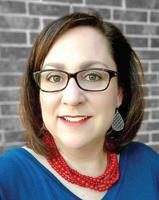
14 Southwestern Musician November 2022
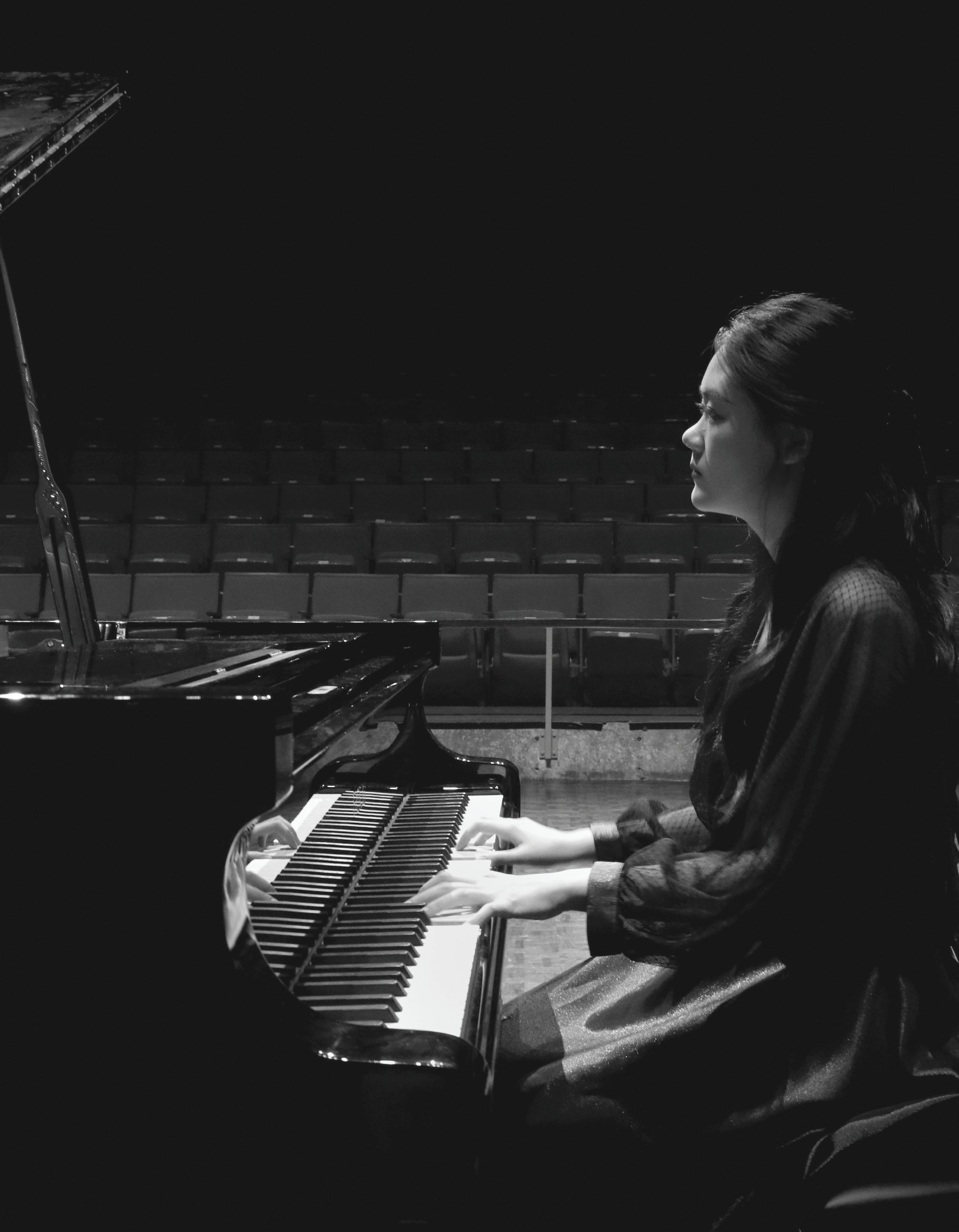
J.T. & Margaret Talkington College of Visual & Performing Arts | School of Music ttu.edu/Music | @ttuschoolofmusic | schoolofmusic@ttu.edu | 806.742.2270 FROM TO
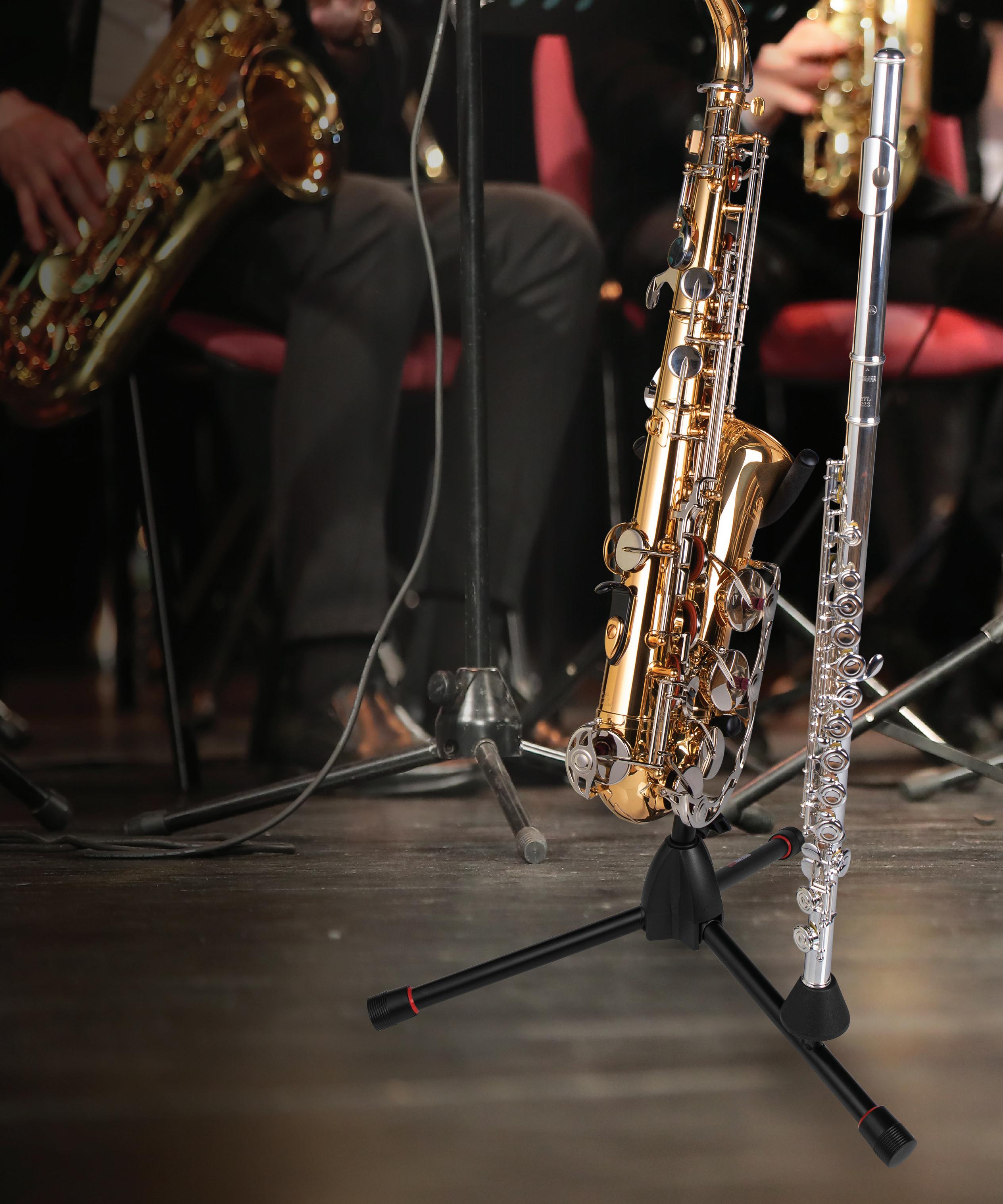
February 8-11, 2023 San Antonio, Texas 2023 TMEA Clinic/Convention VISIT US AT INSTRUMENT STAND SERIES GFW-BNO-SAXFLU GATORCO.COM FOR BULK ORDERS AND INQUIRIES 813.221.4191 OR INFO@GATORCASES.COM
Focus
Ihave often written in this column about the why and the what of the work we do. The why being the motivation to persevere and thrive in this profession and the what being the processes and procedures we use to teach and train our students to become successful performers, team members, and, hopefully, awesome human beings. This month I would like to start covering the how
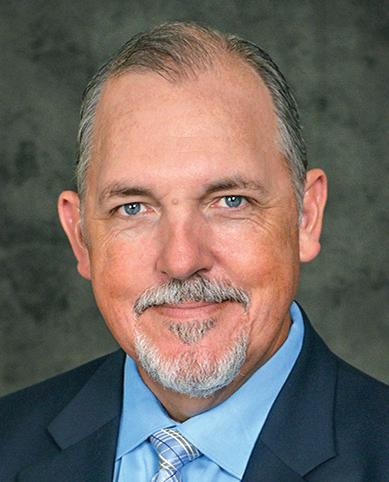
I have been blessed to be in many band halls across our state, and in my visits to highly successful programs as well as less successful ones, I have found an overwhelming similarity in what they do. Fundamentals/ daily drill, rehearsal schedule, music learning process, sectionals, and more are part of each type of program. The glaring difference I observe in programs that have found varied levels of success is in how they do what they do. That essential, difference-making step in their how is best described by the word focus.
There is a mountain of educational, business, and psychological
there is no more impactful variable than focus on the outcome of any endeavor you undertake. So, if our desire
have highly successful programs, the question becomes how we get
students
give their full attention/concentration to what
The first thing we need to realize about being focused is that it is
skill, and like
other skill it must be practiced and developed.
research that clearly indicates
is to
our teenage
to
we are doing.
a
any
Once you have decided what it is that you want to do and why you want to do it, there will be no greater indicator of success than the level of focus with
which
you do it. Improving Our Ensemble’s
TMEA Band Vice-President SHANE GOFORTH November—Renew your membership and register for the convention. November—Make your TMEA convention hotel reservation. November 1 —TMEA scholarship online application deadline. January 7—Area Band and Vocal auditions. January 19 —TMEA convention early registration deadline. February 8–11 —TMEA Clinic/Convention in San Antonio. MARK YOUR CALENDAR check www.tmea .org for updates 17Southwestern Musician | November 2022
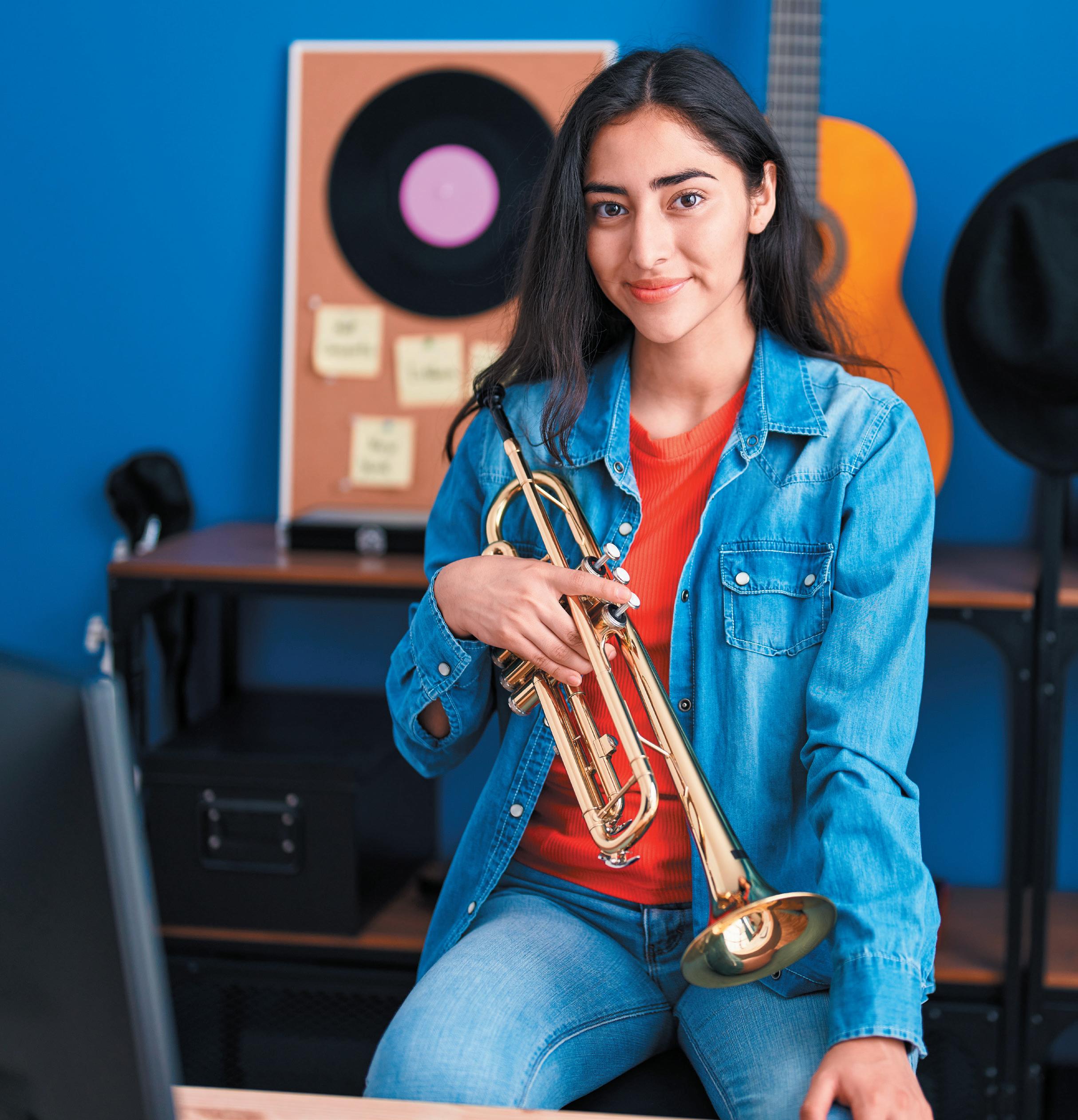


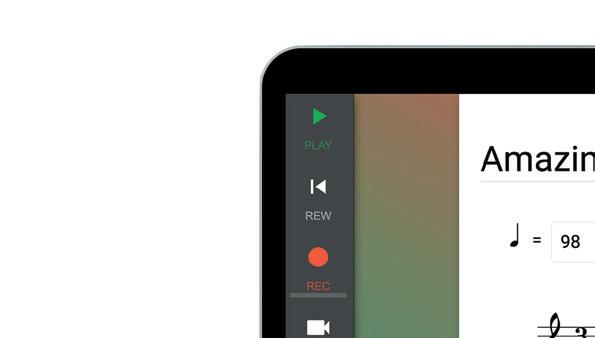
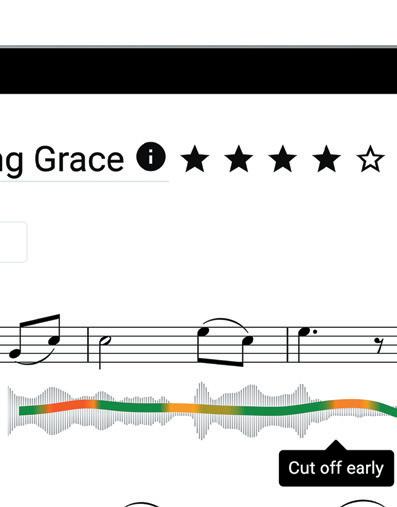
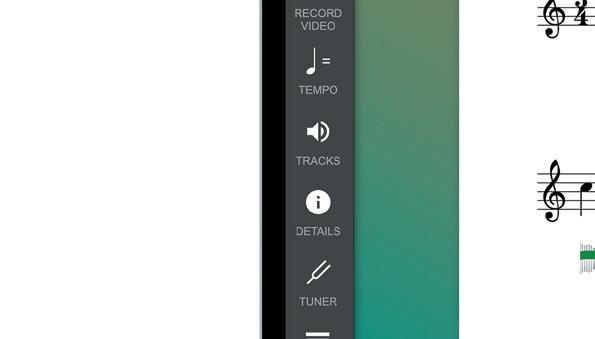
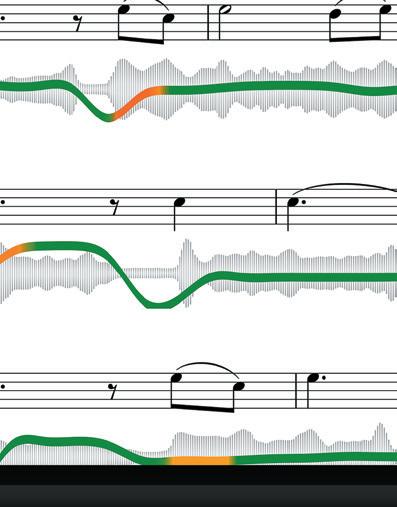

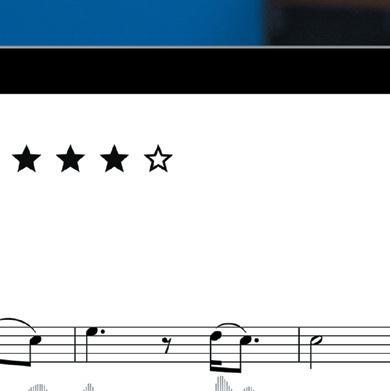
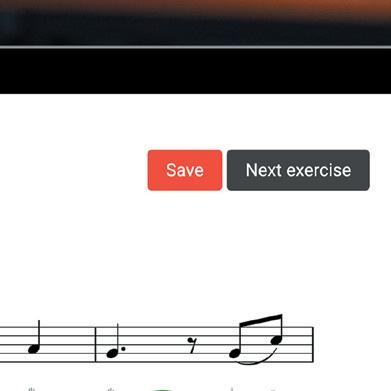



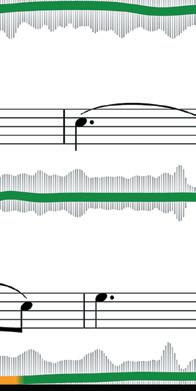





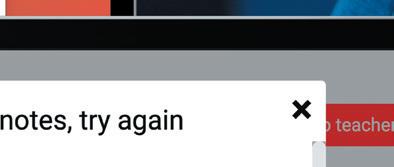





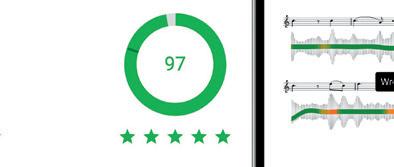

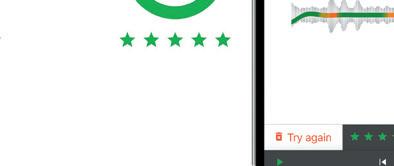
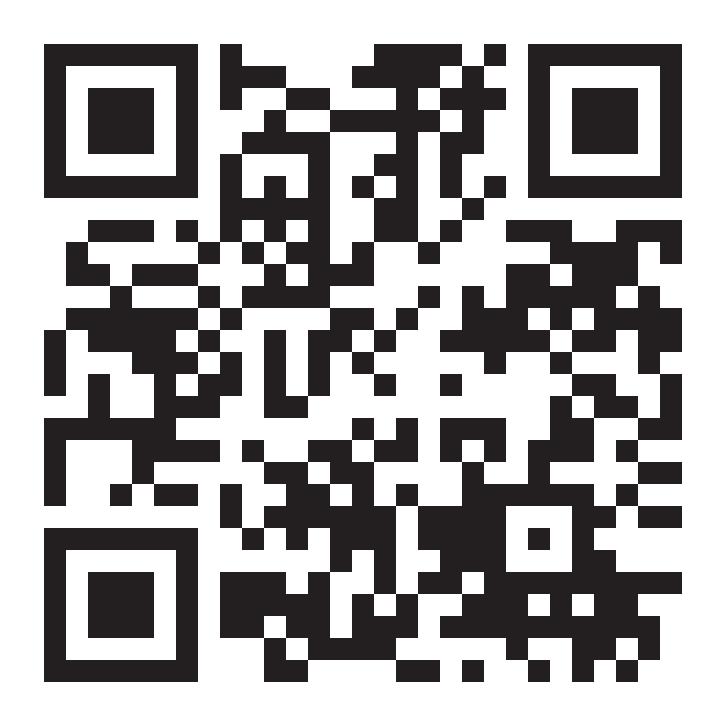
Bandworks Publications • Boosey & Hawkes • C.L. Barnhouse Company • Excelcia Music Publishing G. Schirmer, Inc. • GIA Publications, Inc. • Grand Mesa Music Publishers • Grand Mesa Strings • John McAllister Music • Kendor Music Publishing • Neil A Kjos Music Company • PDF Band Music • Piquant Press • Queenwood Publications • RBC Publications • Randall • Standridge Music Publications • Ed Music Publications • Tempo Press • Wingert-Jones Publications • YourScore • Bandworks Publications •Boosey & Hawkes • C.L. Barnhouse Company • Excelcia Music Publishing • G. Schirmer, Inc. • GIA Publications, Inc. • Grand Mesa Music Publishers • Grand Mesa Strings • John McAllister Music Kendor Music Publishing • Neil A Kjos Music Company • PDF Band Music • Piquant Press • Queenwood Publications • RBC Publications • Randall • Standridge Music Publications • Ed Sueta Music Publications Tempo Press • Wingert-Jones Publications • YourScore• Bandworks Publications • Boosey & Hawkes Barnhouse Company • Excelcia Music Publishing • G. Schirmer, Inc. • GIA Publications, Inc. • Grand Mesa Music Publishers • Grand Mesa Strings • John McAllister Music • Kendor Music Publishing • Neil Kjos Music Company • PDF Band Music • Piquant Press • Queenwood Publications • RBC Publications Randall • Standridge Music Publications • Ed Sueta Music Publications • Tempo Press • Wingert-Jones Publications • YourScore • Bandworks Publications • Boosey & Hawkes • C.L. Barnhouse Company Excelcia Music Publishing • G. Schirmer, Inc. • GIA Publications, Inc. • Grand Mesa Music Publishers Grand Mesa Strings • Kendor Music Publishing • Neil A Kjos Music Company • PDF Band Music • Piquant Press • Queenwood Publications • RBC Publications • Randall • Standridge Music Publications • Ed usic Publications • Tempo Press • Wingert-Jones Publications • YourScore • Bandworks Publications tions • Boosey & Hawkes • C.L. Barnhouse Company • Excelcia Music Publishing • G. Schirmer, Inc •Grand Mesa Music Publishers • GIA Publications, Inc. • Grand Mesa Music Publishers • Grand Strings • GIA Publications, Inc. • Kendor Music Publishing • Neil A Kjos Music Company • PDF Band Music • Piquant Press • Queenwood Publications • RBC Publications • Randall • Standridge Music Publications • Ed Sueta Music Publications • Tempo Press • Wingert-Jones Publications • YourScore• Bandworks Publications • Boosey & Hawkes • C.L. Barnhouse Company • Excelcia Music Publishing G. Schirmer, Inc. • GIA Publications, Inc. • Grand Mesa Music Publishers • Grand Mesa Strings • John McAllister Music • Kendor Music Publishing • Neil A Kjos Music Company • PDF Band Music • Piquant Press • Queenwood Publications • RBC Publications • Randall • Standridge Music Publications • Sueta Music Publications • Tempo Press • Wingert-Jones Publications • YourScore • C.L. Barnhouse Company • Excelcia Music Publishing • G. Schirmer, Inc. • GIA Publications, Inc. • Grand Mesa Music Publishers • Grand Mesa Strings • John McAllister Music • Kendor Music Publishing • Neil A Kjos Music Company • PDF Band Music • Piquant Press • Queenwood Publications • RBC Publications • Randall Practice made perfect. Standridge Music Publications • Ed Sueta Music Publications • Tempo Press • Wingert-Jones Publications Try PracticeFirst FREE for 30 days practice rst.comAvailable exclusively from Find your favorite method books and repertoire in the newly-expanded PracticeFirst library.
Much like a muscle, the more we exercise our ability to focus, the more strength and endurance we will have. Given that, we must understand that increasing our students’ focus won’t happen in a day. It’s incredibly important that we begin work ing on it as soon as possible, and once we start, our focus exercise must be a primary part of every rehearsal, every day.
The second aspect to consider is that the group we are attempting to help develop focus are teenagers in the year 2022. These students have never known a world with out smartphones, the internet, social media, online gaming, and digital enter tainment of every sort. Not surprisingly, current research indicates that today’s youth have an ever-decreasing attention span. In his bestselling book Hyperfocus: How to Be More Productive in a World of Distraction, Chris Bailey lays out a com pelling case that we lack focus not because our minds are overly distracted, but rather because our minds are overly stimulated.
In a word, breathe
From ancient philosophers to modern business consultants, experts agree that breathing is the primary and most essen tial way to gain focus. Fortunately for us, we educate wind players and should already be talking about breathing and air on a regular basis. With this in mind, I encourage you to consider making breath ing exercises the first thing you do in every rehearsal, regardless of your rehearsal goals. Furthermore, I think you will find great benefit in a two-pronged breathing approach. First, breathe for focus and then breathe for the musical phrase.

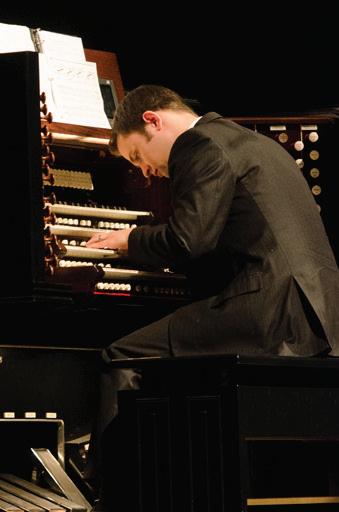
The technique of breathing for focus is referred to by researchers as diaphrag matic breathing (many now refer it to as deep breathing). The goal is to allow the diaphragm to expand to its lowest point and bring as much air into the body as possible, filling the abdomen with air from the bottom to the top while keeping the body relaxed. In meditative breathing,


breathing apparatus.
We ask each student to drop their jaw and open the airway as much as possible and then proceed through an exercise where, at 82 beats per minute, they breathe in for four and out for four, then 3/3, 2/2, and 1/1. Throughout the exercise we ask students to focus solely on the air. Once students are in a more focused state, we transition to breathing for the musical phrase. Our beginning long-tone funda mentals are built on eight-beat phrases, so we have the students use the same inhala tion technique to breathe in for two beats and then form an embouchure to breathe out for eight beats, focusing on the air they will use to create a beautiful phrase. We finish the exercise by breathing in for one and out for eight while audiating the pitch and tone quality we desire and focusing a consistent, vibrant air stream.
As you make your way through the rehearsal, you may find that creating focus in the classroom seems elementary

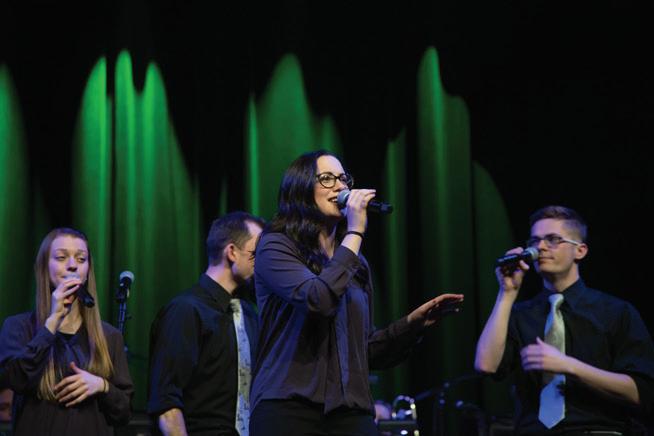

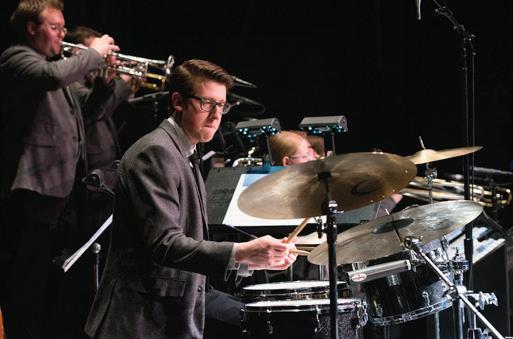
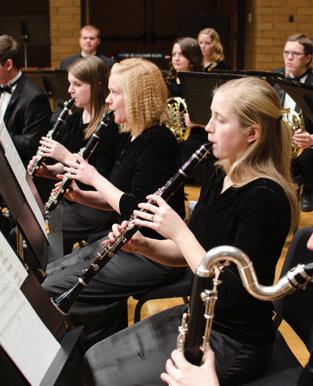


DEADLINE FOR ALL MATERIALS February 1, 2023 (208)496-4950 • music@byui.edu • http://www.byui.edu/music See website for in-person audition dates Scholarships Available OPPORTUNITIES Choir & Opera Band Orchestra Jazz Chamber Percussion Piano DEGREES BM Education BM Performance BMA BA Music PURSUE YOUR PASSION Department of Music Department of Music 19Southwestern Musician | November 2022
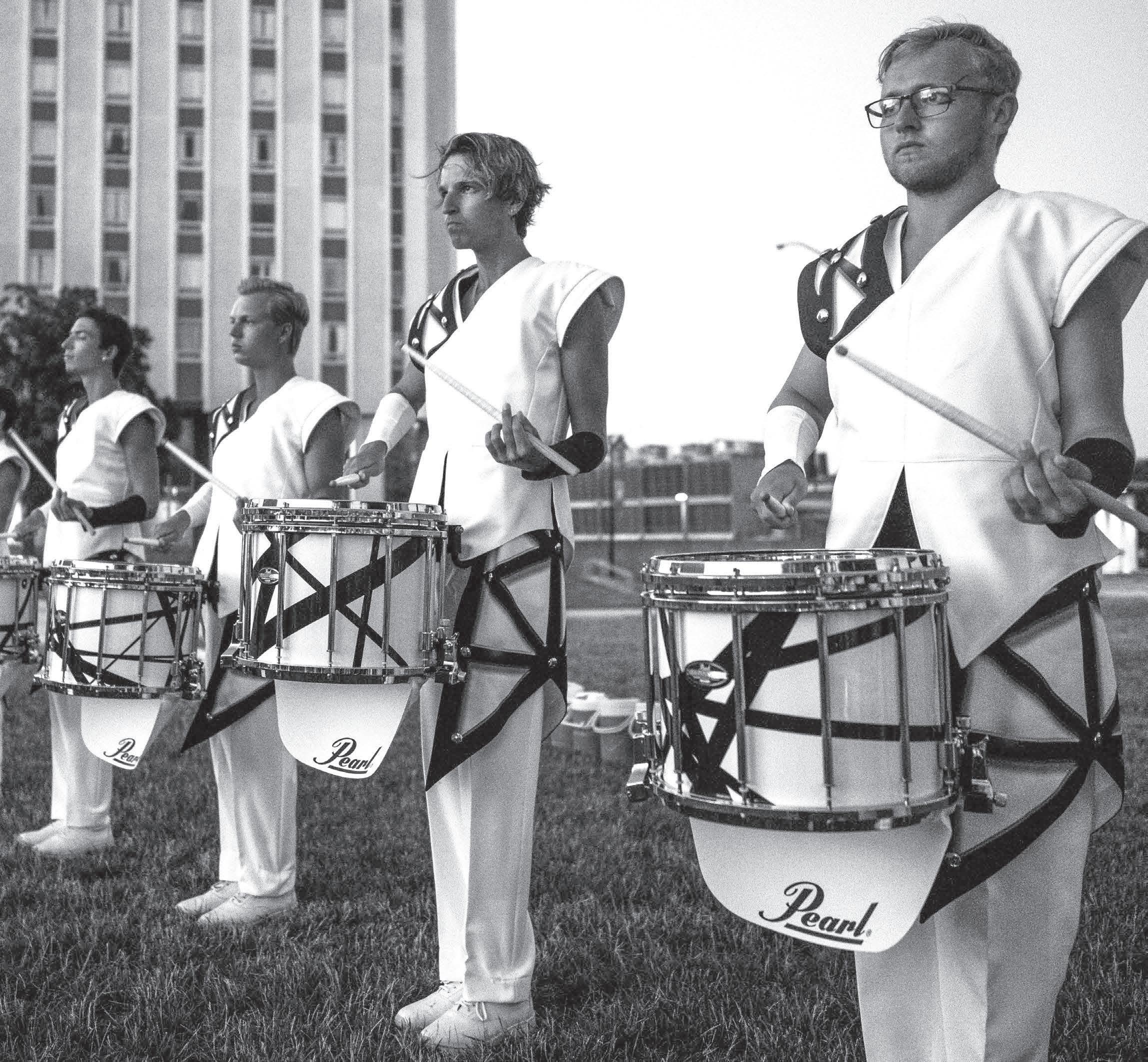
Percussion Source and West Music. percussionsource.com westmusic.com Pearl knows drums. And we know music teachers. Together, we can add more boom to your band or drumline with our our complete selection of Pearl drums and percussion. Your Texas source for
to balance the difficulty of the task with the skill level of the student to maintain optimum focus. With too little challenge, we lose focus to boredom, and if the chal lenge is too high, focus gives way to stress and anxiety. Although the concept has existed in similar forms for centuries, Csíkszentmihályi called this ideal state of focus flow, and much has been written about it since his publication. As band directors, we are presented with particu larly difficult challenges in maintaining optimum student focus, because no matter the ensemble, there is always a wide vari ety of ability levels within the group. How then do we match the challenge of the task with the skill level of the student through out fundamentals/daily drill much less the entire rehearsal?
I believe the secret to this dilemma lies in students understanding two foun dational philosophies. The first is that we must have a real desire to show improve ment on things we do repetitively. If, through our continual emphasis on the concept, we can successfully have students operate in this state of understanding, then maintaining focus becomes a logi cal and necessary part of what the student does throughout the rehearsal (and hope fully, throughout their life).
The second is the concept of infinity. I have found that students have a general understanding of infinity in the sense of the great size of something like the uni verse or number of stars. However, they rarely consider that if infinite “bigness” is possible then infinite “smallness” is equally possible. Once that concept is grasped, this infinite “smallness” can then be translated to infinite accuracy.
In seeking infinite accuracy, a first-chair All-State student and third-band fresh man can maintain equal levels of focus, even though the disparity of their ability levels is significant. While the freshman may be focused on simply maintaining appropriate air speed to stay on the correct partial, their All-State counterpart could be focused on a litany of accuracy topics. “If I subdivide in sixteenths instead of eighths, can I initiate or release this pitch with greater rhythmic accuracy?” “Is my airspeed exactly the same at the beginning, middle, and end of the phrase?” “Which pitch level am I listening to for reference and to what level am I matching it?” These questions, like the concept, could go on
infinitely. It is our charge as the educator to teach and train our students to think of and act on these questions through our processes and procedures. If we are suc cessful in that venture, the growth we see in our programs, through the continual focus we will find in our students, will be significant.
Once you have decided what it is that you want to do and why you want to do it, there will be no greater indicator of success than the level of focus with which you do it. I encourage you to discuss the concept and importance of focus with students regu
larly and involve them in your journey to create and maintain greater focus in your ensembles. I wholeheartedly believe that if you do, you will find yourself directing calmer, more productive, and more enjoy able rehearsals every day.

Clinic/Convention Update
With our convention just over three months away, I hope you have registered and secured your housing. For more infor mation about this amazing event, go to www.tmea.org/convention, and be sure to read through next month’s issue, which
w FOR MORE INFORMATION visit shsu.edu/music 936.294.1360 1751 Ave. I, Suite 225 Huntsville, TX 77340 SAM HOUSTON STATE UNIVERSITY | COLLEGE OF ARTS & MEDIA SCHOOL OF MUSIC NOVEMBER 19 Voice and All Instruments Excluding Guitar JANUARY 28 Voice and All Instruments Excluding Percussion & Guitar FEBRUARY 4 Voice and All Instruments Excluding Percussion FEBRUARY 25 Voice and All Instruments Excluding Guitar MARCH 4 Voice and All Instruments Excluding Guitar APRIL 3 Voice and Percussion Only Non-scholarship 2022-2023 AUDITION DATES 21Southwestern Musician | November 2022
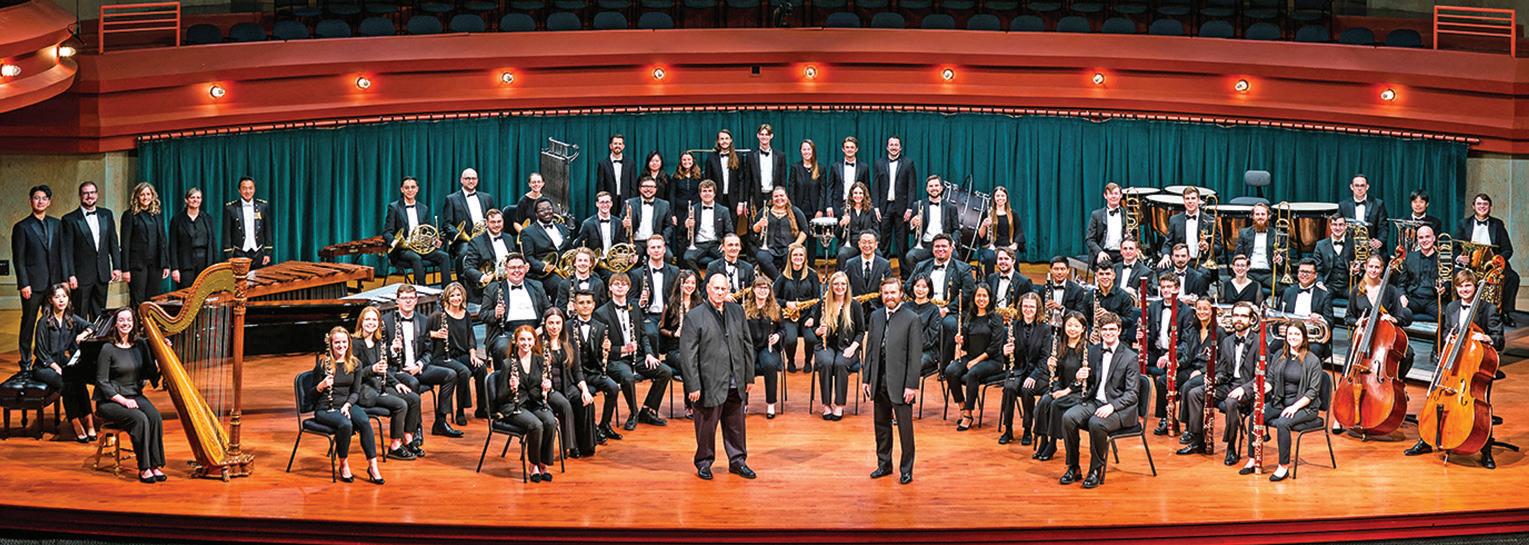
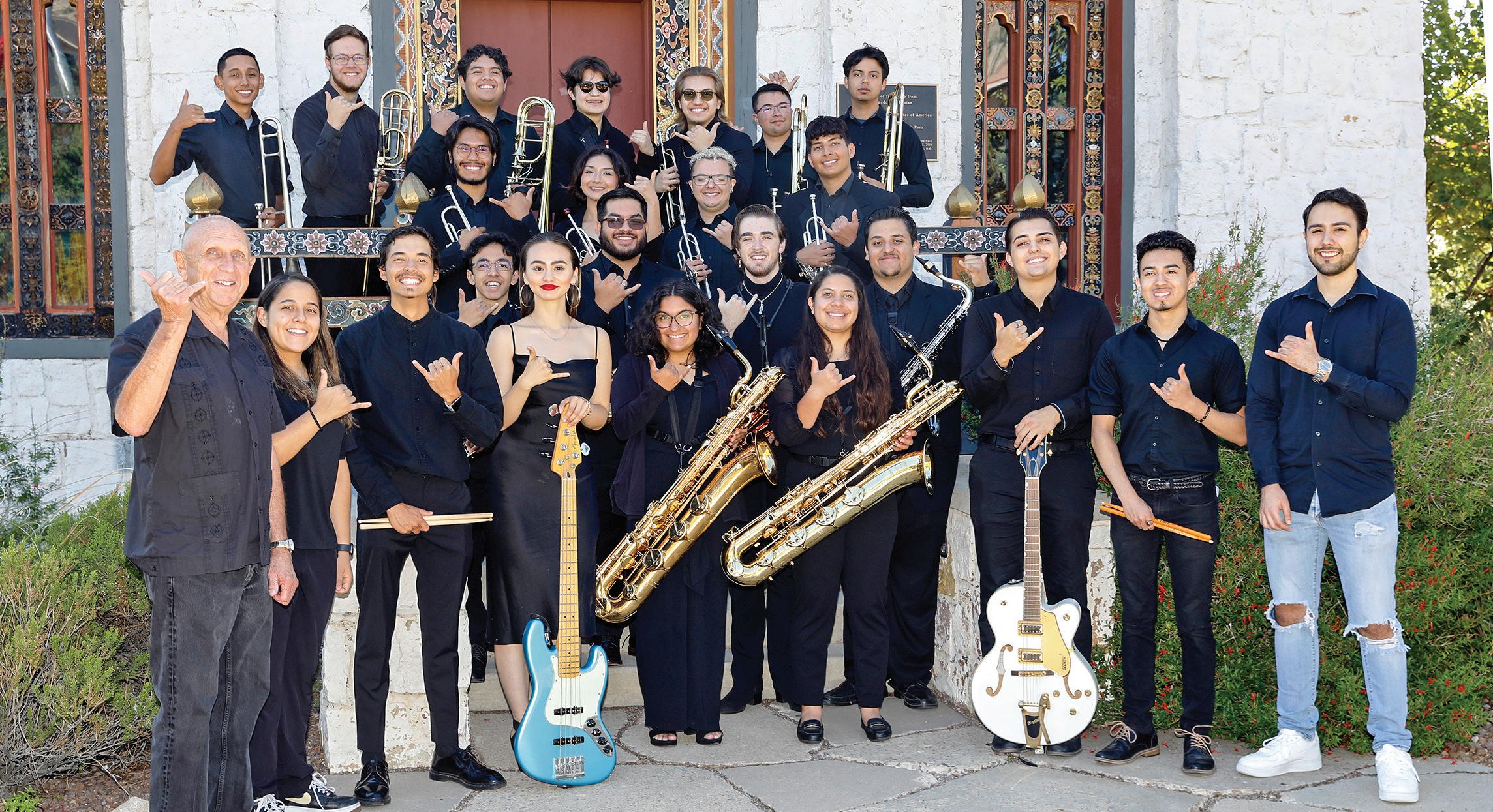
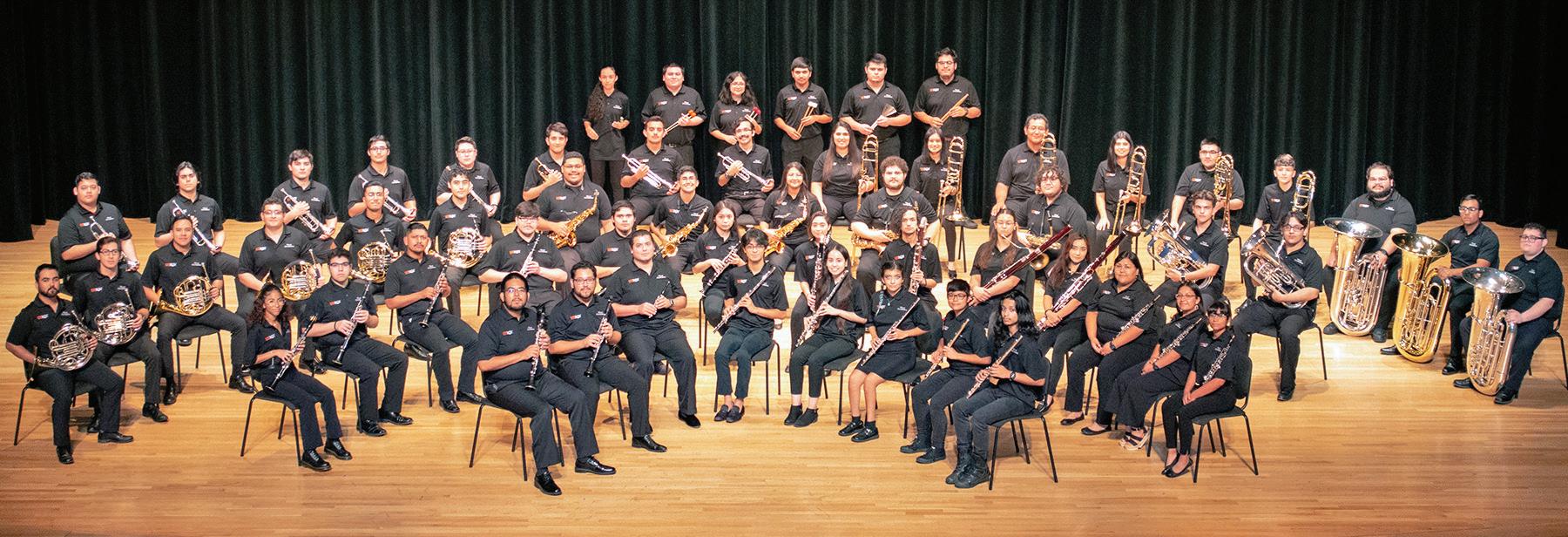 University of North Texas Wind Symphony
University of Texas at El Paso Jazz Ensemble
University of North Texas Wind Symphony
University of Texas at El Paso Jazz Ensemble
I
University of Texas Rio Grande Valley Wind Orchestra
22 Southwestern Musician November 2022
will feature a preview of the full schedule of events.
Please consider volunteering for one of the many opportunities available at our annual convention. Our incredible vol unteers play a vital role in making our convention run smoothly. You can find a list of needs and sign up to volunteer at www.tmea.org/bandvolunteer.
I am excited about the incredible lineup of university bands preparing to perform at our convention. I hope you enjoy read ing about these outstanding ensembles and will make room in your schedule to attend their awesome concerts!
University of North Texas Wind Symphony
Internationally acknowledged as one of the premier ensembles of its kind, the University of North Texas Wind Symphony, conducted by Eugene Corporon, is selected from the most out standing musicians attending the College of Music. Known for “admirable and adventurous programming, which per sonifies diversity and originality,” the group pursues a relentless commitment to American music. They have been called “an ensemble which is simply sensational, full of bristling energy, made up of players with a headlong, in-your-face virtuosity who play with an irresistible intensity and a dynamism that makes you want to leap out of your chair applauding at the Coda.” The Wind Symphony pursues the highest
professional standards and is determined to bring its audiences exemplary reper toire from all musical periods, cultures, and styles. Artistically we hope to live and thrive right where legacy and tradition meet innovation and progress.
Stephen F . Austin State University Wind Ensemble
The Stephen F. Austin State University Wind Ensemble is the premier concert ensemble in the winds, brass, and per cussion area and includes undergradu ate and graduate students from programs throughout the SFA campus. The Wind Ensemble performs a mixture of the wind band core repertoire, newly composed works, pieces featuring guest artists, and chamber music for winds. It also meets the needs of students in the music education curriculum by utilizing the literature to demonstrate teaching techniques.
This will be the ensemble’s 12th appear ance at a TMEA convention, previously having performed under the direction of Melvin B. Montgomery, John Whitwell, and Fred J. Allen. This will be the Wind Ensemble’s first performance under the direction of Tamey Anglley.
University of Texas Rio Grande Valley Wind Orchestra
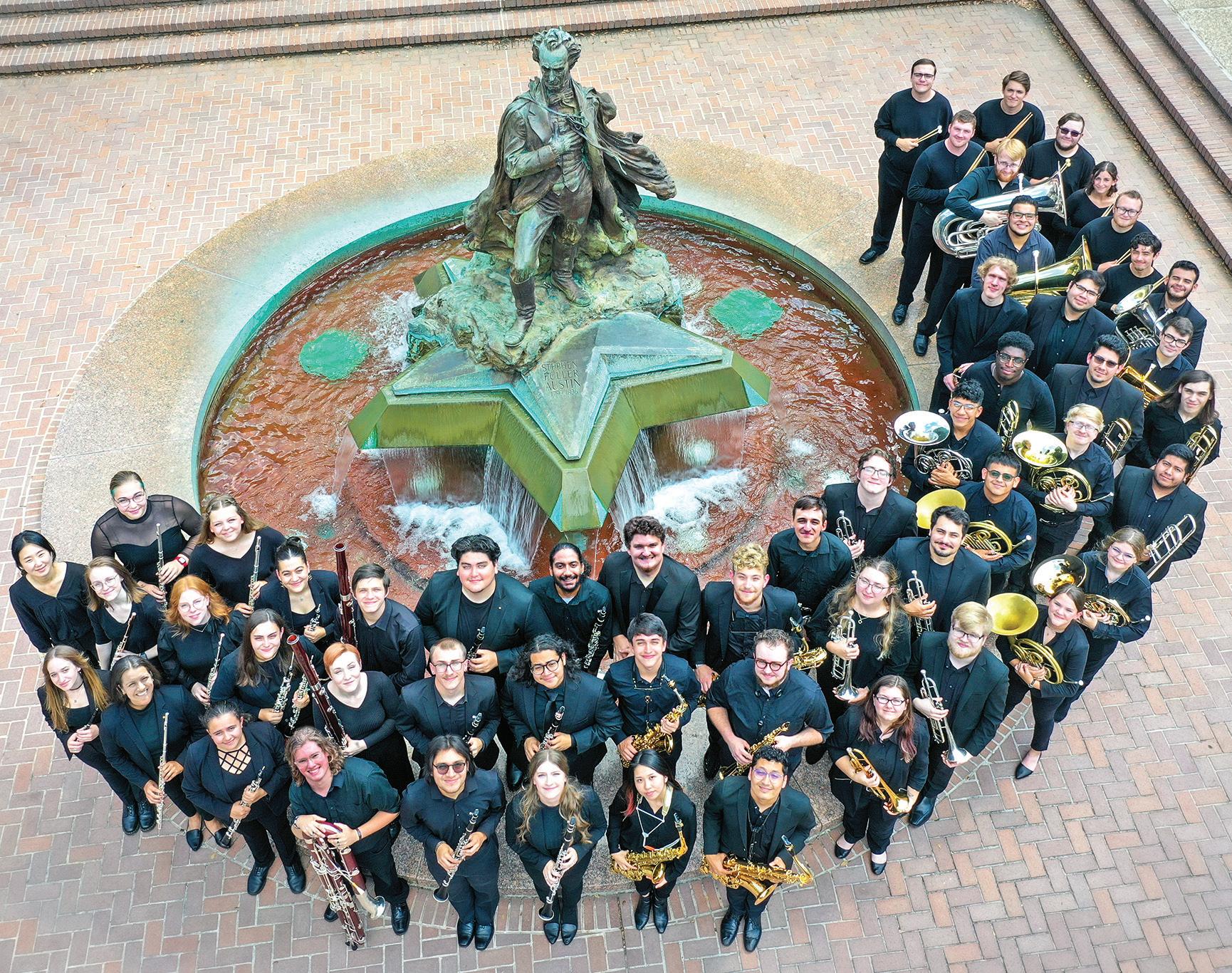
The UTRGV Wind Orchestra is the pre mier wind band at the University of Texas
Rio Grande Valley. Consisting of the most talented wind and percussion instrumen talists on campus, the Wind Orchestra performs the finest traditional and con temporary literature composed or tran scribed for wind band. The UTRGV band program consists of three concert bands, pep band, indoor winds, indoor percus sion, and winter guard. The UTRGV Wind Orchestra’s invitation to perform at the TMEA Clinic/Convention is its first in program history. The group is conducted by Saul Torres, who has served as Director of Bands at UTRGV since 2011.
University of Texas at El Paso Jazz Ensemble I
The UTEP Jazz Ensemble I is the first of two jazz ensembles at the University of Texas at El Paso. The majority of students in the ensemble are from El Paso and are products of the wonderful middle school and high school jazz band programs. The ensemble rehearses twice a week and per forms two concerts on campus each semes ter. The jazz bands also do several outreach concerts in local schools and perform at community events and area jazz festivals. The jazz program is under the direction of Kenny Capshaw, Frank Otero, and Eric Unsworth. 0
Be a Band Volunteer! WWW.TMEA.ORG/ BANDVOLUNTEER You can help ensure our 2023 convention is the best yet!
Stephen F . Austin State University Wind Ensemble
23Southwestern Musician | November 2022

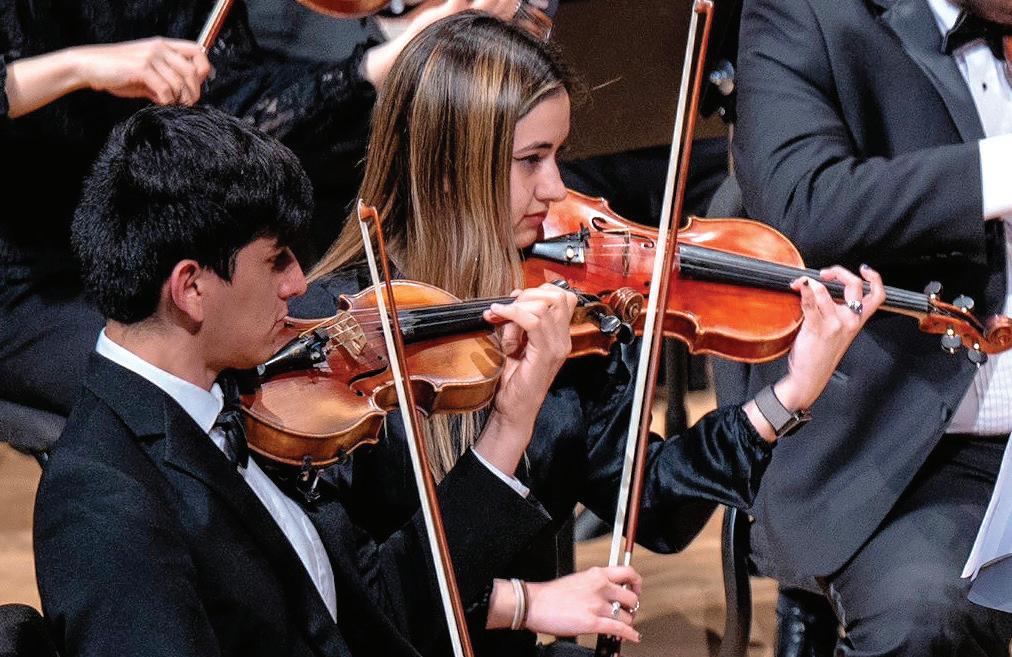

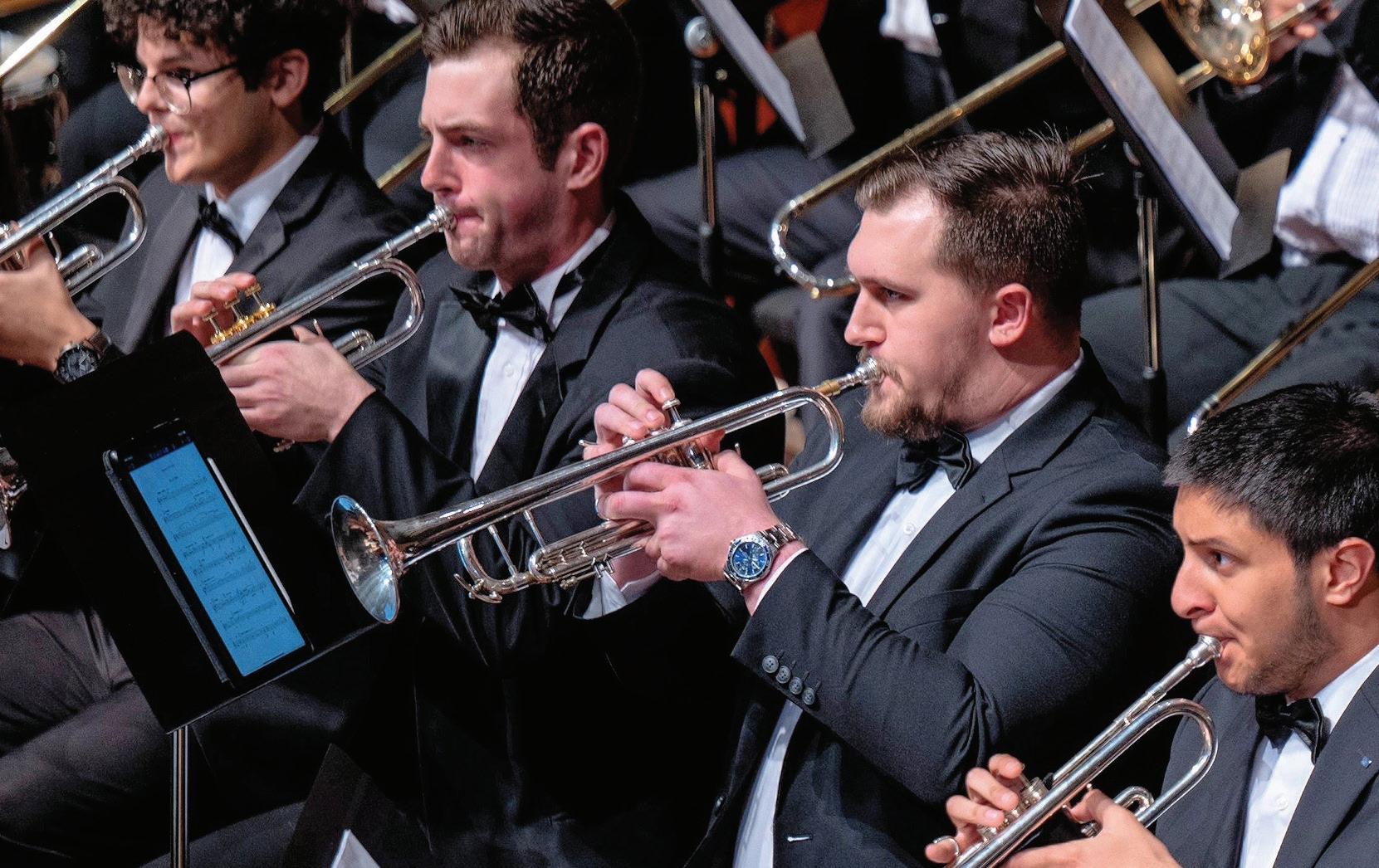
If music is your passion, Scholarship Opportunities Available For You TCU is your school. MUSIC.TCU.EDU/ADMISSIONS School of Music NORDAN Scholarship instrumentalists, and composers of superior talent , who have chosen to major in music. NORDAN winners receive a four-year, FULL-TUITION AWARD. Graduate Programs Available For You disciplines. Graduate Assistantships are available. NORDAN Auditions are by special invitation. January 14, 2023 - Nordan Scholarship* More information is available online at ww w.music.tcu.edu. *Pre-screening Video Audition Required January 21 // February 4 // February 18 AUDITION DATES FOR SPRING 2023 Watch all of our events on YouTube! November 1, 2022 - Application Deadline for Early Action Consideration.
The Van Cliburn Concert Hall at TCU
is now open!
Why Teaching Matters
 By Wayne Oquin
By Wayne Oquin
Most nights you will find me alone in a modest, dimly lit office staring at the screen of a laptop, striving to create the best music I possibly can. Surrounded by tall shelves of books and scores, I feel the weight of many creative minds who have come before me.
For more than two decades, my professional home has resided here on the fifth floor of 60 Lincoln Center Plaza, a stone’s throw from the New York Philharmonic and Metropolitan Opera. No matter how calm the night, by 9 a.m., this quiet corridor of The Juilliard School transforms into a cacophony of controlled chaos made up of a new generation of diverse performing artists.
I instruct twelve classes a semester, in topics ranging from music theory to ear training to graduate studies. As chair of the musicianship department, I see approximately 150 students from around the globe each week and I supervise student teachers. Fifteen teaching fellows work under my direction, learning how to be effective in the classroom.
It might be tempting to think that my circumstances are so specialized that little of my experience is relevant to those teaching in much of the nation’s public school system. If you asked me ten years ago, I would have been guilty of the same generalization. But in the past decade, I’ve collaborated on my music with an increas ing number of outstanding high school band and choir programs around the country. The more I come to know the directors of these ensembles on a personal level, the more I realize our com mon cause. Many of our classroom challenges, goals, and strate gies overlap. I don’t mean just the technical aspects of music, but also the broader concerns.
Colleagues who teach grades 6 through 12 face similar career goals and difficulties as I do. They, too, work long hours, some
holding down more than one job. They struggle with burnout. They also want to be the best they can for their students.
I’ve come to realize the task of being an efficient and engaging teacher is basically the same no matter the ages of the students you teach. The central concerns of being effective in the classroom transcend circumstantial boundaries.
ENCOURAGE INDEPENDENT THOUGHT
In my early twenties I attended a masterclass with the legend ary pianist Leon Fleisher. In a single sentence he revolutionized the way I would one day teach. I can still hear that deep, rich voice cautioning the educators in the audience, “The most important thing the teacher can teach the student is how to learn without the teacher.” Great pedagogues avoid student dependency; they teach students to think for themselves.
One temptation in group settings is to present excessive positive reinforcement. Affirmation is an ingredient, not a recipe. In small doses, acclamation goes a long way. In large quantities, it deprives students of their opportunities for critical thinking and cultivates teacher pleasing. Giving praise when it is truly earned will make your opinion of genuine accomplishment matter.
The most successful conductors with whom I’ve been privileged to work know their musicians, not just their strengths and weak nesses or their sound quality, but also who they are as people— how they learn, how they respond.
In discussions with your ensemble, target certain questions to certain students. Ask a student with a good ear what concert pitch another section is playing in the texture. If a student happens to have perfect pitch—this is probably more common than you realize—don’t ask for note names; focus your questions on scale
25Southwestern Musician | November 2022
degree. Any technical detail you draw attention to is for the sole purpose of get ting students to listen for themselves. This will greatly affect a student’s perception of how they fit into the overall texture as well as increase their attention to phrasing, expression, and musical detail.
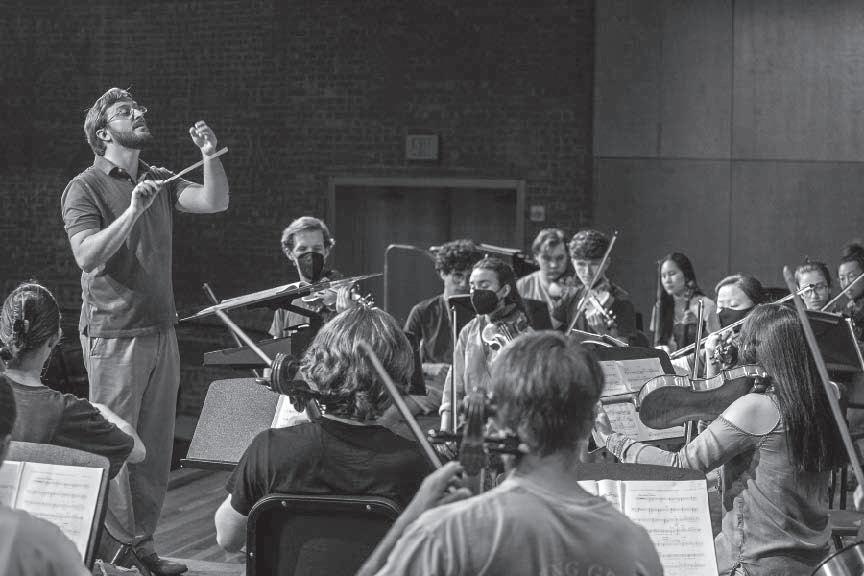
BUILD CONFIDENCE
Whatever you teach, drill the basics. Every year I give a one-on-one placement interview to the incoming class at Juilliard, and I continually encounter graduate stu dents from every corner of the globe who don’t know their key signatures. Beyond four sharps and flats, many musicians suf fer from theory amnesia. G-sharp minor and E-flat minor, we ignore at our peril. I believe that assimilating and absorbing the difficult keys, those used less frequently, helps a musician better grasp the tonal areas that are more common in our every day use.
Don’t teach key signatures just by rote memorization. It’s internalization that makes the difference. Anyone can play scales. Few can fully inhabit a key. Try asking your students to sing a scale from a note other than tonic. Probe the students
for a note name without first giving them the tonal center. “F is three in what major scale?” “D-sharp is the raised seventh in what harmonic minor scale?”
One secret of good teaching is asking the right questions in the right order. Each day, create some new step slightly more challenging than the day before. Including a little of this every rehearsal will help stu dents begin to play with greater certainty.
SEE THE BIG PICTURE
Every so often I stop and ask students why I phrased my question a certain way. Encouraging students to examine word choice invites them to look more closely at the teaching process.
It is quite possible for a young person to master certain material at a dazzling level and completely miss the point of an etude or exercise. The purpose of teaching musi cianship goes beyond improving one’s technique on an instrument; it deepens a student’s foundational understanding of the musical world where they dwell.
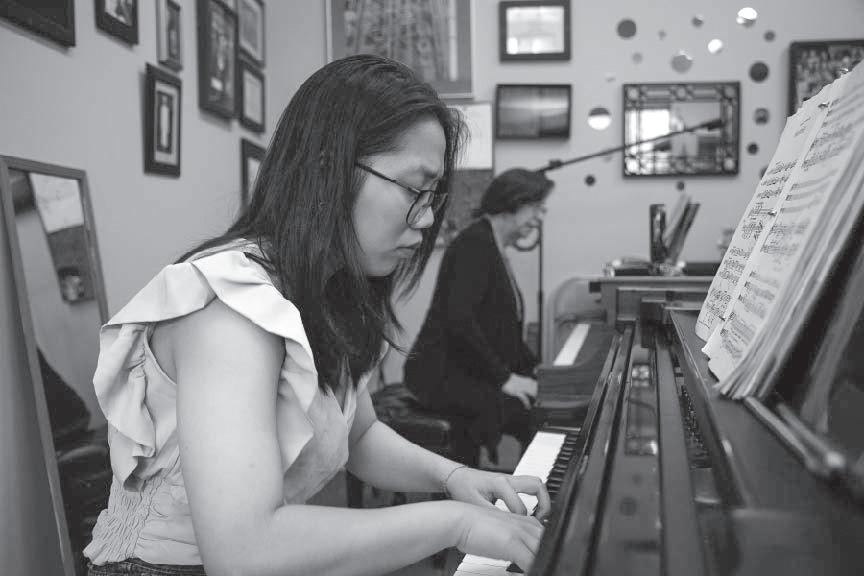
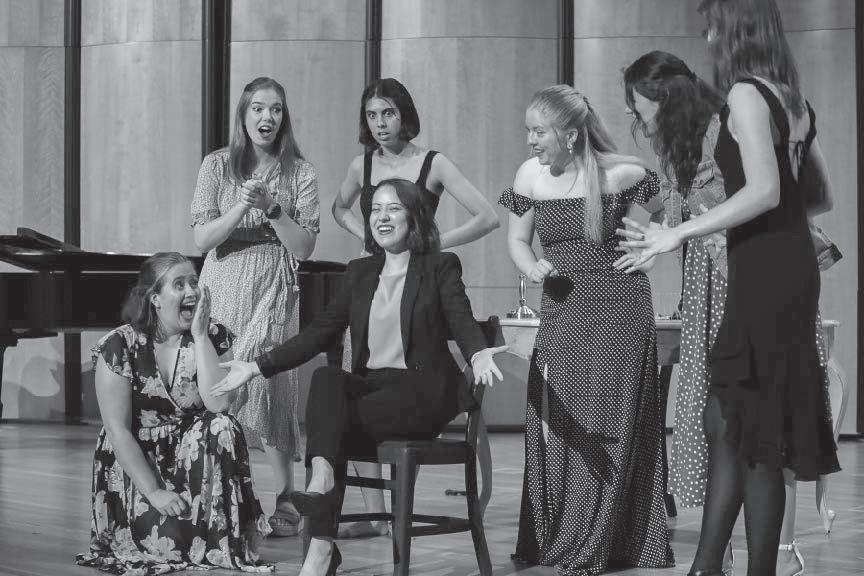
Most of my assignments require every student to simultaneously sing and con duct. Why? Because marrying a key with a meter—being able to perform, listen, and
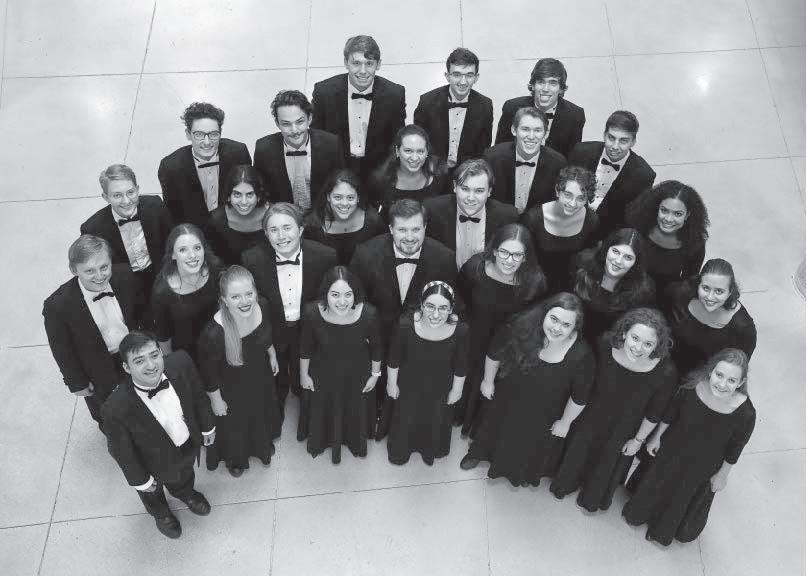
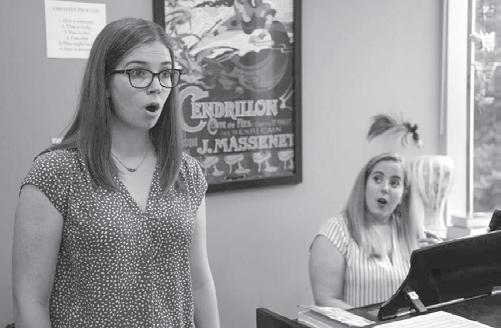

interpret within the confines of a time sig nature—can be learned only by stepping onto that pedagogical treadmill, trying, perhaps failing, and trying again.
The teacher does not bear the burden of application alone. Some of the real-world benefits of this subject I’ve discovered from former students who later convey their own ongoing improvement in interpreta tion, memorization, concentration, and retention. I’ve never had a student later tell me the curriculum was a waste of effort.
The vast majority of notes we musicians will play in our lifetimes will not be in a vacuum. They will be in context. They will be consonant or dissonant with other notes; they will almost always be a scale degree in a key, a member of a chord; they will occur on a beat, in a meter, at a tempo. The advantage of a student putting down their instrument and spending a few min utes each day working on the basic tenets of musicianship is incalculable.
FOSTER CURIOSITY
Seeing music through the lens of a com poser, one realizes that none of the notes on a page had to be there. Every detail of a score is a choice. I challenge myself never
Music scholarships available to non-music majors trinity.edu/music The Trinity University Music Department is recognized as an ALL-STEINWAY SCHOOL by Steinway and Sons, for its commitment to excellence think. perform. explore. ■ Faculty who focus on undergraduates ■ 16 ensembles, with national and international ensemble touring opportunities ■ Degrees in music education, performance, and composition ■ Master of Arts in Teaching, a 5th year program with a full year of student teaching and 100% job placement (25 consecutive years) ■ Located in culturally vibrant San Antonio ■ Study Abroad opportunities 26 Southwestern Musician November 2022
to teach a piece unless I’ve first examined its primary source materials. Every time I show a class an image of a composer’s handwritten sketches and scores, the result is transformative. When a young musician encounters the notes in the composer’s own hand—it doesn’t matter if it’s Beethoven, Aaron Copland, or William Grant Still— they sense the effort of the compositional process. They play with greater sensitivity. They listen with new intrigue.
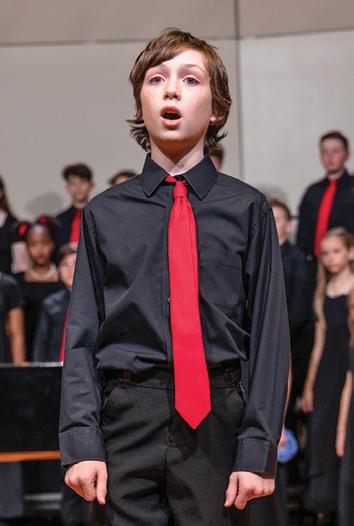
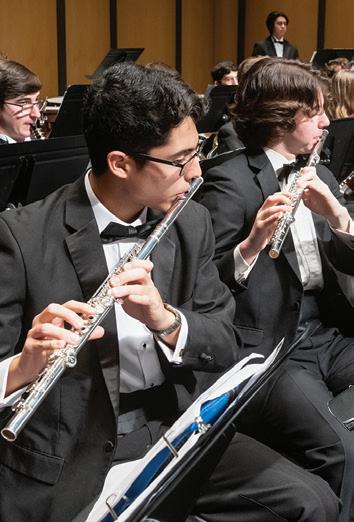
In the past two-plus years, Zoom has opened our classroom access to guest art ists the world over, many of whom were previously out of reach. I’ve been fortu nate to have virtual interviews with Marin Alsop, John Corigliano, Jerry Junkin, and Joseph Polisi. Ask your visiting artist the big questions. What is your process of preparing for a performance? What does the opening of a certain piece reveal about what comes later? How does this one piece represent the composer’s overall output?
Listen, teach, and program broadly across time and space. Balance the music of previous centuries with that of our own time. Teaching is where the past and the present join forces. We owe much to the composers who have come before and a great deal to those writing today.
FIND THE JOY IN LEARNING
My colleague and fellow composer, the late Christopher Rouse, used to make a distinction between enjoying an activity and the joy in having accomplished some thing worthwhile. Chris dreaded day-today composing, yet he loved having com posed well. For many, practicing scales and arpeggios is not a gratifying way to spend an hour. But few would deny the pleasure of the result.
As educators, if we can make an activity fun, we should. But the last thing I would want a young person to take away from any of my classes is that only fun things are worth doing. Nor is everything about competition. The pride from having won sweepstakes at a state festival is no substi tute for the gratification that comes from internal growth and achievement.
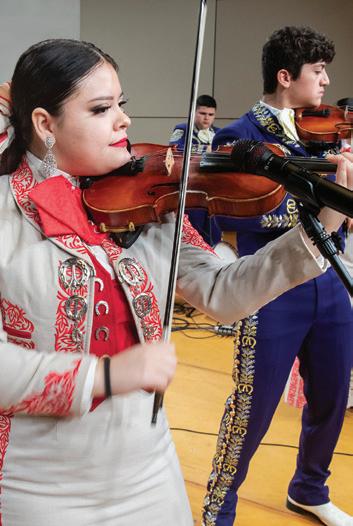
FINAL THOUGHTS
At some point in every year, usually in mid-April, my friends will hear me prom ise that this academic year is my last. I’ve completed twenty-two Aprils in higher education, each one testing the outer lim its of my endurance. In times of frustra

tion, when the last thing I seek is another teacher-student conference or recommen dation letter deadline, when the projector breaks and the school wi-fi is down, when outside political turbulence overpowers the subjects being taught, these are the times I remind myself that music educa tion matters. Teachers matter.
Over the years I’ve watched my students grow to become some the world’s most rec ognized names in the performing arts. I’ve also watched an increasing number make the sometimes painful yet often right deci sion to enter another vocation. Many of my Juilliard students have gone on to be lead ers in the fields of neuroscience, medicine, law, and finance.
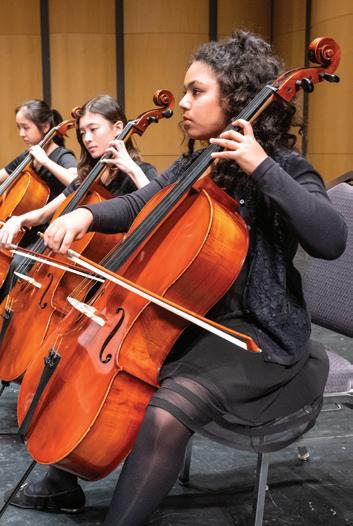
None of us knows what journey life has in store for those currently in our class rooms. But much of what we teach in music can readily be transferred to other disciplines. The lessons run deeper than the repertoire we play or the musicality we impart. We are teaching students to be lifelong learners. We are teaching them to learn by doing. We are teaching them how others learn. We are teaching that mean ingful progress in any endeavor happens gradually, not overnight. These lessons can be applied anywhere anytime.
The hardest and most rewarding part of my job is maintaining the lofty standards of those who taught me those same les sons. I find great satisfaction in continuing the legacy of my former teachers. Almost three decades ago you would have found me in east Houston at North Shore HS standing in the baritone section of Sam Harris’s choir or seated at the piano in Ellie Cleveland’s band. Somewhere in their classrooms, long before I moved to New York City, I learned more than how to be competitive; I learned to love music at a molecular level. I learned to value excel lence for its own sake. This is what every music teacher I know is offering the world. It is certainly what I aspire to in my own work. And there’s much work to be done. 0
Wayne Oquin is the Chair of Musicianship at The Juilliard School as well as being among today’s most performed American com posers. Oquin will serve as the Band Division Featured Clinician during the 2023 TMEA Clinic/Convention. You can read more about him at www.tmea.org/ convention/featured-clinicians.
Get ready to learn all about the 2023 convention in next month’s preview issue! 2023 TMEA CLINIC/CONVENTION February 8–11 • San Antonio • Henry B. González Convention Center WWW.TMEA.ORG/CONVENTION 27Southwestern Musician | November 2022
TMEA Orchestra Vice-President
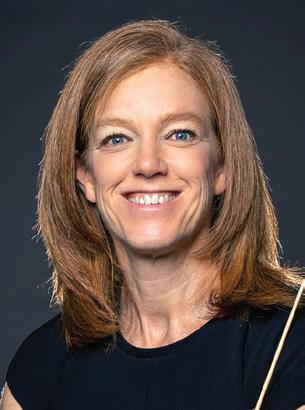 ANN G. SMITH
ANN G. SMITH
Expanding Our Repertoire
By programming works that reflect their culture or ethnicity, students will have the opportunity to see themselves reflected in the music they learn.
This month, it is my privilege to highlight several of the Orchestra Division’s 2023 Honor and Invited ensembles. Please take a moment and read about these amazing ensembles. As of the press deadline for this issue, the HS String Honor Orchestra contest had not been completed, so that ensemble will be featured in a future issue.
The saying you can’t teach an old dog new tricks has been on my mind for the past several weeks while I have been work ing to develop some additional skills in both my professional and per sonal life. After the growth work I’ve been doing, I’ve decided that say ing is a myth. One area where I can see this growth mentality is in my approach to programing for my ensembles. When I examined my last 28 years as an orchestra director, it was clear that I had typically pro grammed pieces within the Western classical tradition. Recognizing this pattern in my music selection programming, I realized I needed to seek out more opportunities to select music from underrepresented compos ers and cultures.
In a report by Dr. Rob Deemer and Dr. Cory Meals, in conjunction with the Institute for Composer Diversity, results from a survey on com poser diversity were presented. This survey explored the growth in pro gramming of underrepresented composers in the professional orchestra community. From 2015 to 2021, there was significant growth in the programming of women composers and composers of color, from 4.5% to 22.5%. With this increase came a decrease in programming of dead white male composers from 86.4% to 69.6%. Changes in programming are making their way into professional organizations and we should be following this trend. (Go to www.tmea.org/2022OrchestraRepProject for the full report.)
November—Renew your membership and register for the convention.
November—Make your TMEA convention hotel reservation.
November 1 —TMEA scholarship online application deadline.
November 12–13 —Pre-Area and Area adjudication.
January 19 —TMEA convention early registration deadline.
February 8–11 —TMEA Clinic/Convention in San Antonio.
MARK YOUR CALENDAR check www.tmea .org for updates 28 Southwestern Musician November 2022
Why is it important to program music from underrepresented composers and cultures? There are several compelling rea sons beyond the obvious response that it’s just the right thing to do. The first reason that comes to mind is that high-quality music extends well beyond the Western tradition. Music from underrepresented composers and cultures provides chal lenges on many levels, from technique to interesting harmonies to musical chal lenges. The technical, harmonic, and musi cal approaches in music from those under represented will provide your students the opportunity to expand their skills further. As a current ensemble rehearses a piece of music from the Hindustani tradition, they must focus on bow technique that was often ignored as they practiced and rehearsed traditional string literature.
Our students come from many differ ent cultures, ethnicities, and backgrounds. By programming works that reflect their culture or ethnicity, students will have the opportunity to see themselves reflected in the music they learn. When students can see themselves reflected in what is important to them, more opportunities
they have value in your community. The joy seen on a student’s face when they can bring in an instrument that is traditional in their culture and include it in an ensem ble performance is priceless.
Our students need to learn and reflect on a wide diversity of experiences. What can be learned from rehearsing and per forming a piece of music from an African American composer? What traditional folk tunes, rhythms, and harmonic struc tures are encapsulated in a piece like this that can add to their knowledge and under standing of an African American artist? Why shouldn’t we provide this experience and knowledge for our students?
Being vulnerable, I can admit that as a director with little experience in cul tures beyond my own, I didn’t know how to begin the process of presenting music from those underrepresented. So how does one get started with this movement toward greater diversity? We all need to accept and move past any uncomfortable feelings we may have. I know I am uncomfortable doing anything I don’t have a certain level of knowledge in, yet I also know moving past my discomfort is necessary for my
Getting started will take time—time spent in research and time gaining knowledge. For me it was important to talk with my students. These crucial conversations with your students will give you direction. You might be surprised what they can offer you. Search the internet. Utilizing this rich and accessible resource can help get the ball rolling. Research what professional orchestra organizations are programming. The works professional groups are per forming may not work for your program, but this is another tool in your toolkit that will aid in the process. Look at who the professional organizations are bringing in as artists-in-residence. Talk with your col leagues. They will have musical gems they have discovered and will be more than willing to share.
Reach out to organizations like the Institute for Composer Diversity. Their resources are extensive and can give you solid direction to explore. Consider com missioning a work from a live composer. The commission process can be expensive, but the impact will be worth it. To offset the expense of a commission, apply for grants. There are organizations that want to support diversity and the education of
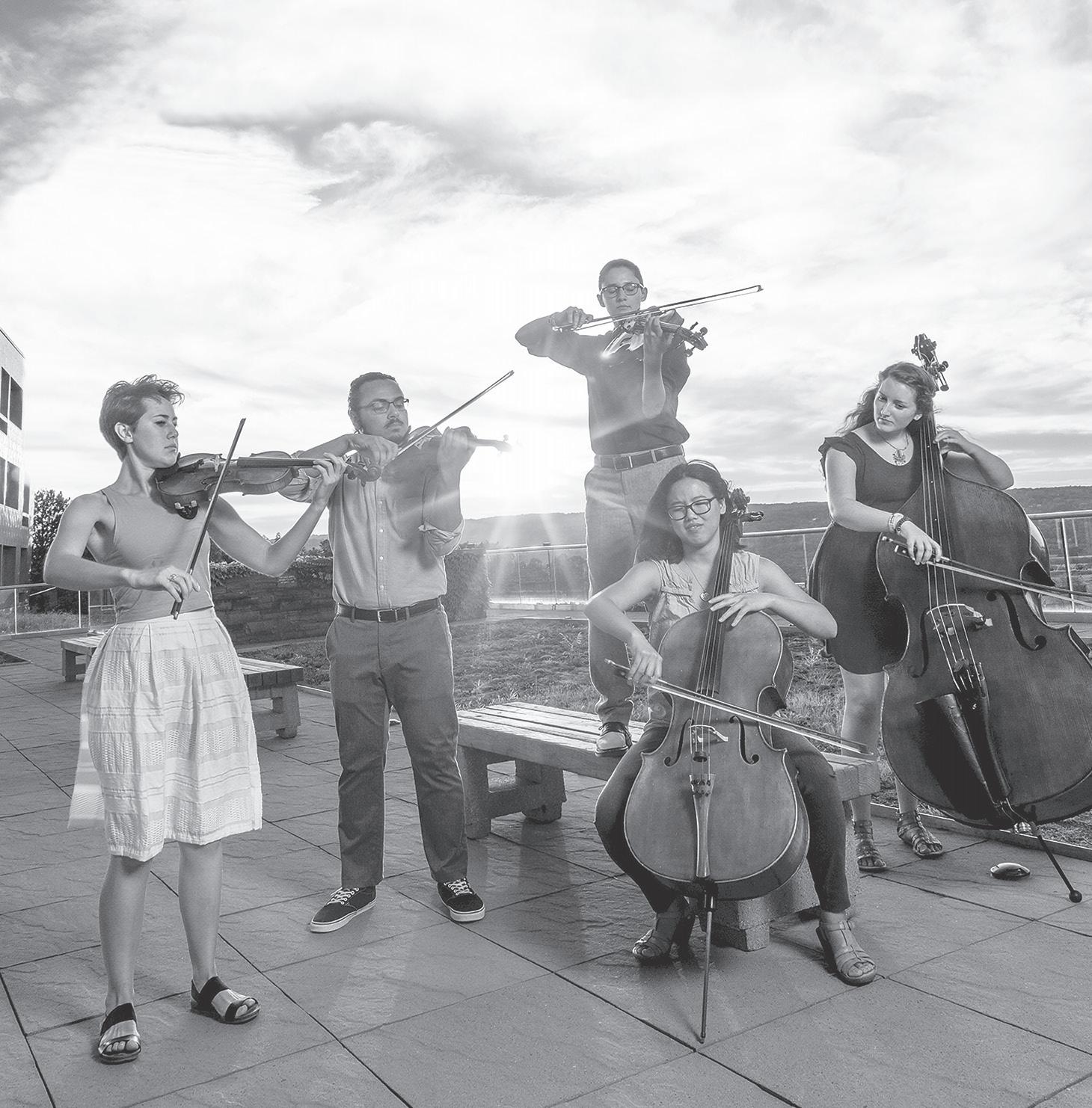
Don’t Just Play. PERFORM AT YOUR HIGHEST LEVEL. Take your musicianship to new levels through the continuous study of theory, practice, and performance. 2022–23 MUSIC AUDITIONS Saturday, December 10, 2022 Saturday, January 28, 2023 Saturday, February 4, 2023 (Virtual) Saturday, February 18, 2023 Application Deadline: December 1 Apply at ithaca.edu/music/admission TOUR OUR FACILITIES Experience a walk through the Whalen Center for Music with Director of Music Admission Bradley Whittemore ’16. Visit at bit.ly/icmusicvirtualtour. ithaca.edu/music | music@ithaca.edu 29Southwestern Musician | November 2022
your students and may be willing to pro vide the financial support for this.
I witness the benefit of diverse pro gramming daily. The enjoyment and com mitment from the students to the diverse pieces that are programmed is evidence that I need to keep exploring diversity in my music selections. I have asked my stu dents about the pieces we are working on, and overwhelmingly, the response about their favorites are those pieces previously not represented in my programming. They are all in with diverse repertoire, and this attitude seeps into the more traditional works as well. My associate and I regularly see a difference in the students’ approach to technique, and again, this has an impact on all other works.
Lastly, by expanding the diversity in our programming, we will reach wider audi ences with our performances, and hope fully that will translate to even broader community support for our work in music education. There is no one way to expand diversity in our programming. But the one thing we must do is start. It might require baby steps at first, but each of those is a step forward and will only benefit every one that is involved.
Clinic/Convention Update
I hope you have already registered for our TMEA Clinic/Convention, which is only three months away! For access to all the details and convention registration, go to www.tmea.org/convention.
Next month, this magazine will feature a preview of the full schedule of events, where you can learn more about the amaz
ing professional development opportu nities that await you in San Antonio! In addition to learning from master teach ers in our clinics, I look forward to the opportunity to welcome back our Honor Orchestras and performances of our divi sion’s Invited Ensembles. This month, I’m pleased to introduce a few of these groups and will feature the rest in our January issue.
MS String Honor Orchestra
Beckendorff JH Honor Orchestra, Katy ISD
Beckendorff JH is part of Katy ISD and part of the Seven Lakes HS feeder pattern. The orchestra program at Beckendorff consists of approximately 270 students and has a long-standing tradition of excellence, including two previous TMEA Honor Orchestra appearances in 2012 (Matt Porter) and 2019 (Karel Butz). In addition, the Beckendorff JH Honor Orchestra per formed at Midwest in 2011 and 2015 and has been recognized by the Foundation for Music Education as a Mark of Excellence National Winner numerous times. This year’s Honor Orchestra consists of 26 seventh- and eighth-grade students and is under the direction of Amy Williams.
MS Full Honor Orchestra
Curtis MS Symphony Orchestra, Allen ISD
Curtis MS is home to over 1,400 stu dents in grades 7–8. Performing arts in Allen ISD begin at the elementary level, where sixth graders meet twice weekly. Students audition for placement in one
of five orchestras or bands. The Curtis Symphony Orchestra was formed in 2014 and is directed by Amanda Su, Amy Gearhart, and Clint Schaefer.
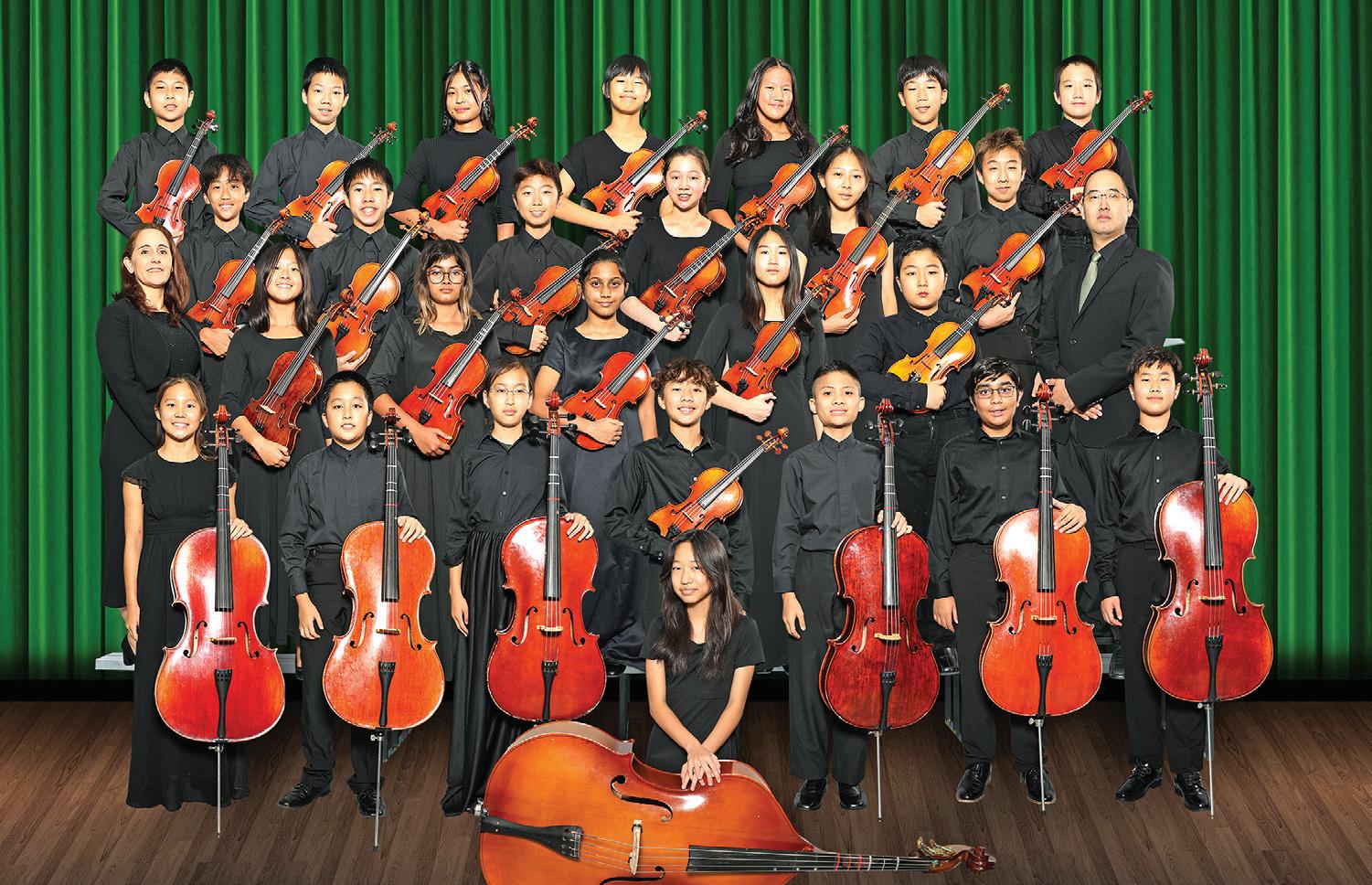
The Curtis Symphony Orchestra was last selected as the TMEA MS Honor Full Orchestra in 2020. The Curtis Chamber and Symphony Orchestras have consis tently been named a National Winner of the Mark of Excellence Project. The Curtis Symphony thanks the administrators, staff, parents, and community for their tremendous support.
HS Full Honor Orchestra
Plano West Senior HS Symphony Orchestra, Plano ISD
The Plano West Symphony Orchestra is the product of a harmonious partnership between the string and band programs at Plano West SHS, a grade 11–12 campus in Plano ISD. Each program has a long his tory of success. The Plano West Chamber Orchestra has been named a TMEA Honor Orchestra eight previous times, most recently in 2019, and performed at the Midwest Clinic on multiple occa sions. Similarly, the Plano West Band has been a finalist in the TMEA Honor Band competition and a National Winner in the National Wind Band Honors Project. The orchestra program is led by Ryan Ross, with associate director Amy Gross, and the bands are headed by Jackie Digby, with associate directors Preston Pierce and Justin Myers.
Invited Mariachi Ensemble Mariachi Espuelas de Plata, Fort Worth ISD
The North Side HS Mariachi was estab lished in 1980 as the first mariachi program in Fort Worth ISD. Mariachi Espuelas de Plata has represented the Fort Worth ISD at TBA, TMEA, and the Midwest Clinic as well as various conferences, competitions, and festivals throughout the United States. Mariachi Espuelas de Plata has received UIL Sweepstakes awards seven years in a row at the UIL State Mariachi Festival. In the summer of 2019, they shared their pas sion for mariachi music and Mexican cul ture by performing and touring in Austria, Germany, and Switzerland. This is the first invitation from TMEA for Mariachi Espuelas de Plata, currently under the direction of Ramon Niño III, Imelda Martinez, and John Olmos.
0
Beckendorff JH Honor Orchestra
30 Southwestern Musician November 2022

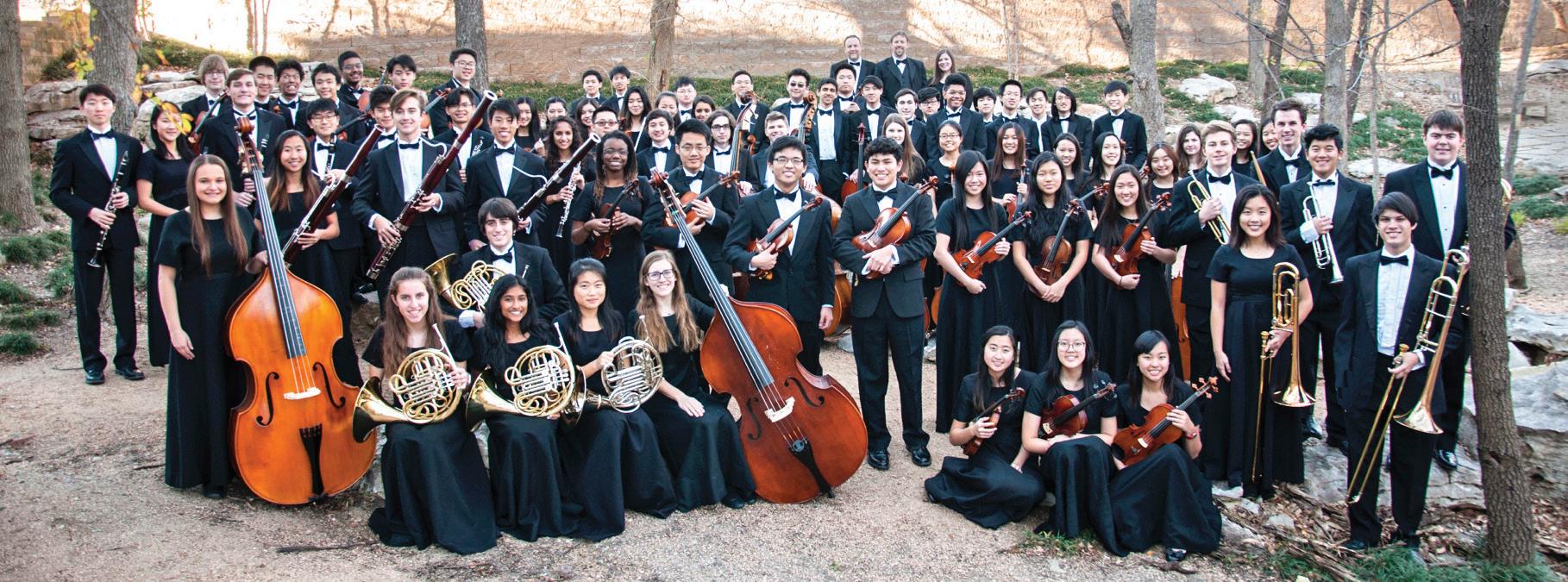
 Curtis MS Symphony Orchestra
Plano West Senior HS Symphony Orchestra
Mariachi Espuelas de Plata
Curtis MS Symphony Orchestra
Plano West Senior HS Symphony Orchestra
Mariachi Espuelas de Plata
31Southwestern Musician | November 2022
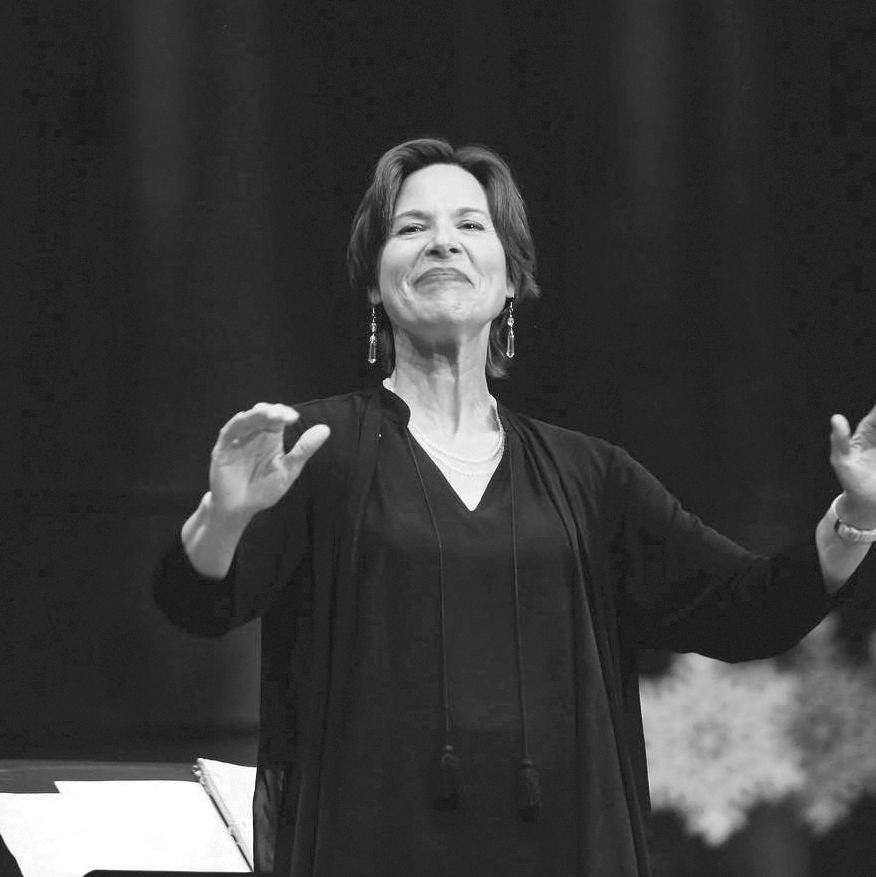
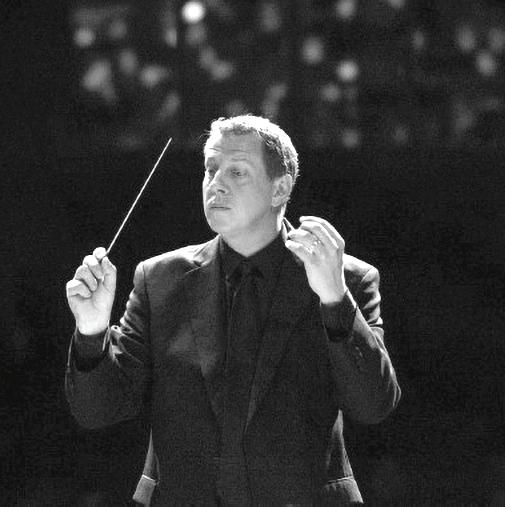
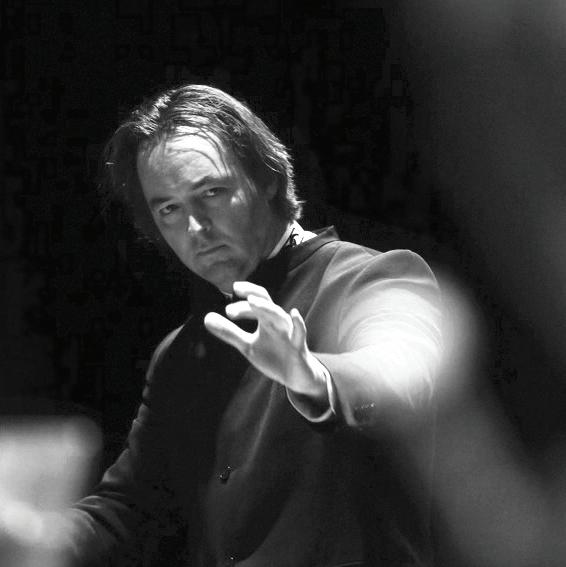
Developing Confident Players & Leaders
By Mirelle Acuña
As music educators, each of the students we teach is at a unique stage in their skill development. Regardless of where they are on their musical journey, their level of confidence can vary greatly. Even our most skilled students can lack the confidence we all strive to help them develop while in our programs. We have all battled the monsters that are student insecurity, lack of motivation, lack of leadership, fear of performing, and more. What I offer here are a few suggestions to help you address this issue and help your students progress with confidence.
It Begins with the Teacher
First, don’t let your own insecurities, fears, or stress drive your decisions for your program. Every year it seems like we have more to do, and under that stress we can develop our own insecurities as teachers and leaders. As we plan, we begin to panic, stress, get anxious, and doubt ourselves. The best thing to do is to take a step back and objectively evaluate the work you have done and are doing. Has your program held steady or shown growth? Are your students excelling? Is student participation increasing? If the answer to any of these is yes, take a breath and give yourself a pat on the back. Focus on what you are doing well in your program and build on that. Then, be honest with yourself and determine what didn’t work well and perhaps modify or remove those com ponents. After all, for our students to be confident, we must dem onstrate confidence ourselves.
Why Do Some Students Lack Confidence?
An obvious answer to this question would be that these stu dents don’t practice enough. However, obvious answers are many times not the correct ones. Regarding confidence, lack of prac tice is not always the root of the issue. The root often lies deep within the thoughts and beliefs of the students—through selftalk. Psychology Today explains that self-talk combines conscious
thoughts and subconscious beliefs and biases, providing a way for the brain to interpret and process daily experiences. This affects our students by training their brains to subconsciously develop doubt. For example, a student may have an early morning audi tion and their self-talk convinces them that no one performs well at that time of day. Focused on that negative self-talk, the student becomes nervous and loses confidence, ultimately leading to a bad audition.
When it comes to practicing, bad self-talk can manifest in many problems. A student can set themself up for the best practice ses sion, but then the self-talk monster creeps in. You can’t learn this alone, you should wait for your next lesson, or this is too hard, just practice what you can actually play. The student doesn’t realize they are doing this to themself, but now this self-talk has sabo taged their practice session.
Teacher Talk
Teachers can also contribute to students’ negative self-talk. Think about those days when we feel pressured, stressed, and anxious at work. Those are the same feelings we promote in our students when we speak to them in a manner that instills fear of failure rather than creates confidence. This fear and doubt breed a lack of confidence. Therefore, we may be at the root of the problem, not a lack of practice.
If you want to build confident players, examine your teacher talk. For example, instead of saying to a student, “I don’t like the way you played that,” change it to, “I like your interpretation, but I what I want to hear is .” This way the student won’t be embarrassed or feel belittled. Be careful not to constantly single a student out for doing something incorrectly. Instead, point out a student who did something right and have the class copy that stu dent. This will create motivation and confidence in the player you acknowledged playing correctly without crushing the confidence of another. Remember, most students—especially those lacking
33Southwestern Musician | November 2022
confidence—usually know they did some thing wrong even before you pointed it out. Remember that self-talk can either ignite and inspire confidence or instill fear and anxiety. With this in mind, start reflecting on what type of self-talk you are teaching your students.
Music Activities for Performance Confidence

Throughout our instruction and activities, we have many opportunities to support student confidence-building. Consider the following ideas as you exam ine ways you can help your students in this important area of their development.
• Begin the year with video submis sions for playing tests rather than in-person playing. This is especially useful for beginners, incoming fresh men, or students new to the program. You can use an app such as FlipGrid and then slowly transition to in-per son playing tests.
• Have student conductors lead the ensemble. You can do this as often as you’re able, and it can be for a specific piece of music or simply a warmup. This will instill confidence in the stu dent, allowing them to be in front of the ensemble without having to play their instrument. It can help them feel confident and comfortable being in front of their peers and build leader ship skills.
• Form student-led ensembles. Solo and ensemble contests are perfect oppor tunities for this. Ensure that you don’t micromanage everything; allow students to lead their own rehears als. This will require you to carefully select the ensembles. However, if done well, students will take a more proactive approach to their learning. Sometimes this is the best way for student leaders to emerge.
• Lead call-and-response activities. These are great for ear training and
improvisation. The activity requires each student to improvise a phrase. You can use any parameters and set it up at any difficulty level. Doing this as a round robin activity will allow all students to play on their own in small increments without the pressure of getting it right because they are improvising. The important thing to remember is to not give too much at once. Start off the year with each stu dent improvising only 1–2 measures at a time.
Activities to Help with Confidence and Student Leadership
It is important to remember that each student is different. Some are naturally outgoing and talkative, while others keep to themselves. It’s important to remember that being outgoing and talkative doesn’t automatically translate to good leader ship; shy or quiet students are equally as capable of becoming effective leaders. These are some activities to help foster confidence through student leadership.
• Class/group officers: Officers can help you with fundraisers, planning activities/trips, communicating with students, and organizing, etc. Make sure to create positions for students who want to take leadership roles but who are not outspoken. These can include uniform and loading crews, historians, librarians, and social media managers.
• New leader for various activities: These activities will also help with confidence because the student does not have to play on their own, but they are getting comfortable being in front of the class.
▶ Daily group tuner (does not need to be the concert master)
Daily announcement reader
Daily warmup leader
• Instructional Leaders: Create a buddy system for students. Your upper classmen can take on the roles of big brother/sister. Sometimes stu dent confidence comes from them becoming more like their peers. Pair students or create small groups with group leaders who will motivate them and be a positive influence on them as people and on their playing skills.
▶
▶
10th Annual MAR C H4 & 5 , 202 3 Presented by the Austin Chamber Music Center Held at the University of Texas Butler School of Music AustinChamberMusic.org/Coltman SUBMISSION DEADLINE December 20, 2022 Often, students who don’t know how to use their voice don’t speak through their instruments either. By giving these students a chance to be heard and be involved, you are opening the door for them to feel more open to continue sharing. This can lead to greater confidence all around. 34 Southwestern Musician November 2022
Give a Voice to Those Who Struggle Speaking
We must not forget to give a voice to those students who struggle speaking in public. Sometimes their personalities carry through to their instruments and playing. Often, students who don’t know how to use their voice don’t speak through their instruments either. By giving these students a chance to be heard and be involved, you are opening the door for them to feel more open to continue shar ing. This can lead to greater confidence all around. Here are some ideas to help these students:
• Use a whiteboard app like www.whiteboard.fi or Google Slides to create conversations with students. You can create dialogue as you teach without a student having to say any thing out loud.
• Use a school-approved social media platform like www.band.us to create informal dialogue between teachers and students. This allows students to be a part of the planning. When students feel involved, they will feel ownership. This leads to better
student participation and confidence in their role within the group.
• Students can choose the scale or warmup of the day using a digital spinner or selection device. They don’t have to speak, but trust me, they’ll get excited to spin that wheel.
Next Steps
Before you can begin planning any of these activities, you must get to know your students. This includes students you’ve already had in your program. Students change as they grow and learn. What mattered to them one year may be insig nificant the next, and their personalities are what make them the musicians they are. Make sure that once you get to know their personality traits, really learn their strengths and weaknesses. Don’t put your students in a musical box and leave them there.
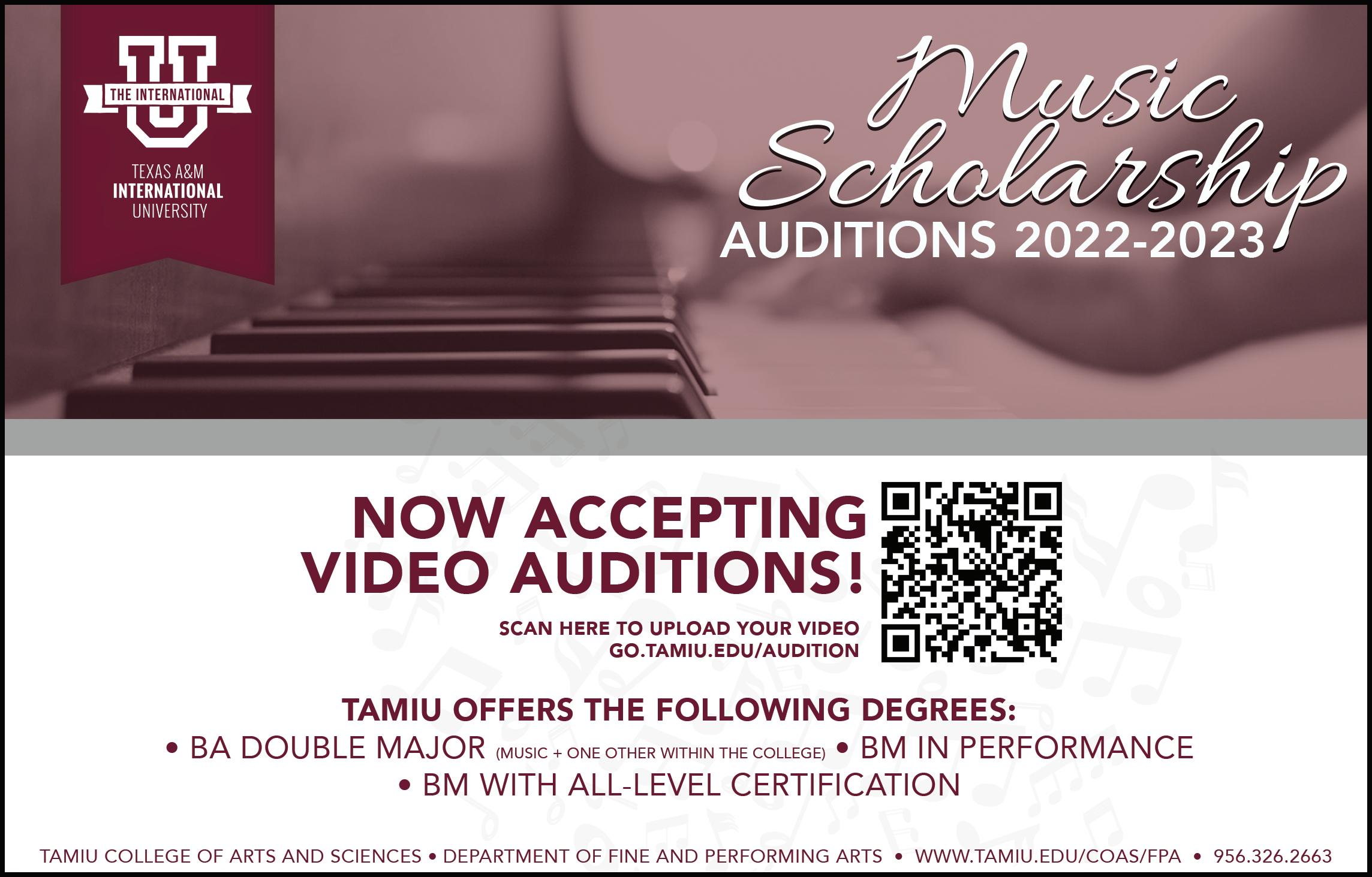
Each year, get to know your new ensemble. It may be made up of the same kids, which can be especially true in high school. However, these students learned, grew, and matured. They are not the same, and thus your ensemble is not the same.
The strengths and weaknesses of your ensemble have now changed as well.
Don’t be afraid to stir the pot—change is scary, but it is good. Change helps keep things fresh. Our goal is to keep our stu dents in our program throughout their school years. If we grow stale in our teach ing methods, our students will become bored. Change will help keep learning exciting for our students, and this excite ment is motivational for them and us.
Don’t forget to remind your students that they can, and it starts with you believ ing that they can. Then work hard every day to make self-talk a positive aspect of your students’ experience and yours. 0
Mirelle Acuña is the head orchestra direc tor at Edinburg HS and lead orchestra teacher for Edinburg CISD. She is a past Region XV Mariachi Chair and past President for Texas Association of Mariachi Educators.
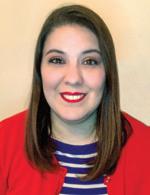
35Southwestern Musician | November 2022
Inspect What You Expect
In our role, we must always follow up on our expectations and be clear in exactly what those expectations are.
As a choir director, I have seen the inspect what you expect principle play out numer ous times. If I write down a list of expec tations or pieces to be practiced for the week but tell students I won’t be listening to one of the songs, guess which one won’t be practiced! It’s human nature for the students to procrastinate working on a piece, knowing it won’t be covered in class. Given that, in our role, we must always follow up on our expectations and be clear in exactly what those expectations are.
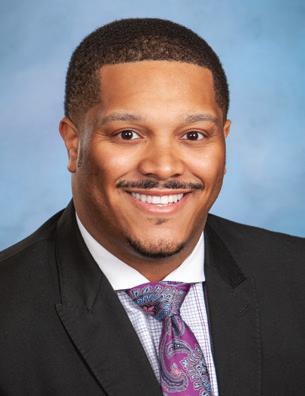
During this time of the year, it is easy to feel the stress to teach songs, not skills. While rote learning is important and has its place, singers should, of course, be able to hear and repeat pitches quickly. Still, too often, rote learning becomes the norm. Being able to read music encour ages the singers to be self-reliant, so we need to teach them the skills that lead to that musical independence.
Music literacy begins with a good foundation, and the strategies you put in place for your program are that foundation’s first building blocks. It may feel like you’re taking the long road, but the result is worth the commitment, and you will ultimately save time. Remember—teach skills, not songs!
November—Renew
November—Make
November
January
January
February
TMEA Vocal Vice-President JESSE CANNON II
your membership and register for the convention.
your TMEA convention hotel reservation.
1 —TMEA scholarship online application deadline.
7—Area Vocal and Band auditions.
19 —TMEA convention early registration deadline.
8–11 —TMEA Clinic/Convention in San Antonio. MARK YOUR CALENDAR check www.tmea .org for updates 36 Southwestern Musician November 2022
2023 Clinic/Convention Update
There are many opportunities for you to serve to ensure the 2023 TMEA Clinic/ Convention is the success we all anticipate. Clorese Porter, our fantastic Convention Coordinator, is currently faced with a defi cit of volunteers. To register as a volunteer and indicate your areas of interest, go to www.tmea.org/vocalvolunteer. Thank you in advance! Volunteers are a critical part of our convention living up to its reputation (and remaining affordable!).
The November issue is one of my favor ites because I get to introduce the first half of our Vocal Division Invited Choirs for our convention. Enjoy reading about these high-quality choirs and their dedicated directors and look to the January issue for the remainder.
Next month, this magazine will feature the preview of the full convention sched ule, allowing you to start charting out your best convention experience, filled with learning and inspiration!
If you haven’t registered to attend or secured your housing, wait no longer! Go to www.tmea.org/convention for event details and to register. Be sure to register early to pay the lowest fee.
A.C. New MS Varsity Tenor-Bass Choir, Mesquite ISD
A.C. New MS Varsity Tenor-Bass Choir began in 2015 as the school’s only tenorbass choir, with 11 students under the direction of Melody Villegas. Through unwavering trust and student leader ship, it has expanded to include over 100 students across 3 performing ensembles. Varsity Tenor-Bass Choir is now an audi tioned group of 45 students, earning con sistent UIL Sweepstakes awards and place ments in Mesquite ISD All-City Choir and TMEA Region 3 All-Region Choirs. Like all 260 students in the A.C. New Knight Choir program, Varsity Tenor-Bass singers participate in band, orchestra, theatre, art, sports, advanced classes, AVID, and clubs across campus. A.C. New Middle School’s core values of kinship, chivalry, and valor are woven into every aspect of the Varsity Tenor-Bass Choir.
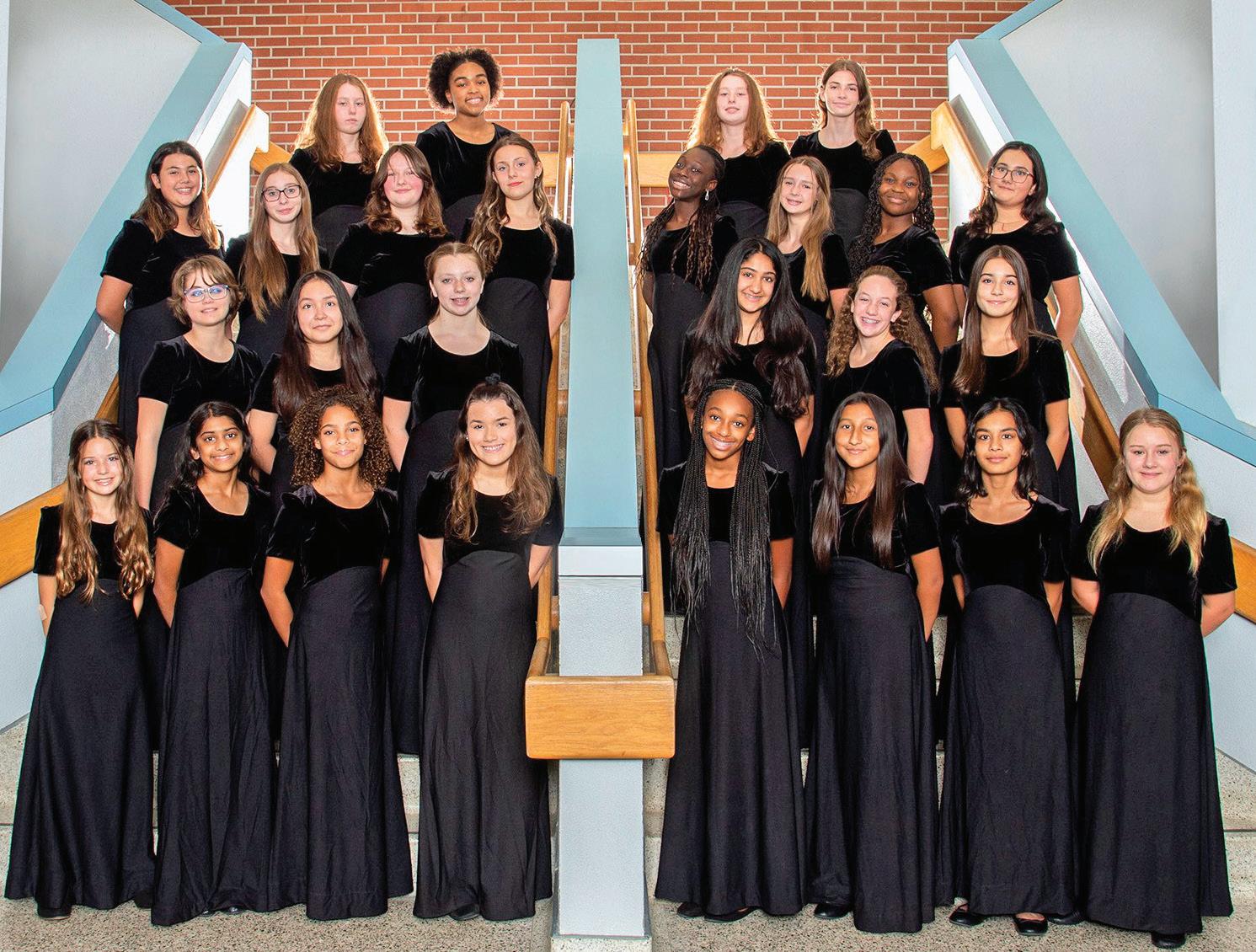
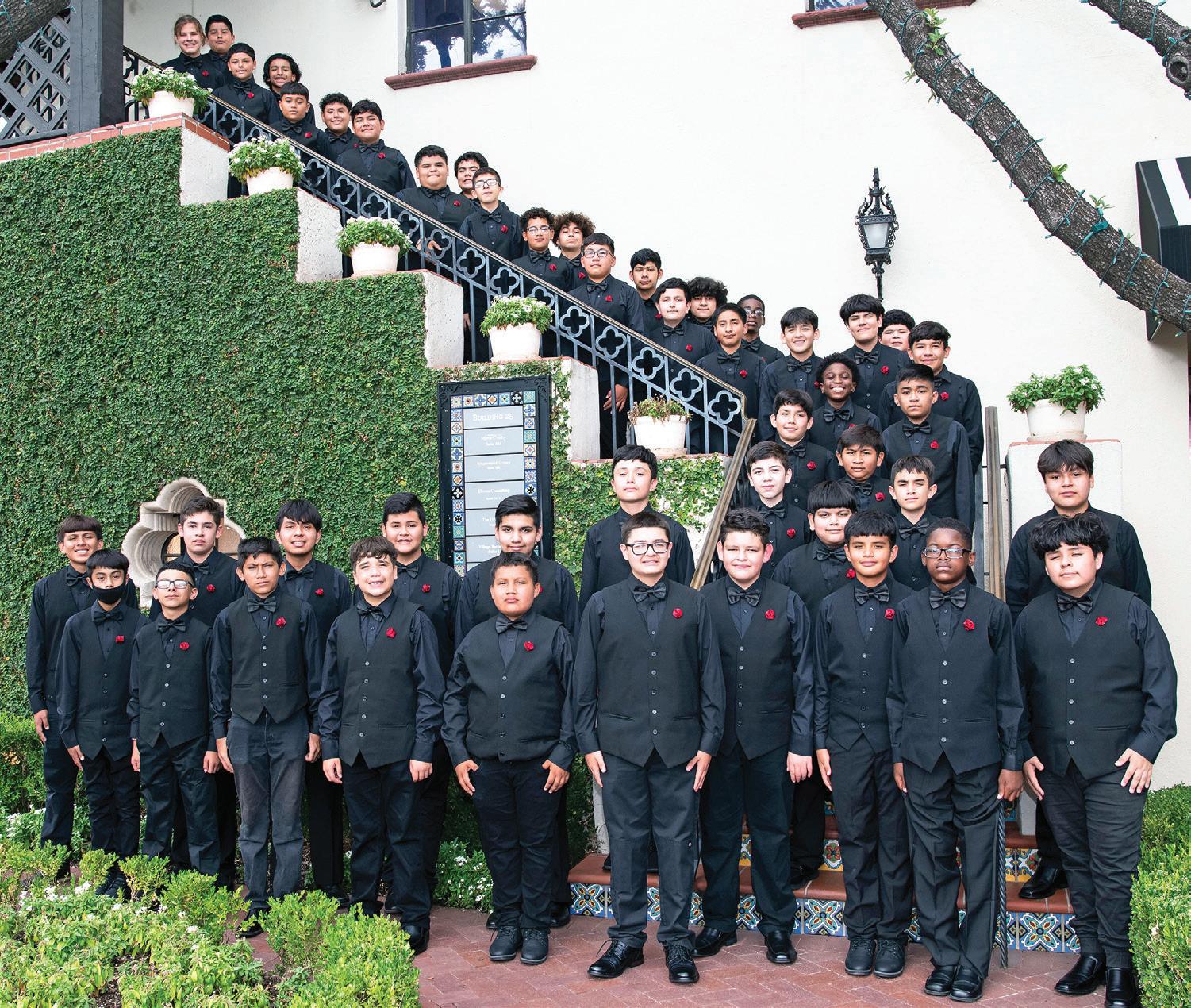
Kleb Intermediate Chamber Choir, Klein ISD
The Chamber Choir is an audi tioned treble ensemble with 28 mem bers at Kleb Intermediate, a public
campus for 6th–8th grades in Klein ISD, located in northwest Houston. The choir has been under the direction of Kelly McDonald since 2015. In that time, they have earned Commended Awards from the Foundation for Music Education, received the highest ratings at UIL Concert and Sightreading, and are the 2021 Middle School Grand Champions of the Kemah
Choir Days competition. Students in the Chamber Choir are well-rounded aca demically and active throughout the cam pus, including orchestra, theatre, soccer, cheer, swim, volleyball, basketball, and track & field. The goal of Kleb Choir is to build young artists who are well-rounded, empathic people with a lifelong love of singing.
A.C. New MS Varsity Tenor-Bass Choir
Kleb Intermediate Chamber Choir
37Southwestern Musician | November 2022
Vandegrift HS Chorale
Tenor-Bass Choir, Leander ISD
The Chorale Tenor-Bass Choir of Vandegrift HS is a part of the school’s choir program that consists of 150 singers. There are eight choirs in the Viper Choir program, six of which participate in UIL Concert & Sightreading Evaluation. The Chorale Tenor-Bass Choir has earned UIL Sweepstakes awards for the last eight years! This ensemble is made up of 30 singers, mostly juniors and seniors, many of whom are involved in private lessons, All-State auditions, and solo contests throughout the school year. The Chorale Tenor-Bass Choir is directed by Michael Zook and Emily Chandler. While other Vandegrift choirs have previously been invited by TMEA to perform, this is the Chorale Tenor-Bass Choir’s premiere invitation. We are thrilled to be sharing our music with the convention attendees in February!
A.C. Jones HS Varsity Mixed Choir, Beeville ISD
A.C. Jones HS is a 4A high school in South Texas with an enrollment of approx

imately 1,040 students in grades 9–12. The Varsity Mixed Choir, under the direction of Cesar Galaviz, consists of 46 members, who also participate in band, football, baseball, softball, tennis, golf, volleyball, and soccer. Most of the junior and senior Mixed Choir members are also part of National Honor Society. A.C. Jones choirs consistently earn UIL Sweepstakes awards and send about 25 students to TSSEC annu ally. Since 2016 the program has produced over 200 All-Region Choir members, 70 Area candidates, and 21 All-State Choir members. This past summer, select choris ters performed at the Battleship Memorial at Pearl Harbor in Hawaii. This will mark the first TMEA invitational performance for the A.C. Jones Choral Program.
Allen HS Varsity Treble Choir, Allen ISD
The Allen HS Varsity Treble Choir, directed by Kathryn Zetterstrom, is the premier treble ensemble at Allen HS and is beautifully and complexly diverse. The choir includes sophomores, juniors, and seniors who all possess an incredible work
ethic, commitment to academic integrity and eligibility, and enormously joyful hearts for making and sharing beautiful music. The students in this choir represent the most advanced treble singers in a pro gram of over 400 students and are mem bers of Allen HS Varsity Mixed Chorale or Eagle Select, the varsity treble chorus. They rehearse in their respective choir class periods as well as commit to regu larly scheduled afterschool rehearsals, and they consistently receive UIL Sweepstakes awards.
Texas Christian University Concert Chorale
The TCU Concert Chorale, under the direction of Christopher Aspaas, is the University’s flagship choral ensemble. The Chorale is committed to the explora tion and performance of the finest reper toire from the 16th century to today. One of five choral ensembles in the School of Music, the Chorale is a highly-select, auditioned group of 45 singers, includ ing music majors as well as students from other academic disciplines. All members of the Chorale recognize the important role of the arts in their personal and pro fessional development. Since 2015, the Chorale has performed at the 2018 TMEA Clinic/Convention, the 2020 SWACDA Conference, and the 2022 Biannual Conference of the National Collegiate Choral Organization. The Chorale will be performing at the 2023 ACDA National Conference.
0
TEXAS ARTS EDUCATION CAMPAIGN
txartsed.org/join-us
Vandegrift HS Chorale
Tenor-Bass
Choir
38 Southwestern Musician November 2022
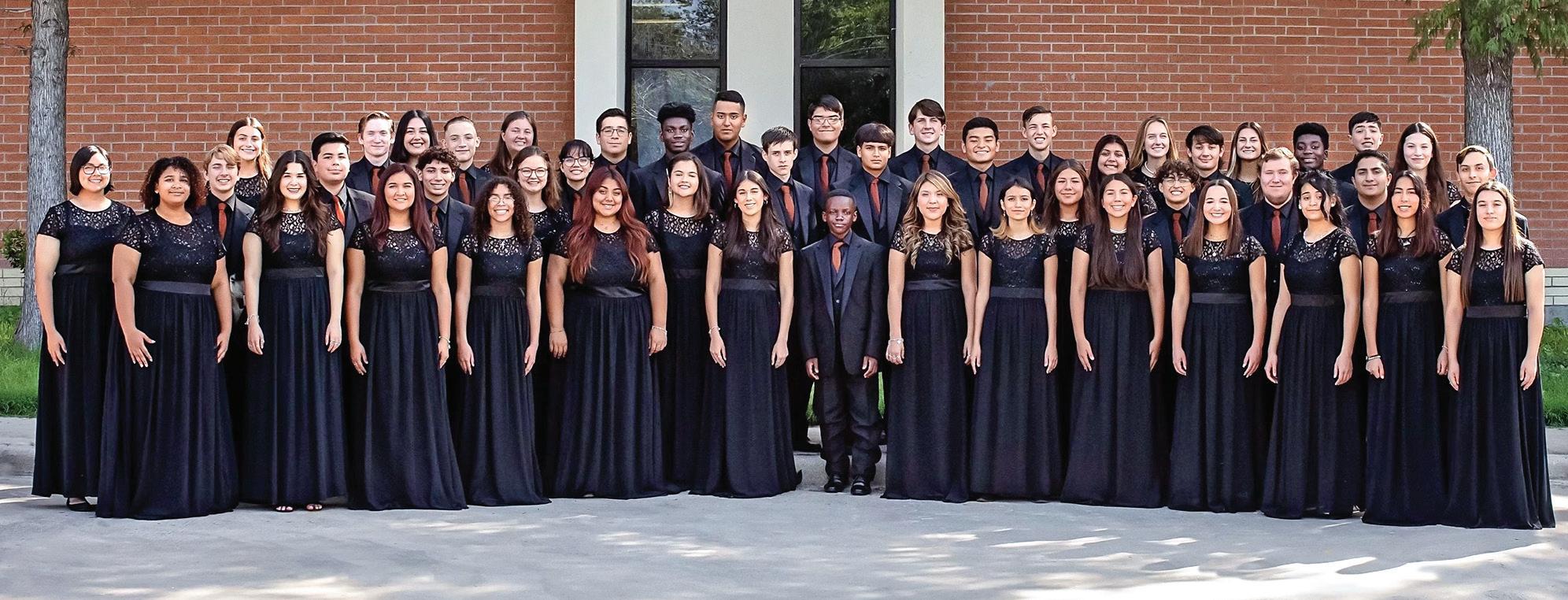
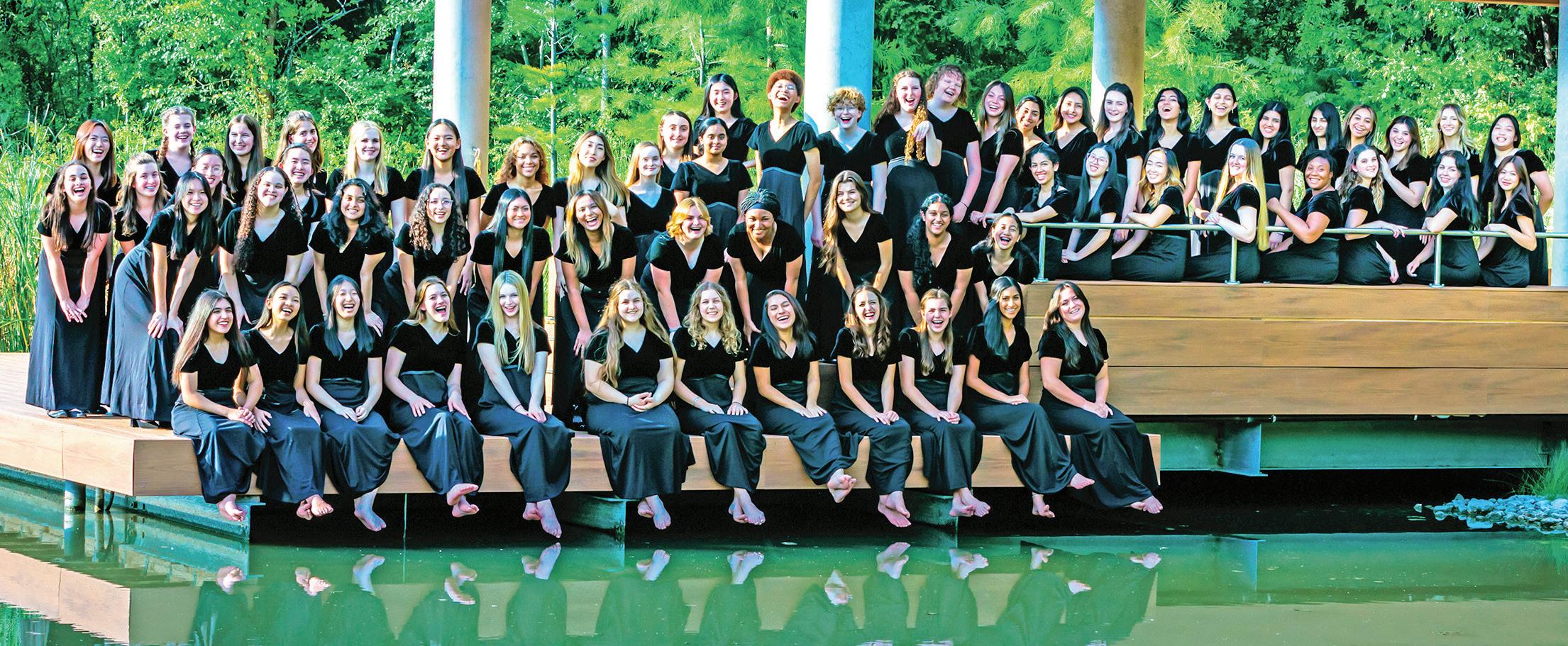
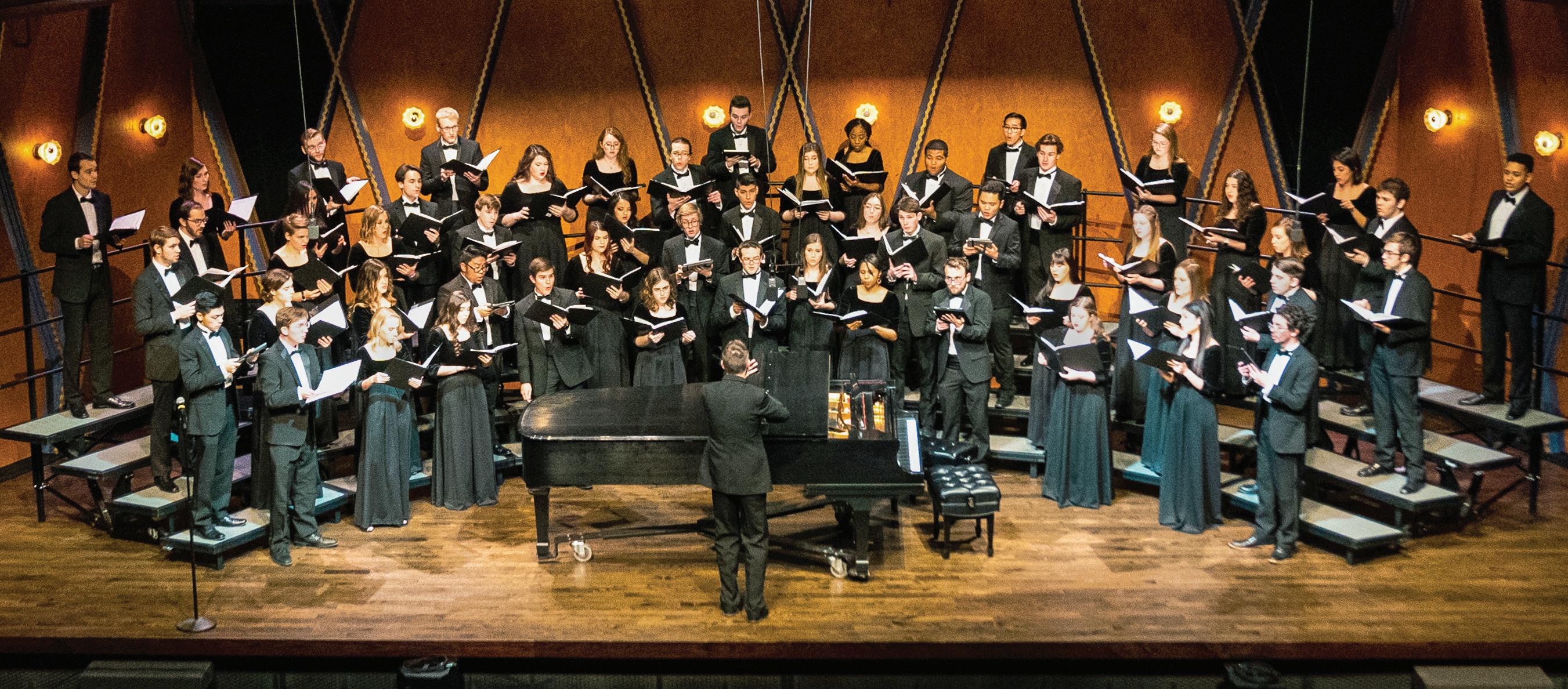 A.C. Jones HS Varsity Mixed Choir
Allen HS Varsity Treble Choir
Texas Christian University Concert Chorale
A.C. Jones HS Varsity Mixed Choir
Allen HS Varsity Treble Choir
Texas Christian University Concert Chorale
39Southwestern Musician | November 2022
PRESCRIPTIVE FEEDBACK A GPS for the Developing Choir
By Sandy P. Hinkley
One of the most important aspects of music teaching lies in how we deliver feedback to our students. As with most teaching behaviors, delivering feedback is a skill—one that must be learned, practiced, and refined. Music researchers tell us that the effective delivery of feedback leads to more productive rehearsals and that students identify teacher feedback as a strong motivational factor within their program. Given these findings, it seems a worthy investment of time to examine our feedback practices.
While the focus of this article is based on my experience with choral ensembles, the principles about prescriptive feedback apply across all musical disciplines. If you conduct bands or orchestras, I invite you to read on and consider how these strategies may also benefit your instrumental ensembles.
Feedback in the choral classroom can take on several forms, ranging from vocal modeling and demonstrations to verbal descriptions and metaphorical imagery. While some strategies may work with only a certain ensemble or singer, other strategies correlate with the level of your students’ experience. More specifically, skilled singers usually respond to various forms of feedback, whereas less experienced singers typically need more precise directives.
Prescriptive feedback is a type of concrete instruc tion that provides information in a way that reduces developing singers’ chance of subjective interpretation. I have found it effec tive with choirs of any age, skill set, or voicing, particularly in building vocal tone. To be effective, prescriptive feedback must work in tandem with other types of feedback within a teaching pattern cycle. With this in mind, consider the following detail about the structure and criteria of this feedback.
Characteristics of Effective Feedback
Within the music classroom, researchers have found that feed back is most effective when delivered as part of a sequential teach ing pattern cycle: (1) teacher presentation of a task, (2) student performance of the task, and (3) teacher feedback on student performance. Within this cycle, feedback is most effective when
it is immediate, is related to the presented task, and provides spe cific details on student performance. As prescriptive feedback is supplemental to these criteria (immediate, related, and specific), it is important to be aware of common pitfalls in feedback delivery before its implementation.
Common Issues in Feedback Delivery
As we know, teaching music is highly complex; it is therefore understandable if some of our teaching pattern cycles are less effective than others. Therefore, consider how you might mitigate the following common issues in feedback delivery:
No feedback given: As music educators, we are continually pro cessing a large amount of information. Consequently, we might pivot to a new idea or section in the music without first providing feedback to the presented task at hand. In these instances, musi cians will likely assume their performance has met our standard, when in fact this may not be the case.
Delayed feedback: Similar to the above, sometimes we move on without providing feedback, only to offer a delayed comment later in rehearsal.
40 Southwestern Musician November 2022
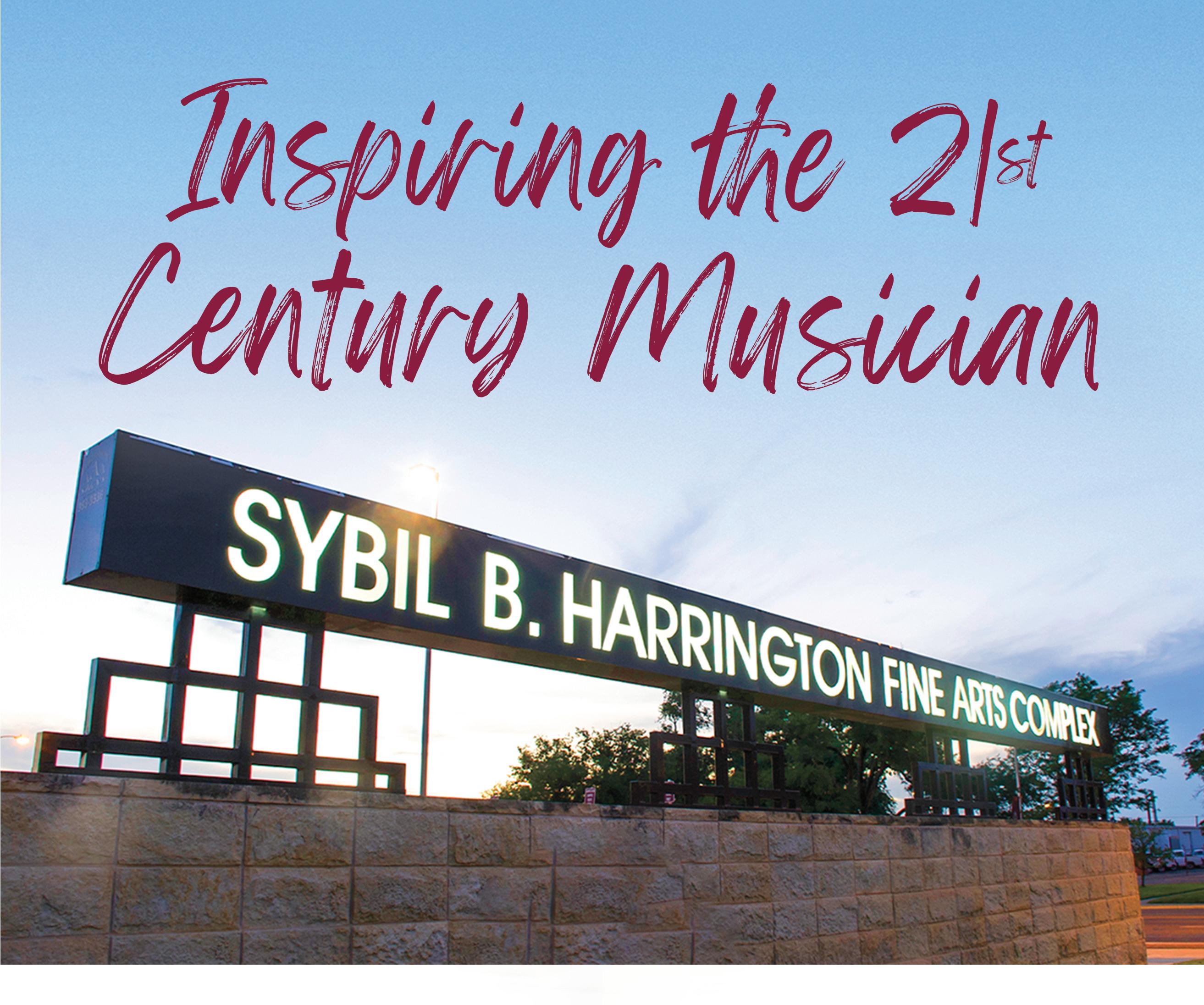
This delay reduces the magnitude of our comments and decreases musicians’ retention of this information since time has passed fol lowing their performance.
No academic task given: Another common occurrence in rehearsal is when we do not give our students an academic task or focus of attention. When students receive only a directive of where to begin, our feedback has no academic musical concept(s) in which to relate. Example:
• Directive only: “Please start at measure 81.”
• Directive/Academic Task: “Please start at measure 81, making sure to observe all slurs.”
Approval error: It may also be habitual for us to respond with generic feedback such as “good” or “excellent.” These filler words
often contradict student performance, which then functions as what is called an approval error.
The bait and switch: Each time our students perform, we usu ally hear several issues needing attention. Consequently, it is not uncommon for us to get distracted and offer comments unrelated to the initial task. This habit is more prevalent with experienced teachers, whose listening and evaluation skills are highly devel oped. Example:
• Teacher: “Please begin at measure 32, with attention given to the clarity of triplets.”
• [Choir sings with improved rhythmic integrity.]
• Teacher: “Altos, you missed the mi la skip again in measure 44.”
What Is Prescriptive Feedback?
Although the use of immediate, related, and specific feedback increases its efficacy, fulfilling these characteristics may not be enough for our developing musicians. Consider the following example:
• Teacher : “Please begin at measure 70, with more attention given to precise intonation.”
• [Choir sings with improved pitch accuracy, but the basses are still flat in measure 92.]
• Teacher : “Mostly improved, but basses are still under pitch in measure 92.”
While the above teaching pattern cycle is complete and the teacher has provided important specific information, it begs the question of whether the basses know how to fix their intonation. Some may—but more likely, most will not. Less experienced singers need more guidance and typically respond more consistently when we provide information on what to improve (specific feedback), and how to make it happen (pre scriptive feedback). In essence, prescriptive feedback provides a detailed road map and serves as a GPS or navigation tool for devel oping choirs. What makes prescriptive feed back unique is that it provides information in the form of physical adjustments and/or behavioral actions. In combination, the use of immediate, related, specific, and prescrip tive feedback increases the likelihood that sound and/or behavior will change.
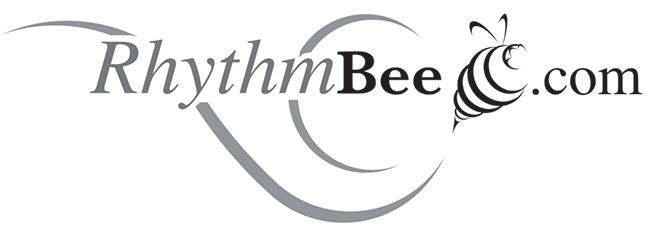
Prescriptive Feedback in Action
Referencing the example in the previous section—there are a number of approaches a music educator could take to provide pre scriptive feedback, depending on the situa tion. The students’ flat intonation could be caused by a lack of energy or under-singing,
Instruments Accessories Rental Repair 1849 University Ave. Berkeley, Ca 94703 800-322-6263 510-845-7178 www.forrestsmusic.com Your one stop shop for all things double reed since 1944 42 Southwestern Musician November 2022
in which case asking them to move their air faster would be appro priate. Another potential cause for the issue might be collapsed posture, in which case singers could be reminded to elongate the spine, roll the shoulders back/down, and lift/expand the rib cage. Yet another reason might be a lack of space in the mouth, in which case a prompt to release the jaw, separate the teeth, and/or open the lips vertically would be fitting. Notice that each of these prompts involve behavioral actions, most of which are easily observable by the teacher.
To determine the prescriptive feedback appropriate to the moment, look and listen for the cause of the issues and decon struct the needed physical or behavior changes accordingly. Here are some additional examples to further demonstrate the concept of prescriptive feedback:
Issue Prescriptive Feedback
Chewing the retroflex r in words like ever or never
Moving too quickly to the second vowel sound of a diphthong in words like I or sigh.
Closing too quickly to the m sound in words such as some or amen
Sound is too dark on an ee [i] vowel.
Relax the tongue, lower jaw, and lips on the second syllable to create a schwa [ə].
Keep the tongue in a lowered position as long as possible, while shaping the primary vowel ah [ɑ] with the lips.
Keep the lips open as long as possible, resist the urge to curl into the m shape.
Open the lips to create a more open vowel, expose the front teeth, use a higher tongue position.
deconstruct the causes of commonly observed issues. Then, gradu ally begin to implement prescriptive feedback, taking note of the feedback that results in the most change in sound and/or behavior. Your bank of prescriptive feedback strategies will increase with time and, with purposeful self-assessment, can become an integral part of instruction. As singing is a highly complex process, pre scriptive feedback is only one of many strategies to address vocal technique. I encourage you to explore this option and enjoy the journey as you learn more about your singers. 0
Sandy P. Hinkley is the Coordinator of Music Education and Associate Director of Choral Activities at Sam Houston State University.

Resources
Grimland, F. (2005). Characteristics of teacher-directed model ing in high school choral rehearsals. Update: Applications of Research in Music Education, 24(1), 5-14.
Madsen, C. H., & Madsen, C. K. (2016). Teaching discipline: Behavioral principles toward a positive approach, 5th edition. Raleigh, NC: Contemporary Publishing Company of Raleigh, Inc.
Nápoles, J., & Vázquez-Ramos, A. M. (2013). Perceptions of time spent in teacher talk: A comparison among self-estimates, peer estimates, and actual time. Journal of Research in Music Education, 60, 452–461.
Stamer, R. A. (2009). Choral student perceptions of effective moti vation strategies. Update: Applications of Research in Music Education, 28(1) 25-32.
Basses singing a pitch above middle C in lower register, which is tense and/or flat.
Switch muscle sets to access the falsetto register.
It is also worth noting that the use of prescriptive feedback and instruction is beneficial in establishing clear classroom expectations. Another way of thinking of this is translating ideas to behaviors. Rather than asking students to be on time with mate rials, prompt them to be in their assigned seat with their chorus folder and a working pencil by the tardy bell. Providing students with observable and measurable guidelines increases the chances of them meeting our expectations, thus increasing rehearsal efficiency.
Improving the Delivery of Feedback
As with all teaching behaviors, improvement begins with awareness. Regardless of how many years we have been in the classroom, it is important to continually monitor our instruction for the benefit of our students. Research indicates that self-assess ment through video analysis is one way to improve our teaching practices. Fortunately, we have a number of viable options from our pandemic experiences in which to video-record our teach ing. These recordings do not have to be long; a few minutes in each rehearsal can yield meaningful information. Set aside a few minutes at the end of the week to view these segments, specifically looking for ineffective habits in your teaching cycles. Use this information to improve your feedback delivery while you begin to
Yarbrough, C., & Price, H. E. (1989). Sequential patterns of instruc tion in music. Journal of Research in Music Education, 37(3), 179-187.
TMEA
Distinguished Administrator Award
Through this recognition program, TMEA has the opportunity at the state level to thank these individuals for their dedication and support. At the local level, this offers you another opportunity to share your success story with the community. Nominate your outstanding campus or district upper-level school administrator by completing an online nomination. Since this program was launched, TMEA has recognized over 350 administrators across our state.
www.tmea.org/ adminaward 43Southwestern Musician | November 2022
TMEA Elementary Vice-President
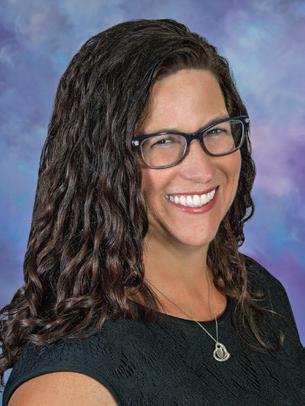 KATHERINE JOHNS
KATHERINE JOHNS
Doing the Best Job for Our Students
Regardless of how often we get to teach our students, we are charged with delivering highquality music education and instilling a lifelong love of music.
It was the seventh day of the 2022 school year, and I sat staring at my computer, pondering the second lesson of the year. The first lesson was easy: sing, play games, review known rhyth mic and melodic concepts for second through fifth, and create seating charts. So, why, after teaching 25+ years, was I struggling to create the next lesson?
Because of the size of our school, a new class had been added to the rotation—STEM. After having taught for years with a six-day rotation, I was moving to an eight-day rotation. Instead of teaching students about once a week, it would now be about a week and a half between lessons. On that day of planning for lesson two, I became overwhelmed by the new situation. I did not know what my year was going to look like or what the results would be.
So, I reached out on Facebook to my elementary music teacher friends and asked them how often they see their students. I received 25 differ ent answers—everything from twice weekly and everyone on Fridays to two days in a row but not again for several weeks. And then there is the variance in number of students per class. Some see one class at a time while others might teach one class plus a segment of another or even two complete classes at once.
Many of us face challenges rooted in class schedules that seem to have been built with little consideration or appreciation for what it takes to deliver high-quality music education to all students. But what can we do
November—Renew your membership and register for the convention.
November—Make your TMEA convention hotel reservation.
November 1 —TMEA scholarship online application deadline.
January 19 —TMEA convention early registration deadline.
February 8–11 —TMEA Clinic/Convention in San Antonio.
MARK YOUR CALENDAR check www.tmea .org for updates 44 Southwestern Musician November 2022
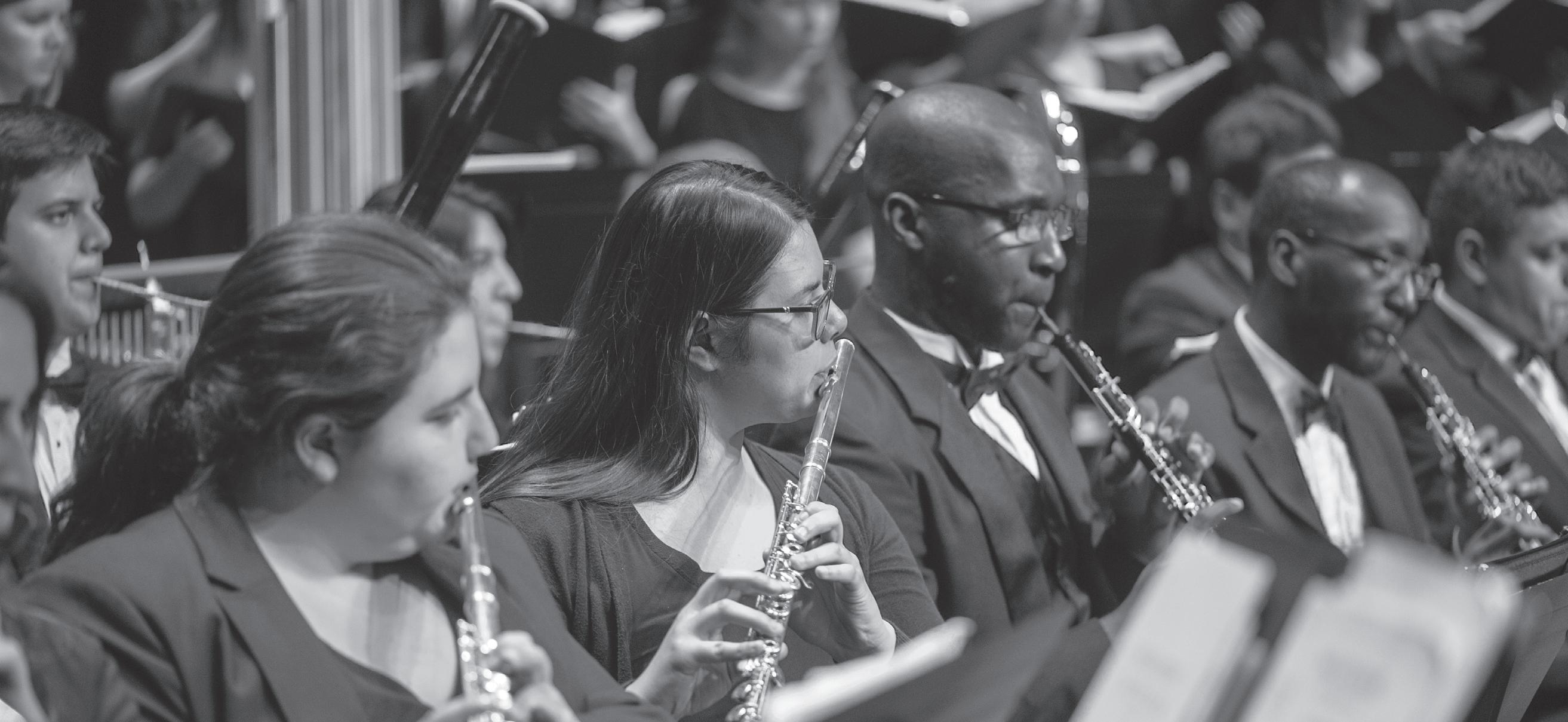
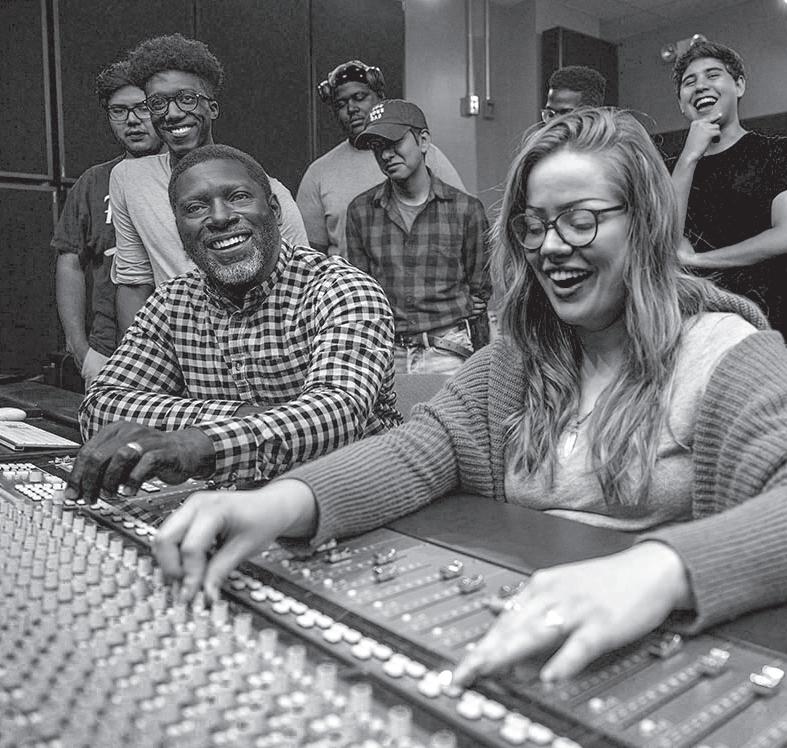
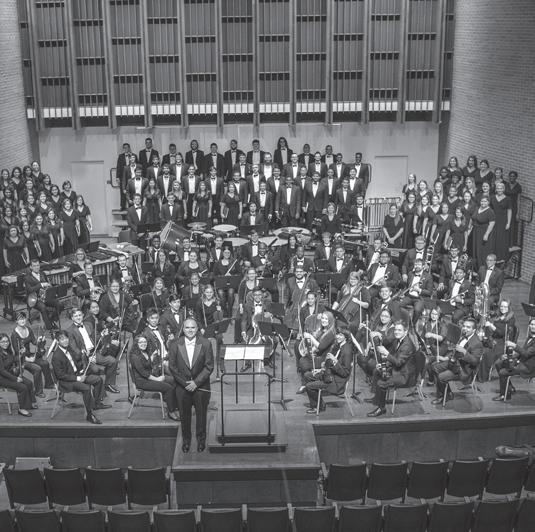
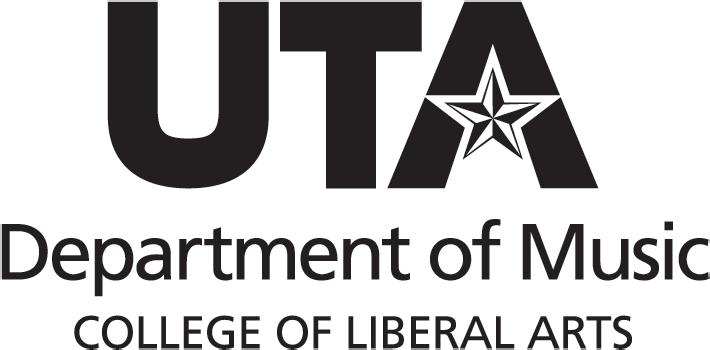
when that aspect of our work is not within our control? We keep doing the best job for our students.
I decided to be happy with how I will teach my students in my current situa tion. I slowed down—way down. Instead of spending three to four lessons at the begin ning of the year reviewing before moving on to new music concepts, I am now spend ing five or six. It depends on the grade level and what I need them to know before push ing on. Does our school’s new eight-day rotation allow me to reach the end-of-year concepts? Hopefully so. Regardless, my students will feel confident in what they know and will have fun doing it.
TMEA Clinic/Convention Update
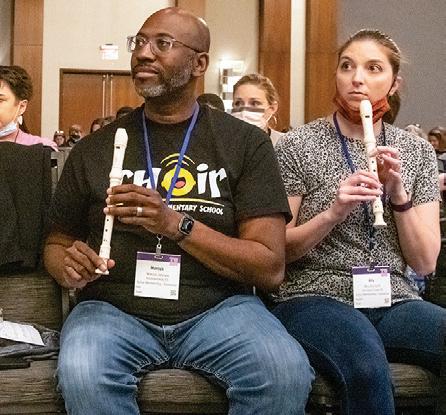


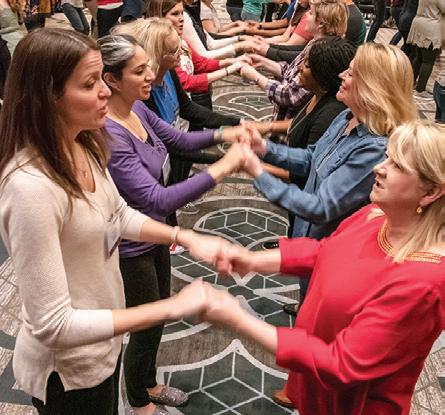
Have you registered for the convention and notified your administrator of your plans to attend this incredible opportunity for specialized professional development? There are over 50 hours of clinics and concerts specifically targeted to elemen tary music educators! As a reminder, you can share www.tmea.org/2023clinics with your administrator, so they can review the list of clinics available to you.
When you review the clinic schedule, also look for clinics listed as Technology, General Membership, and College (the College Division hosts clinics that are
applicable to multiple divisions, including ours).
Don’t wait to get approval to attend, and if you haven’t yet, be sure to secure a hotel reservation. In our reservation sys tem, if no rooms are available (which is now likely), a message will display with the address of an alternate housing website you may utilize. You can also continue to check TMEA’s reservation system in the event that another member cancels their room and it becomes available.
In this month’s column, I’m pleased to introduce a few of the Elementary Division Invited Ensembles you will have the opportunity to enjoy at our upcoming convention. The remainder are scheduled for inclusion in the January issue (next month, you’ll receive the full preview of the 2023 TMEA Clinic/Convention in this magazine). I sincerely hope you’ll make plans now to support these students and their dedicated directors through your attendance at their performances.
Groves Percussion, Humble ISD
In 2017, Groves Elementary became the 28th school to open its doors to Humble ISD students in K–5. Founded in 2018, Groves Percussion began to meet with the goal of performing during school pep rally events to bring a sense of community to
a fast-growing campus. With over 1,100 students and staff, Groves Elementary serves as the main stage for this coed by-invitation ensemble of 15 students in grades 4–5. Under the direction of Pedro Huertas, Groves Percussion has performed in other local events, such as the Humble ISD’s Fine Arts Festival and the Incredible Kids Day. Challenging their musical abili ties on pitched and unpitched percussion instruments, improvisation, and group composition, Groves Percussion continues to encourage and prepare students to fur ther develop their musicianship skills in the secondary grades.
Bransford Orff Ensemble, Grapevine-Colleyville ISD
The Bransford Elementary Orff Ensemble is proud to represent GrapevineColleyville ISD at the 2023 TMEA Clinic/ Convention. Under the direction of Ashley Benson, the Bransford Orff Ensemble is a non-auditioned group of 23 fifth-grade students. The group has been performing together since they were fourth graders and rehearses 1–2 days each week.
Bransford Elementary is an arts integra tion campus with 450 preK through fifthgrade students. This is the first time TMEA has invited Bransford Orff Ensemble to perform, and the directors and students are grateful to experience the process of preparing and performing for such an esteemed audience in February.
SingRAE Choir, Alexander Elementary, Katy ISD Students at Roosevelt Alexander Elementary (RAE) enjoy a well-rounded fine arts program. With an involved, mul ticultural community, the program is built on a strong foundation in the choral arts. Many members also participate in arts programs outside school.
The SingRAE Choir is composed of 85–95 fifth-grade students, and this is the choir’s second invitation to perform at a TMEA convention, under the direction of Alyssa Plumb. Since it is a non-auditioned choir, all fifth graders are encouraged to join. The SingRAEs rehearse before school twice weekly, and they perform in cam pus concerts, service trips to sing for the community, and with the junior highs and high schools in their feeder pattern for concerts and events. The choir is also led by RAE music teacher and choir director Jonathan Langan. 0
2023 TMEA CLINIC/CONVENTION February 8–11 • San Antonio • Henry B. González Convention Center There’s no better place to learn & get inspired! Over 50 clinics are hosted by the Elementary Division! Learn new strategies for teaching the TEKS, classroom management, singing games, movement, and more! Enjoy inspiring performances by our Invited Ensembles and get the best deals in the huge exhibit hall! Learn more & register: tmea.org/convention 46 Southwestern Musician November 2022
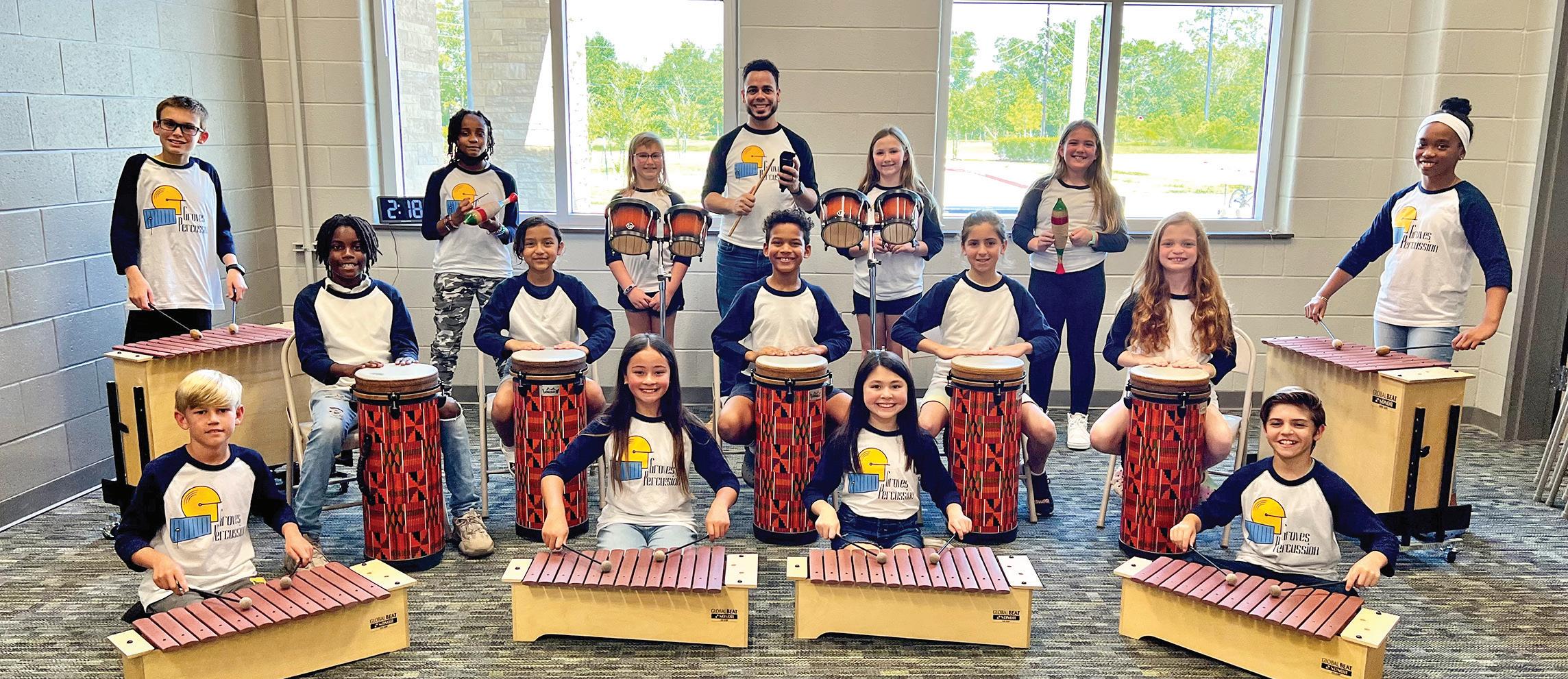
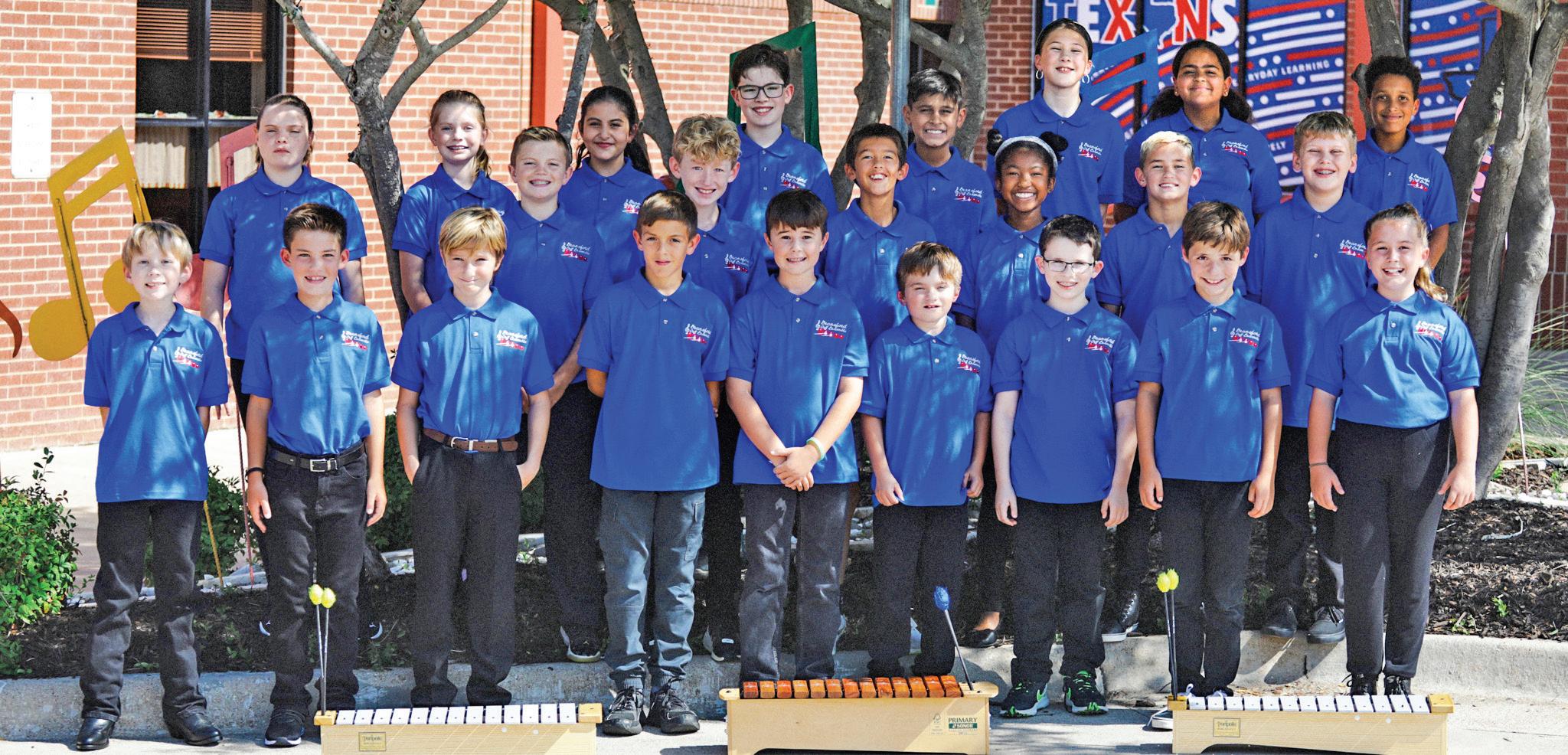
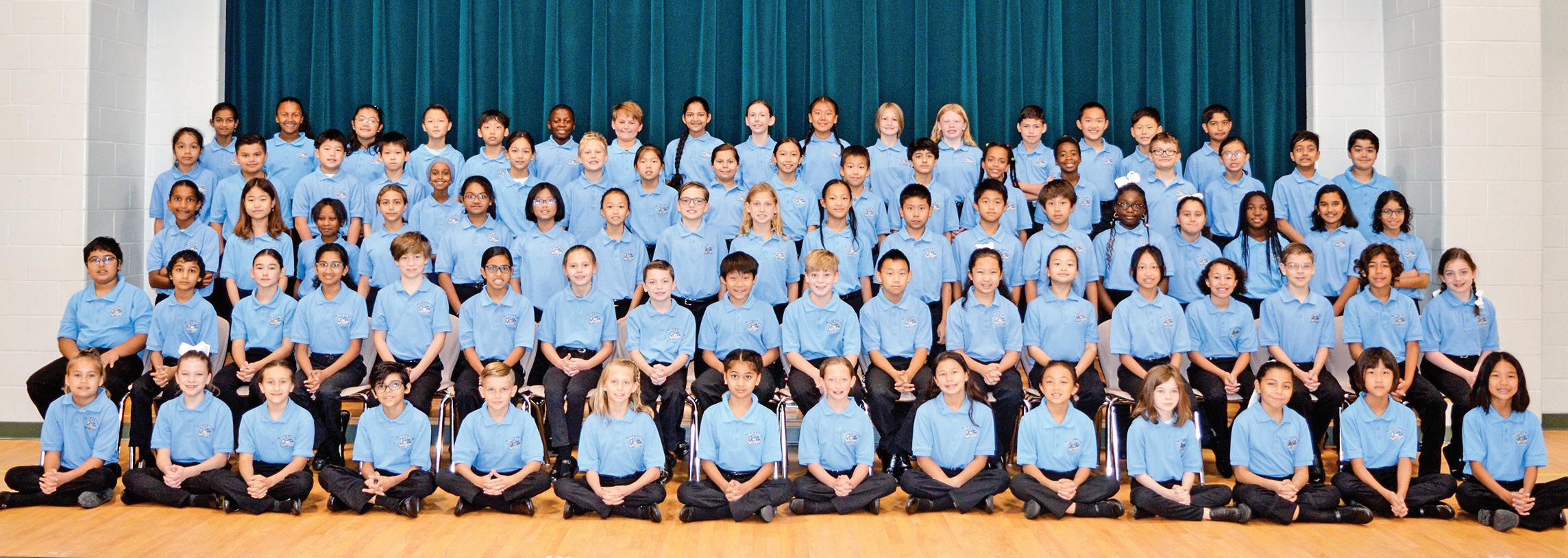 Groves Percussion
Bransford Orff Ensemble
SingRAE Choir
Groves Percussion
Bransford Orff Ensemble
SingRAE Choir
47Southwestern Musician | November 2022
Upper Elementary Music: Strategies for Student Engagement
 By Andrea L. Garcia
By Andrea L. Garcia
As an elementary music educator, it can be challenging to navigate the differentiated approaches that must be taken when teaching a variety of age groups. In a recent informal survey I conducted, elementary music educa tors expressed that fourth- and fifth-grade students were the most challenging to teach. The reasons ranged from different levels of musical knowledge to lack of participation, attitude, behavioral struggles, among others.
While there’s no way to address every challenge we will face, my goal here is to provide key ideas and strategies to aid in relieving some of these stressors. Through the four strategies discussed, my hope is to help upper elementary music teachers feel more confi dent in the classroom with these easily implemented tools.
Learning Instruments and Performing
We know that students love when the instruments come out and they get to play and be creative with them. For my upper elemen tary students, I leveraged this and used instruments significantly more to gain their interest. I also used instruments as an incentive, so students could earn time with them via positive behavior out comes. Especially for students who are becoming insecure about singing, instruments can be a great tool to increase engagement.
While many of us may believe we need Orff instruments to be successful, I don’t believe that’s the case. Less expensive instru ments that can be used in the classroom include ukuleles, xylo phones, Boomwhackers, rhythm instruments, bucket drums, recorders, and ocarinas. Once you have instruments to play, the list is endless on how you can incorporate them in your instruc tion. If you don’t have a class set of instruments, it is the perfect opportunity to practice ensemble play. Many of these instruments can also be created through DIY projects, and this can become
a great opportunity to get the students involved in their own music-making.
Since upper elementary students can learn more difficult skills more quickly than our younger ones, performances should be a vital component. While we usually have our more significant checkpoint performances to work toward, the class can look for ward to performing with more frequent in-class performance opportunities. For example, one of my favorite things to do with my students is a monthly Performance Day or Show and Play Day. I give students the opportunity to showcase music I have been teaching (which also serves as a great assessment), and I balance that with music they may be learning or exploring on their own. Having this balance gives the students more ownership in their learning experience.
Utilizing Games and Challenges
While we know our young learners love games, I find this remains true even for our older fourth and fifth graders. When games can provide a fun and friendly competitive challenge, our students are much more likely to buy in and stay engaged.
My favorite competitive activity to lead is Escape Rooms. In these games, players must complete or solve puzzles to accomplish a goal, such as unlocking a room, or completing a mission. Usually there are codes players must decipher and several tasks involved to complete the mission. As busy teachers, we don’t always have the time to create and build an entire Escape Room. If this is your first time utilizing an Escape Room, I recommend browsing Teachers Pay Teachers online to look for pre-made rooms. This activity offers students a challenge for using new or existing content they know. Not only are they great for informal assessment, but they also promote your students working together in groups. Themed
48 Southwestern Musician November 2022
Escape Rooms are especially popular. For example, themes such as Star Wars (for May the 4th), Halloween, and Among Us have been extremely successful with my students. In making our Escape Rooms, I kept them mission-based and oriented around team work to complete the mission and work on the music tasks. For example, students will need to complete a task as a group before moving on to the next task. The goal is to be the first group to fin ish. When we completed our student reflection at the end of the year, almost every student said Escape Rooms were one of their favorite activities.
Other competitive games that can be used in the music class room that don’t require so many materials or prep work are games such as Poison Rhythm and Poison Solfège. Similar to traditional Simon Says games, the premise of these games is that students must copy the patterns (either rhythmic or solfège), but they can not copy the poison pattern that has been predetermined and shared prior to starting the game. This can be used as an elimina tion game, or just for fun!
When you’re worried about the time it will take to create these kinds of activities, look back at the songs that your students are already learning. Be creative and see how you can transition that song into a game or a fun exercise that will allow them to continue practicing the skills you are teaching in a new and fun way. This is also a great opportunity for reusing and revisiting older songs.
Additionally, one of my favorite ways of repurposing material is using old board games and making them music-related in some way. I’ve enjoyed repurposing Jenga, Candy Land, and more. If you aren’t sure you have the time to repurpose board games, ask the students to create it with you! This is also a great activity for centers in your classroom.
Utilizing Technology
Especially after teaching through the COVID-19 pandemic, I imagine we have all increased our incorporation of technology in our classrooms. That said, every school and classroom is different in the amount of technology we have access to, and the quality of that technology. If your district doesn’t already subscribe to a curriculum provider, I would strongly consider writing a letter to your administration describing the necessity for this resource. This is especially important if you are a new teacher who needs extra assistance in lesson planning and curriculum building. MusicplayOnline and QuaverMusic are two popular platforms that could be considered. In addition, PBS Learning Media has great lessons and videos on their website that can also be con nected to other academic disciplines.
Using platforms such as Kahoot! and JeopardyLabs can also benefit your classroom. I have utilized Kahoot! as designed, where students have their own devices on which to answer questions that are being projected on my screen. I have also created my own ver sion, where I cast the questions to the projector and used elements in my room as the Kahoot symbols to answer questions. Students join into small groups, and they had to quickly get to the corre sponding symbol in the room to answer the question. I prefer this to the intended playstyle because it adds movement to my lesson. If you don’t have space though, you could always have students draw out the symbols or use pre-cut shapes.
JeopardyLabs is another a great resource I use in almost every grading cycle. You can customize your own Jeopardy game and students can answer questions as a team to get the most points.
Not only is this reusable for future years, but it is extremely easy to create!
Chrome Music Lab offers a fun way to have students explore and create music. I particularly like Song Maker, where students don’t have to worry about traditional music notation to initially create a song. If you don’t have access to student devices, you can print out the Song Maker grid and have students draw their own. Select a couple to quickly input into your computer, and they can hear their compositions!
Interdisciplinary Projects and Project-Based Learning

Our entire life is interdisciplinary in nature. Yet we can some times get in our music bubble and forget to intentionally integrate other subjects and disciplines into our lessons.
Using celebratory month projects can help keep topics relevant. These can also be an asset when you are lesson and unit planning. When we allow students to use other skills they have in our class room, they can really shine, and we give them the opportunity to build more connections. Create group projects for special events such as Women’s History Month, Hispanic Heritage Month, Lunar New Year, Black History Month, and so on. While most of us include some of that during our lessons, planning a project for students to showcase what they learn through creating a poster or flyer is a great way to let students use other skills in our classroom. In addition, our expertise in world music is diverse. Carnegie Hall Musical Explorers has a great resource online that provides an interactive map, audio and video clips, and lessons to aid in exploring music from different parts of the world and different cultures. If we are new to incorporating more culturally relevant curriculum into our classrooms, this can be a great place to start.
Lastly, I love to plan an end-of-year portfolio project where stu dents show what they’ve learned and get to reflect on the year. This is especially important for fifth graders. This experience and activ ity can stay with them as a takeaway from the year and a memento of their time in your class. Some things to include in their portfo lio is what they learned for the year, their favorite songs, creative pages where they can draw and write out lyrics, and more!
So Now What?
While the strategies covered here aren’t the answer for every challenge we face, I hope they can help you find what works for your students. When you do, you will discover how enjoyable teaching upper elementary can be and how enjoyable the learning experience can be for your students.
As always, the most important thing is providing a safe, fun, and meaningful learning environment for our students. This takes effort and the acknowledgement that we must keep learning and adapting to our diverse classrooms. If we can do this, and humble ourselves in this way, we will deliver a more well-rounded, holistic education for our students.
Resources
0
For links to online resources for upper elementary instruction and more, go to www.tmea.org/upperelementary
Andrea L. Garcia is a Piano and Choir Director with Edgewood ISD in San Antonio.
49Southwestern Musician | November 2022
TMEA College Vice-President
MATTHEW MCINTURF
Preparing Tomorrow’s Professionals
In a time when we need to increase the pool of certified teachers and expand access to diverse communities, justice requires an appropriate and effective certification process.
Atremendous strength of the TMEA College Division is the wide variety of disciplines and musical backgrounds of our mem bers. We have performers, music educa tion professors, conductors, music therapists, music theorists, and administrators willing to contribute to the ongoing conversation focused on providing musical substance and excellent education for stu dents. The tie that binds us is our commitment, and indeed our passion, for the professional preparation of the next generation of musicians and educators. To accomplish this goal, we need the diverse contribution of our colleagues across musical disciplines and the academic community as a whole.
Teacher certification—a topic that has been in the forefront of con cern for the TMEA College Division and the Executive Board, as well as so many members—is only a small subset of the process of professional preparation. Professional testing and certification are under review and have generated much colorful rhetoric and discord in the course of the conversation. It would benefit all parties to look dispassionately at the educational and professional result required. I believe there is much common ground for all constituents who approach the problem with goodwill.
A critically important point is that everyone supports professional licensing and appropriate testing. The state, representing parents and students, has a vested interest in the professional competence of educa tors and the duty to certify teachers and supervise public education.
November—Renew your membership and register for the convention.
November—Make your TMEA convention hotel reservation.
November 1 —TMEA scholarship online application deadline.
January 19 —TMEA convention early registration deadline.
February 8–11 —TMEA Clinic/Convention in San Antonio.
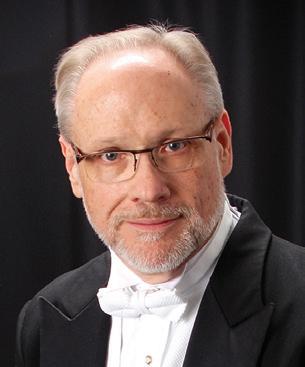
MARK YOUR CALENDAR check www.tmea .org for updates 50 Southwestern Musician November 2022
Music Therapy
Engage in clinical and scholarly studies targeting advanced clinical/therapeutic skills and clinical administration in a retreat model of graduate course delivery. Equivalency option leading to board certification (MT-BC) available.
Music Education
Receive advanced training in instructional pedagogy
curriculum development. Specialized courses in conducting, exceptional learners, music technology, and women in music. Optional Texas music teacher certification track.

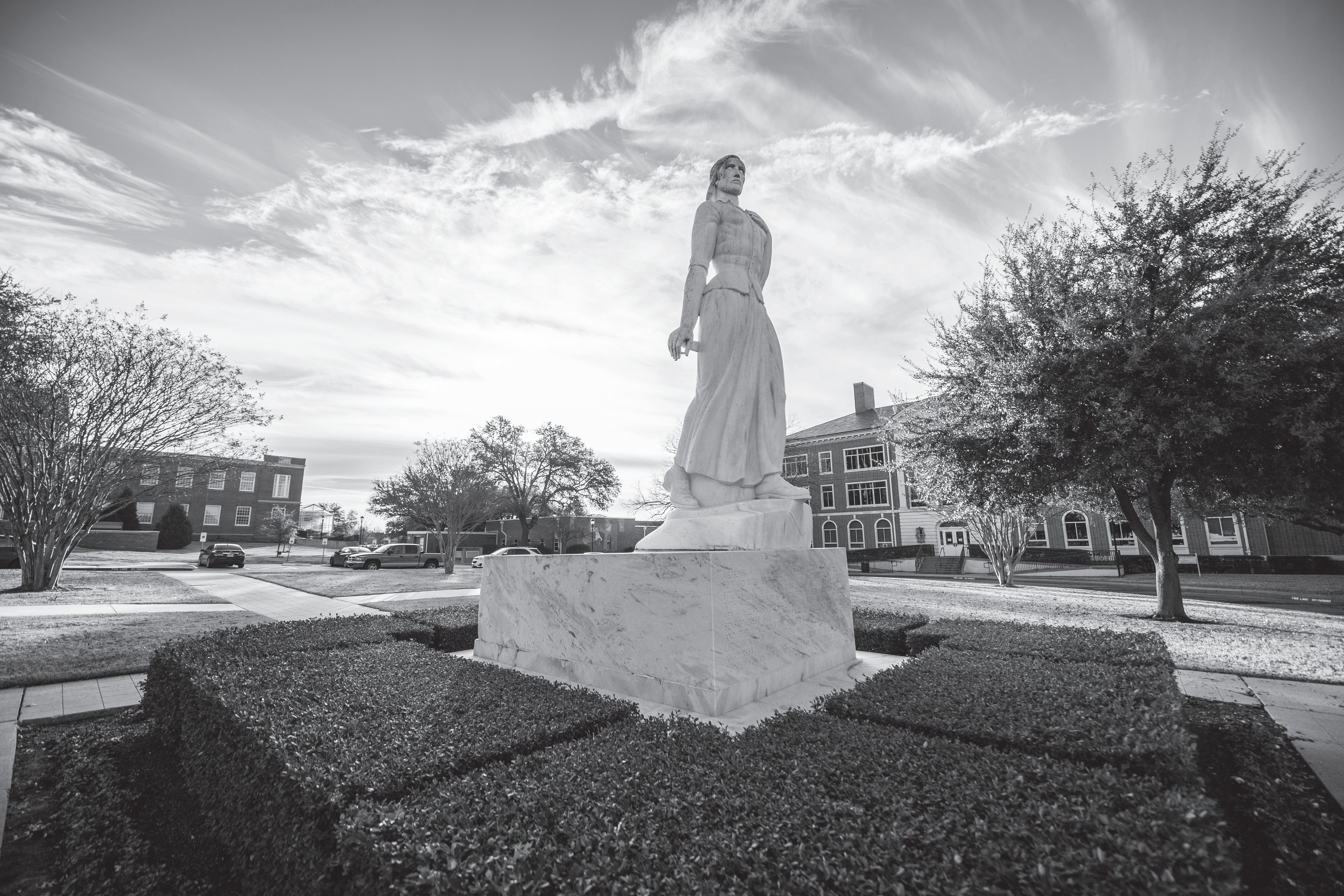
Music Pedagogy
instrumentalists,
Music Performance
and
For
pianists, and vocalists interested in enhancing their knowledge and skills for effective studio teaching in public or private settings. Curriculum focuses on professional development, teaching strategies, literature, and improving performance skills.
Refine and enhance your artistic skills under the mentorship of esteemed faculty with specializations in both performance and teaching. Participate and tour with nationally-recognized ensembles while taking coursework tailored toward career preparation and your individual goals. AUDITIONS FOR 2023 ADMISSION November 19, 2022 January 21, 2023 February 18, 2023 March 11, 2023 April 22, 2023 Visit twu.edu/music/auditions for more information Graduate assistantships, scholarships & out-of-state tuition waivers available GRADUATE STUDIES AT TEXAS WOMAN'S UNIVERSITY
Professional testing, although only one part of this supervisory requirement, is accepted practice across all disciplines requiring licensure. The important ques tions concern how to implement the requirement in an effective, practical, and just manner.
It is also generally agreed that an appropriate examination must reflect the requirements of professional practice reg ulated by the license. We expect a Medical License Examination to evaluate the knowledge and skill of the physician from a broad perspective, and a Medical Board Examination to be focused on a subset of skills for a specific specialty. Both exami nations evaluate professional skills, but the content must be appropriate for the spe cific purpose. As music educators, we are happy to support professional testing that evaluates both general classroom skill and specific knowledge of music and pedagogy.
There is also, across disciplines, a con sensus of how an appropriate test should be developed and constructed. To be effec tive, it must draw on the knowledge and practice of exemplary professionals in the field. It is inconceivable that a bar exami nation or medical licensure would not be designed by attorneys and physicians with many years of successful practice. It would be a logical fallacy to think educational certification should work differently.
In justice, we must acknowledge that teacher certification is significantly differ ent from licensing an attorney or a physi cian. A doctor or lawyer has earned a doc torate, and in many cases engaged in an extended practicum, before attempting the
examination. The high cost of the test to the prospective legal or medical professional may be justified by the enhanced earning potential that is not a consideration for the newly certified teacher. Consequently, a certification examination for teachers that reflects the appropriate academic training and economic reality for the candidates will serve the same purpose as other pro fessional examinations but will be appre ciably different in scope and cost. In a time when we need to increase the pool of certi fied teachers and expand access to diverse communities, justice requires an appropri ate and effective certification process.
The final point to consider is that pro fessional testing addresses knowledge and skills. An effective examination must emphasize objective evaluation and mini mize the subjective. This does not deny the importance of the subjective component of art or teaching, it simply acknowledges that a general licensure examination must be applicable to all the candidates for cer tification and have defined parameters for preparation and success. No professional licensure, in any discipline or at any level, can ensure the entire scope of professional competence or ethical practice. A just, practical, and effective certification exam ination will serve the limited purpose of its intent and recognize the broader nature of educator preparation and evaluation.
College Division Fall Conference
Thank you to everyone who made time to attend our Fall Conference. The report on this event will be published in the January issue of Southwestern Musician. I espe
cially want to thank our partners in the Texas Music Administrators Conference who are deeply invested in recruiting and retaining teachers. As members of the College Division, we are positioned to have a disproportionate impact on this critical issue, but the problem is much larger than any single contributor. TMAC, TMEA, and the state of Texas all have a role to play to ensure there are excellent, qualified teachers for a sustainable future in public education.
TMEA Membership
If you have not renewed your member ship in TMEA, now is the time to do it. Your membership is critical to the success of TMEA and brings tremendous benefit and value to you. From the professional perspective, TMEA is engaged with the legislative process that immediately affects our students and our certification cur riculum. From a personal perspective, the opportunities as a participant and pre senter are an important part of an engaged professional life.
TMEA Clinic/Convention
I also encourage you to attend the 2023 TMEA Clinic/Convention in San Antonio, February 8–11. The Executive Board has approved an excellent program for the upcoming gathering, with much that will be valuable to you and your students. Education looks different as we emerge from the pandemic, and the confer ence will address issues that are relevant to our work and our professional goals. Learn more and register at www.tmea.org/ convention. You can also look forward to receiving next month’s issue, which will include a preview of the full schedule of convention events.
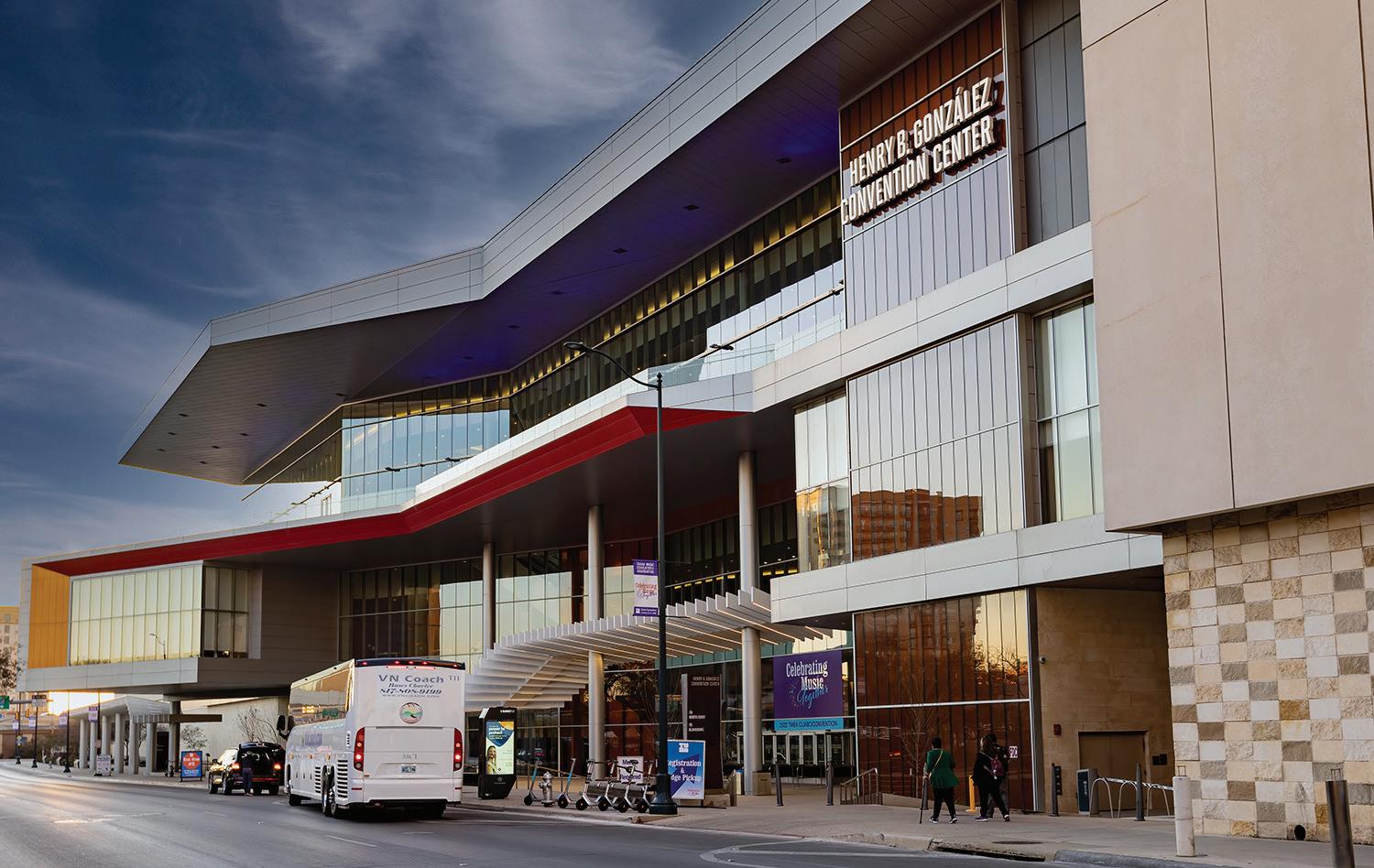
Collegiate Music Educator Award
The nominations for the fall semester Collegiate Music Educator Awards closes November 1. Spring semester award nomi nations will open in January 2023. This is an excellent way to recognize your stu dents who are both outstanding academi cally and committed to becoming future music educators. I encourage you to go to www.tmea.org/collegiateaward to read more about the requirements for this nom ination.
0 Pedagogical Clinics • Research Poster Session College Meeting • Extraordinary Concerts Networking Opportunities • Huge Exhibit Hall Attend the TMEA Clinic/ Convention! 52 Southwestern Musician November 2022
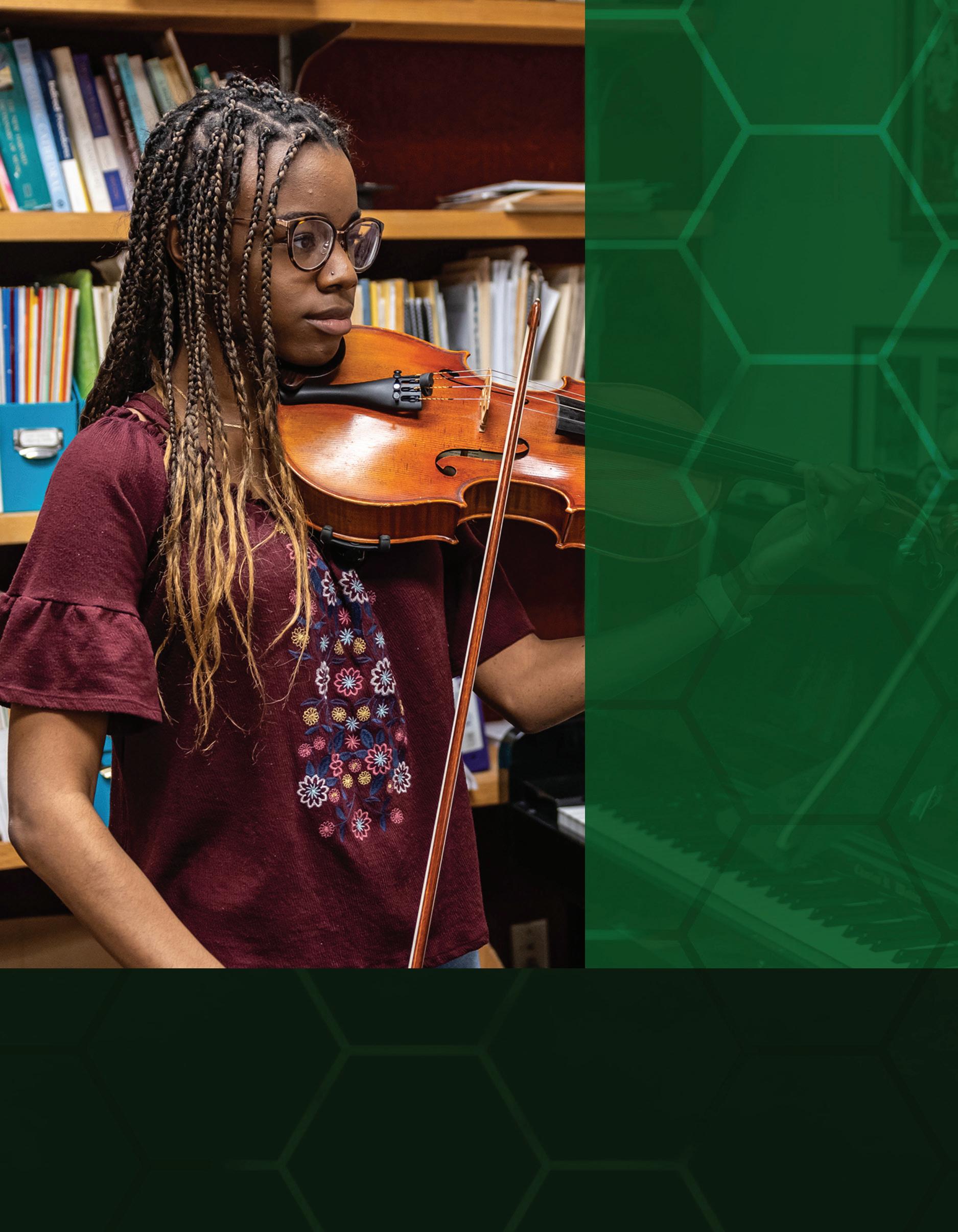
PUT YOUR INTO PRACTICE PASSION COLLEGE OF MUSIC 01.28.2023 02.03.2023 (graduate applicants only) 02.04.2023 (virtual auditions) 02.17.2023 (graduate voice only) 02.25.2023 AUDITION DATES APPLY TODAY AT UNT College of Music - Serving our diverse musical culture with excellence, integrity and imagination. COMPOSITION | CONDUCTING | ETHNOMUSICOLOGY | JAZZ STUDIES | MUSIC BUSINESS MUSIC EDUCATION | MUSIC HISTORY | MUSIC THEORY | PERFORMANCE MUSIC.UNT.EDU
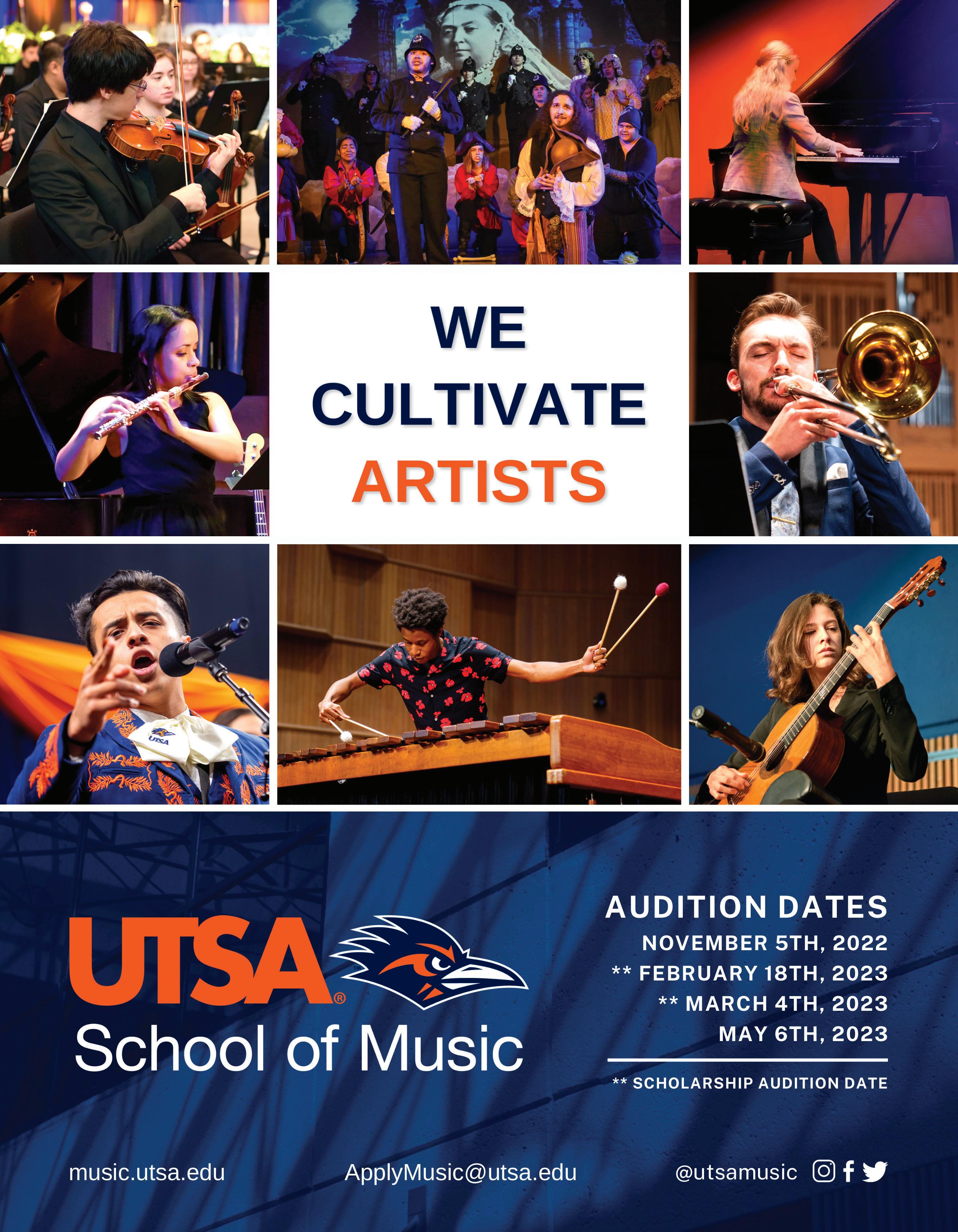














 by Robert Floyd
by Robert Floyd



















































 University of North Texas Wind Symphony
University of Texas at El Paso Jazz Ensemble
University of North Texas Wind Symphony
University of Texas at El Paso Jazz Ensemble





 By Wayne Oquin
By Wayne Oquin











 ANN G. SMITH
ANN G. SMITH




 Curtis MS Symphony Orchestra
Plano West Senior HS Symphony Orchestra
Mariachi Espuelas de Plata
Curtis MS Symphony Orchestra
Plano West Senior HS Symphony Orchestra
Mariachi Espuelas de Plata












 A.C. Jones HS Varsity Mixed Choir
Allen HS Varsity Treble Choir
Texas Christian University Concert Chorale
A.C. Jones HS Varsity Mixed Choir
Allen HS Varsity Treble Choir
Texas Christian University Concert Chorale



 KATHERINE JOHNS
KATHERINE JOHNS










 Groves Percussion
Bransford Orff Ensemble
SingRAE Choir
Groves Percussion
Bransford Orff Ensemble
SingRAE Choir
 By Andrea L. Garcia
By Andrea L. Garcia






